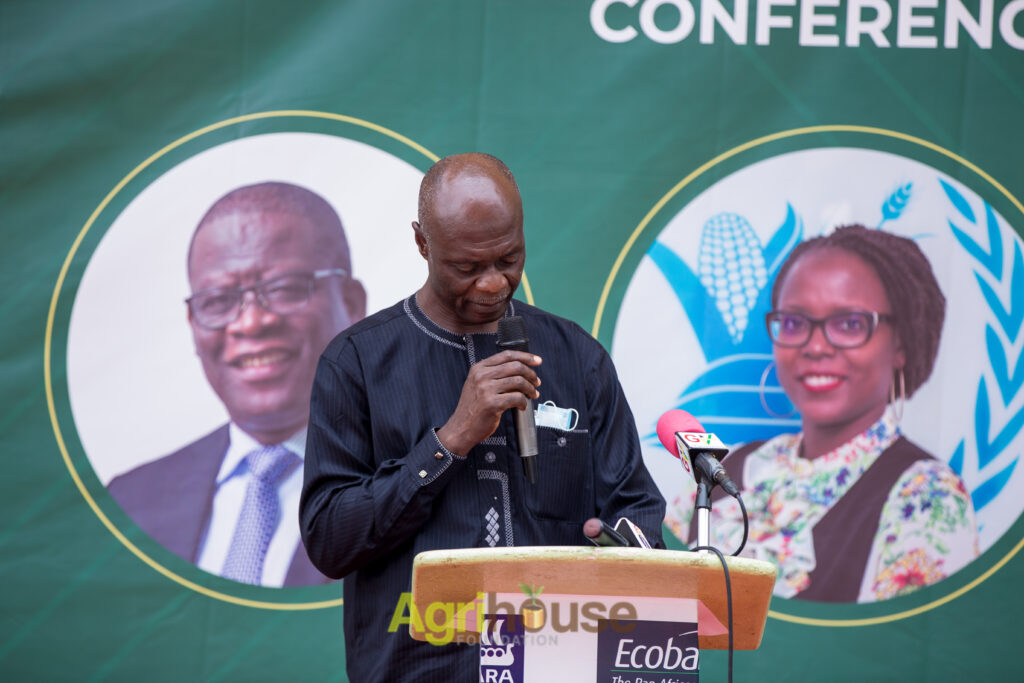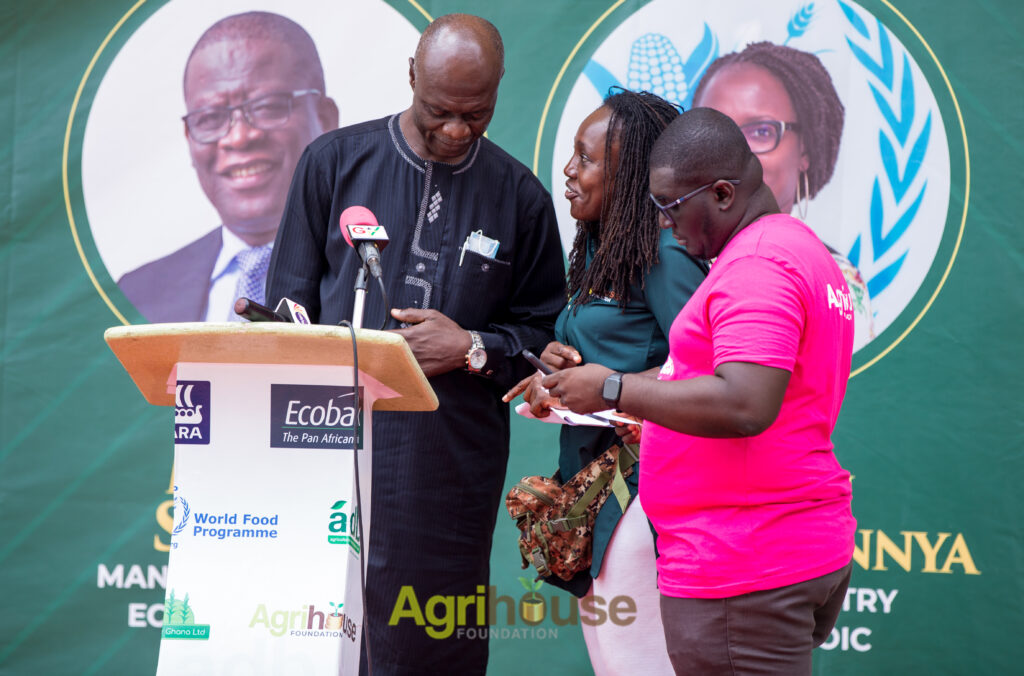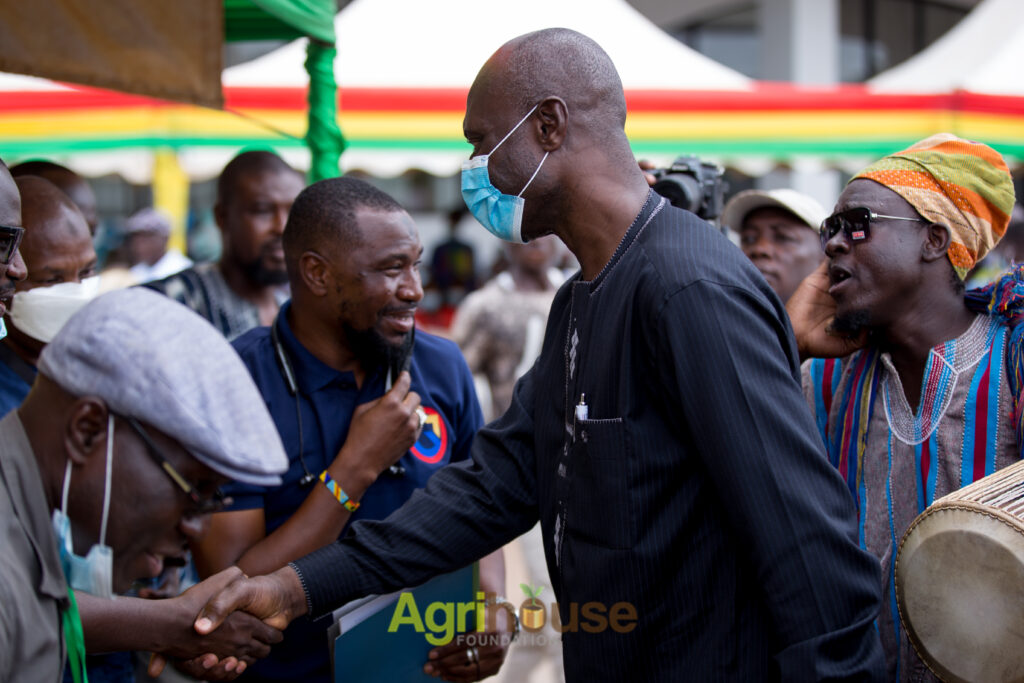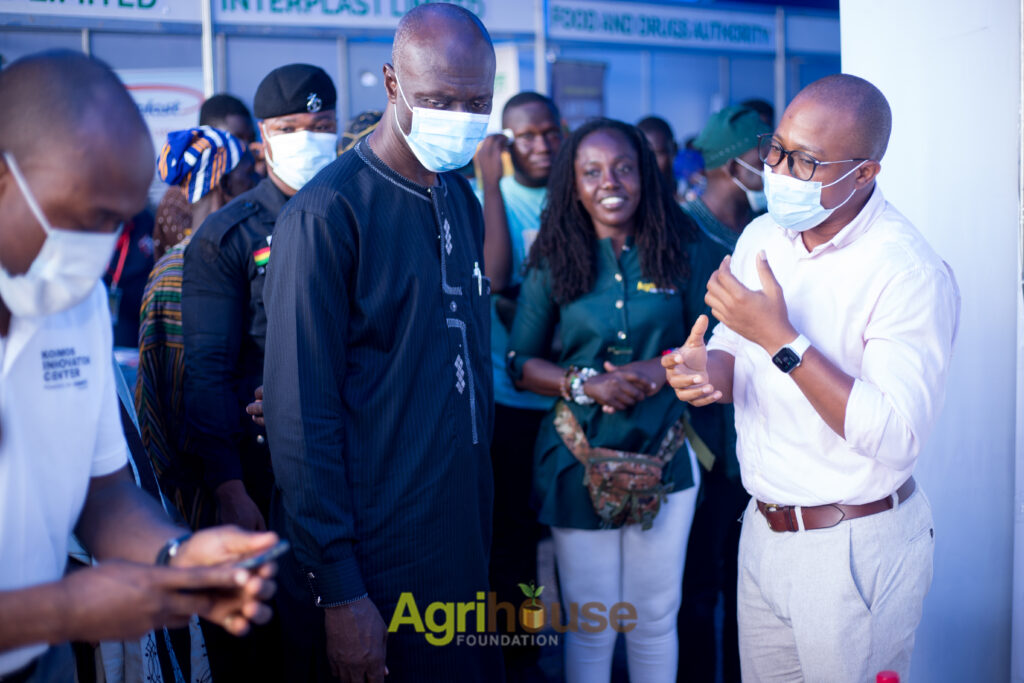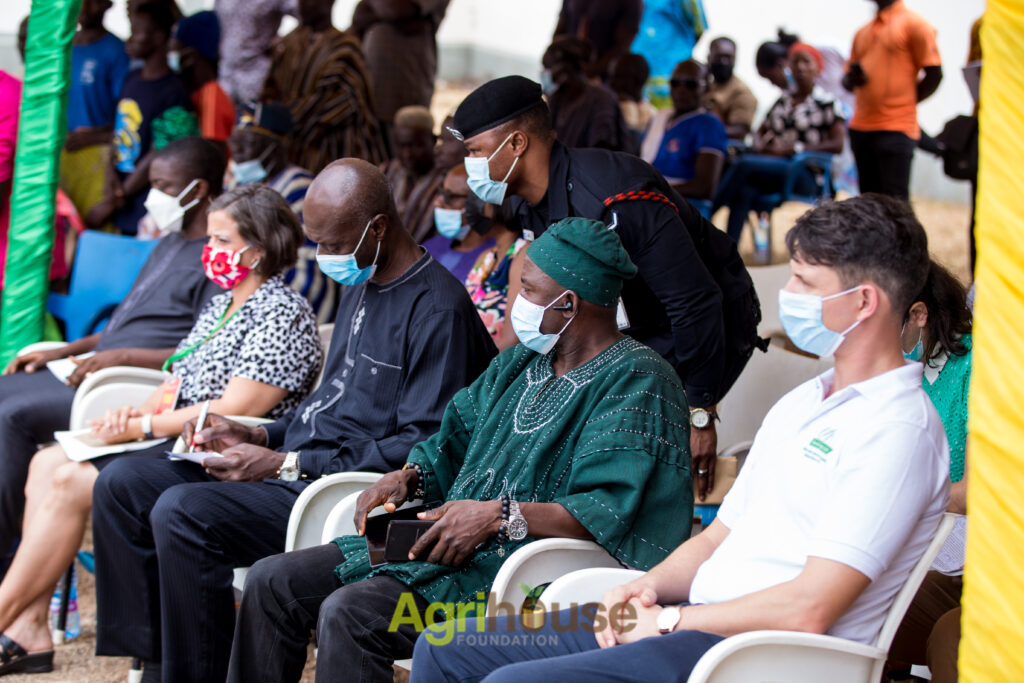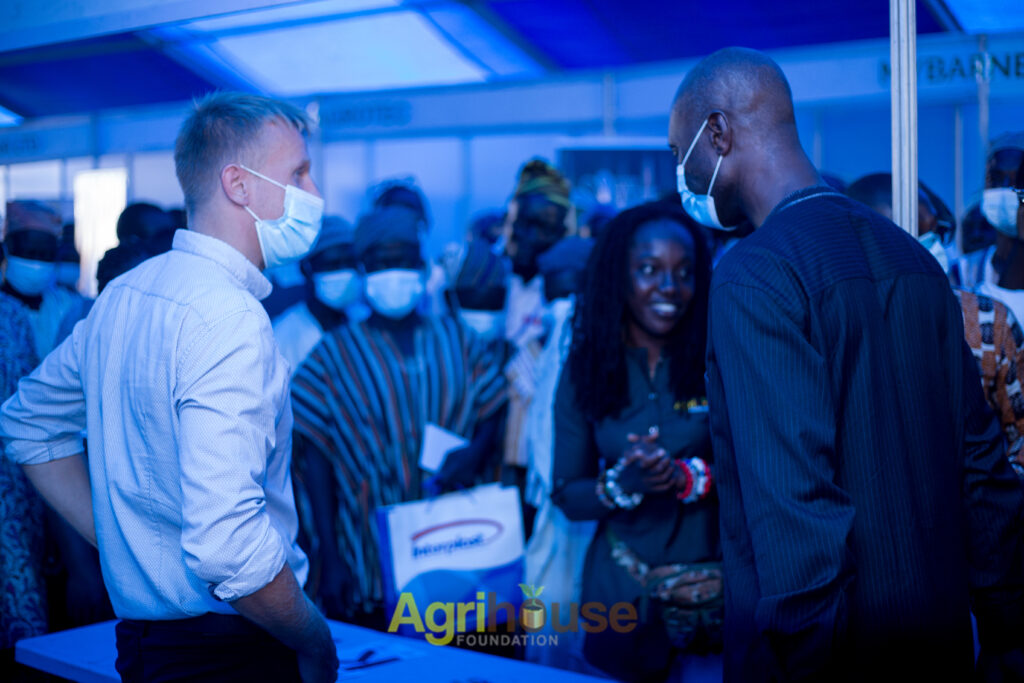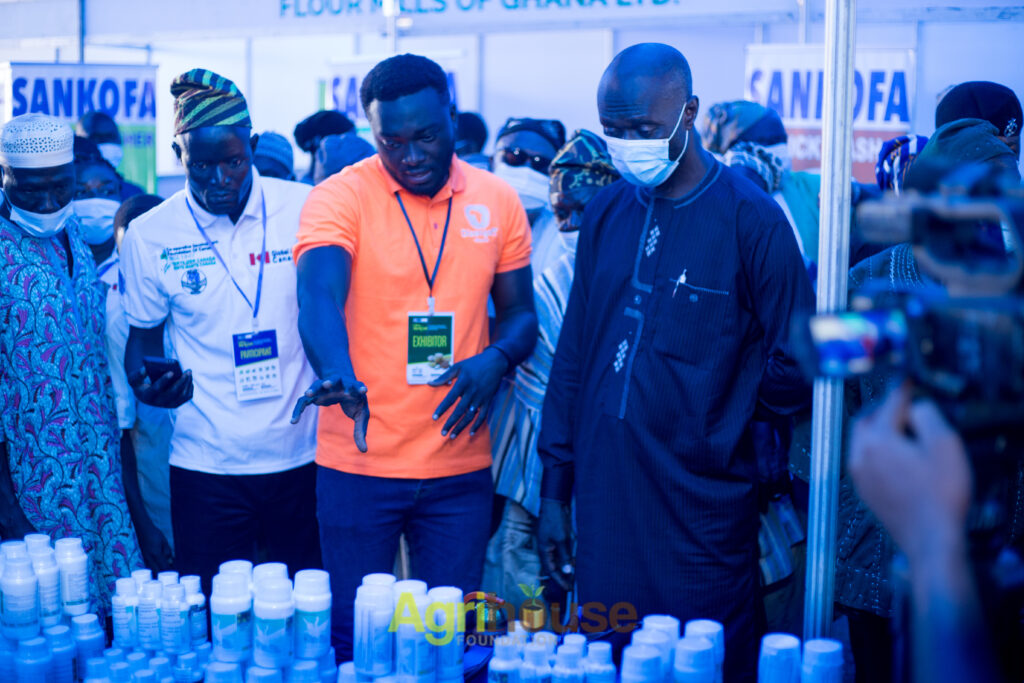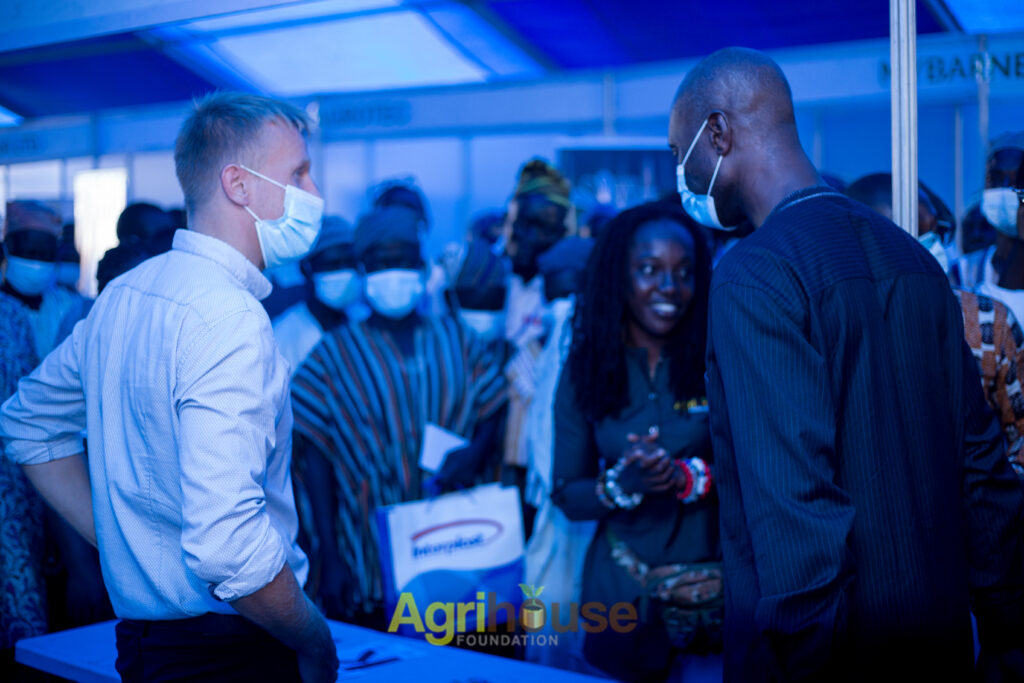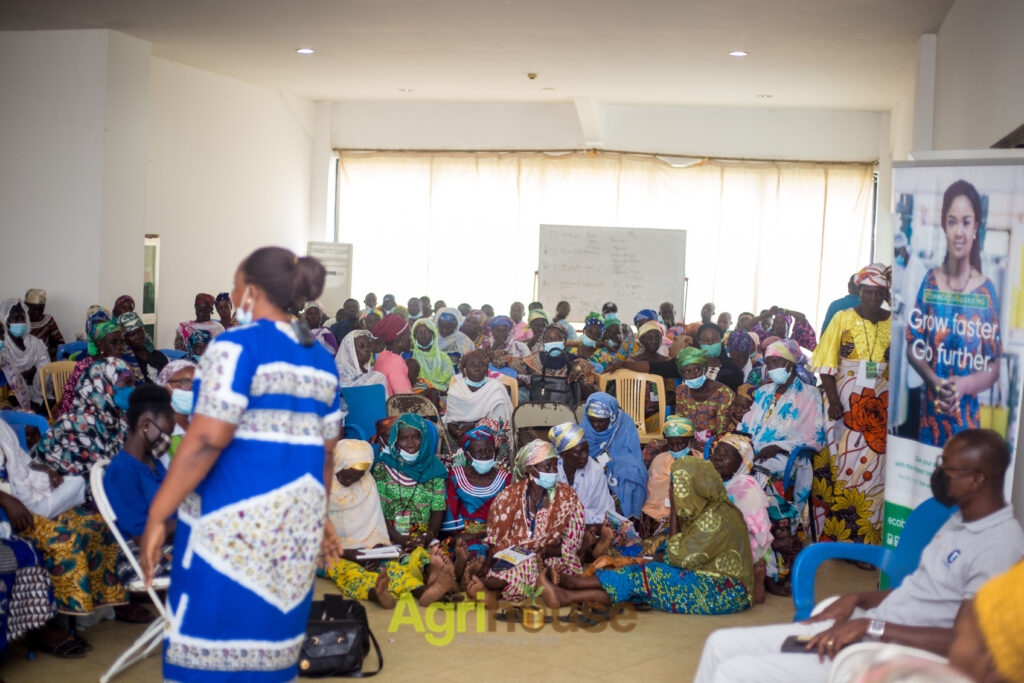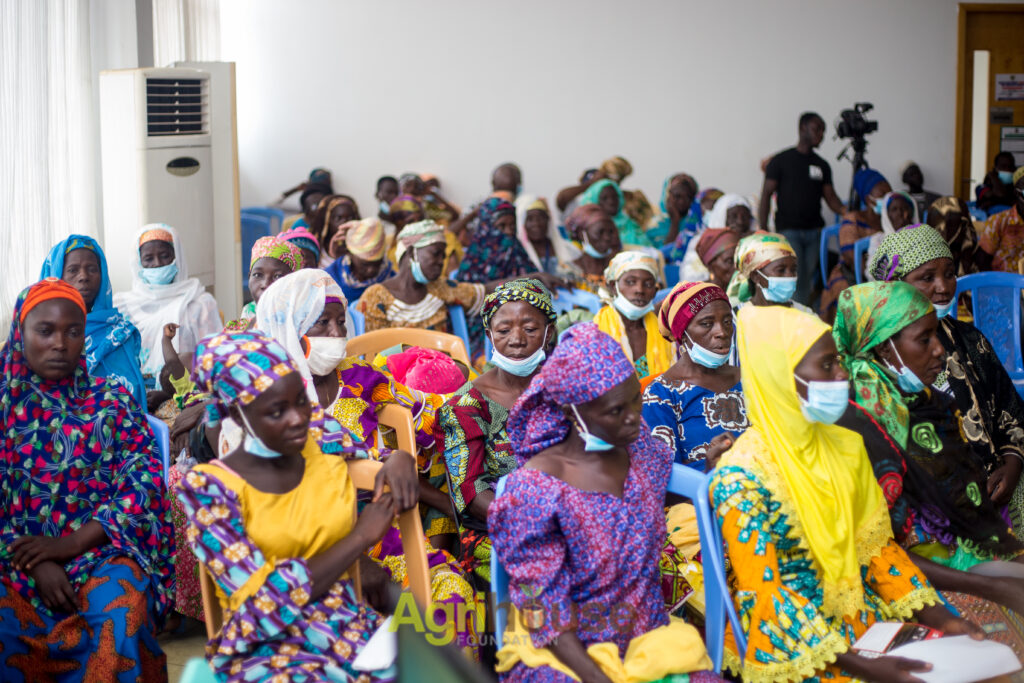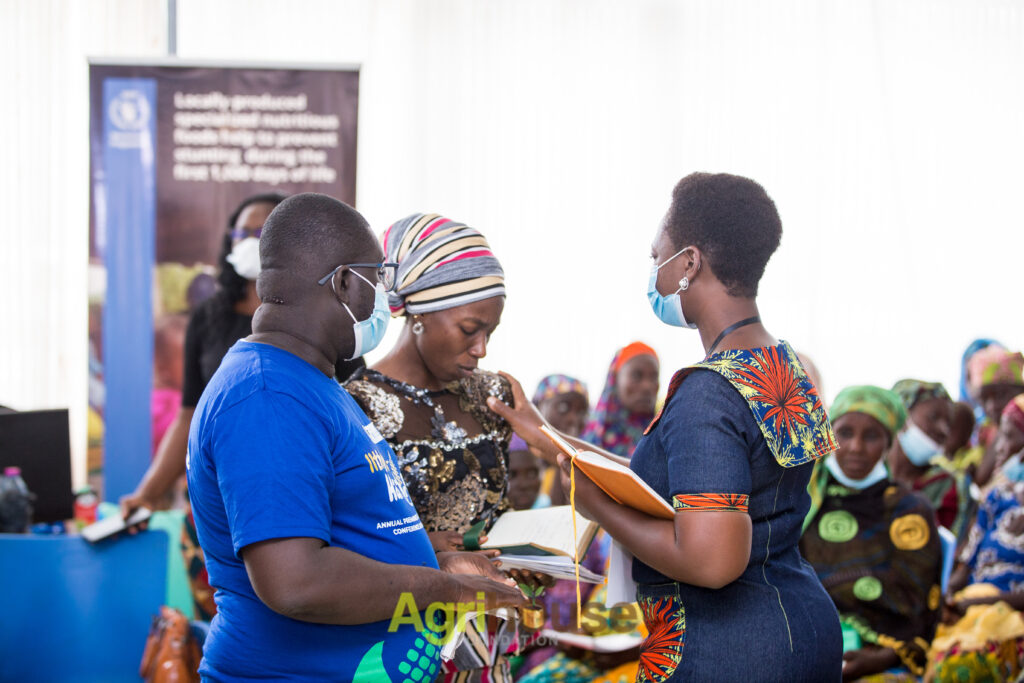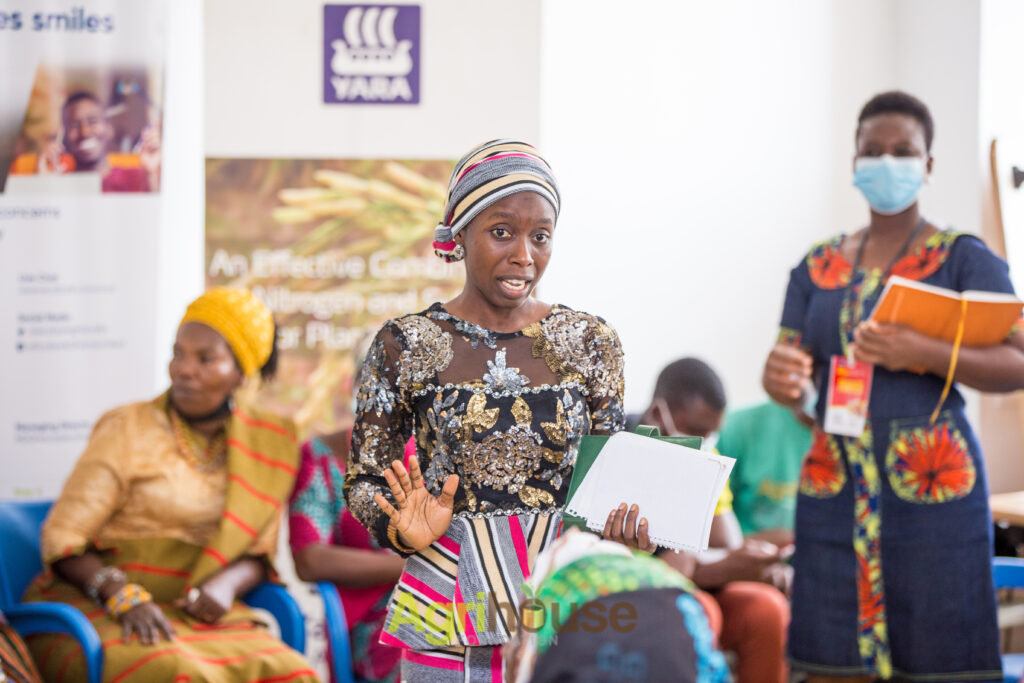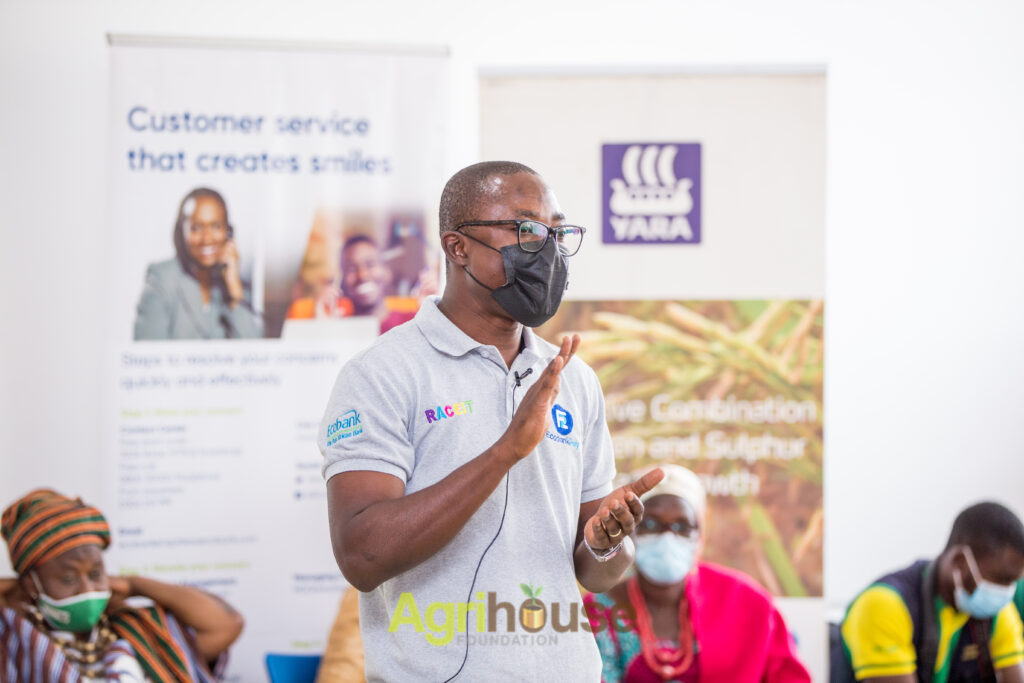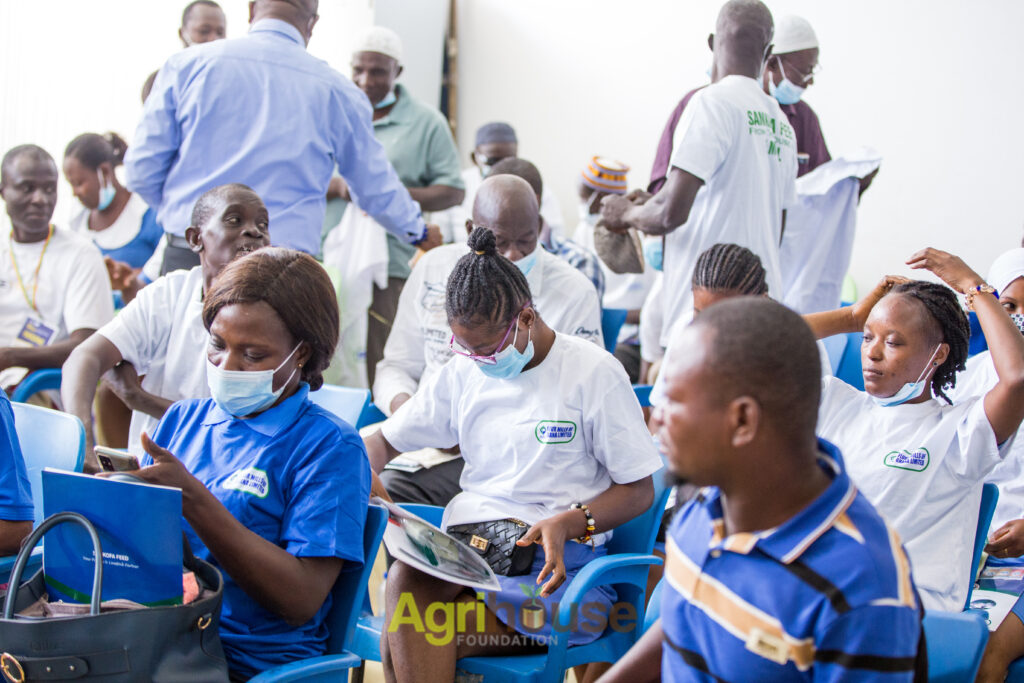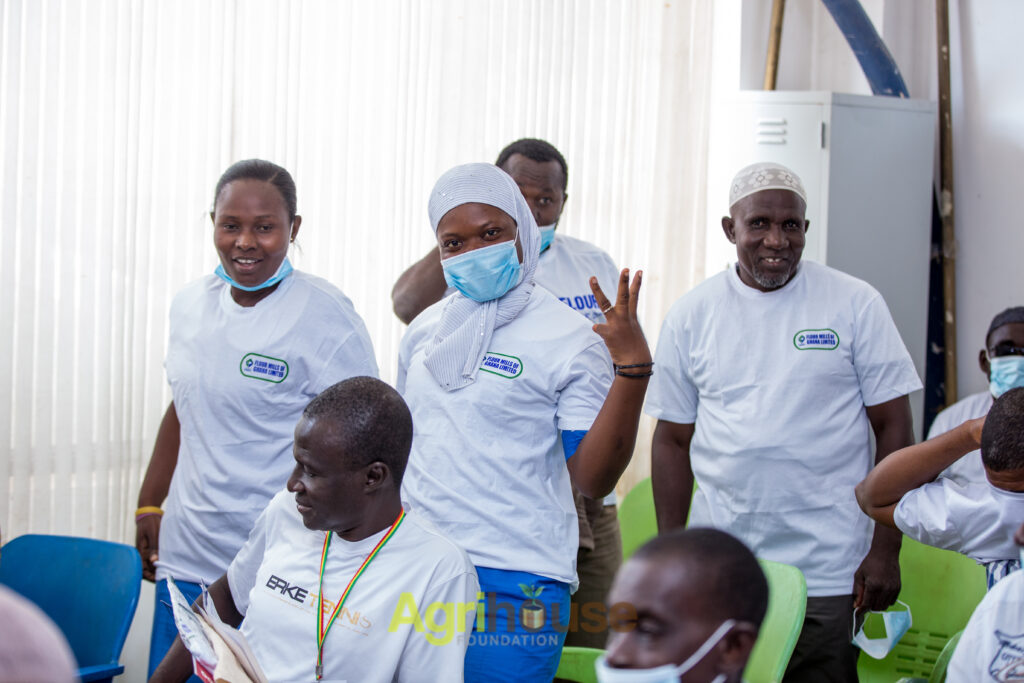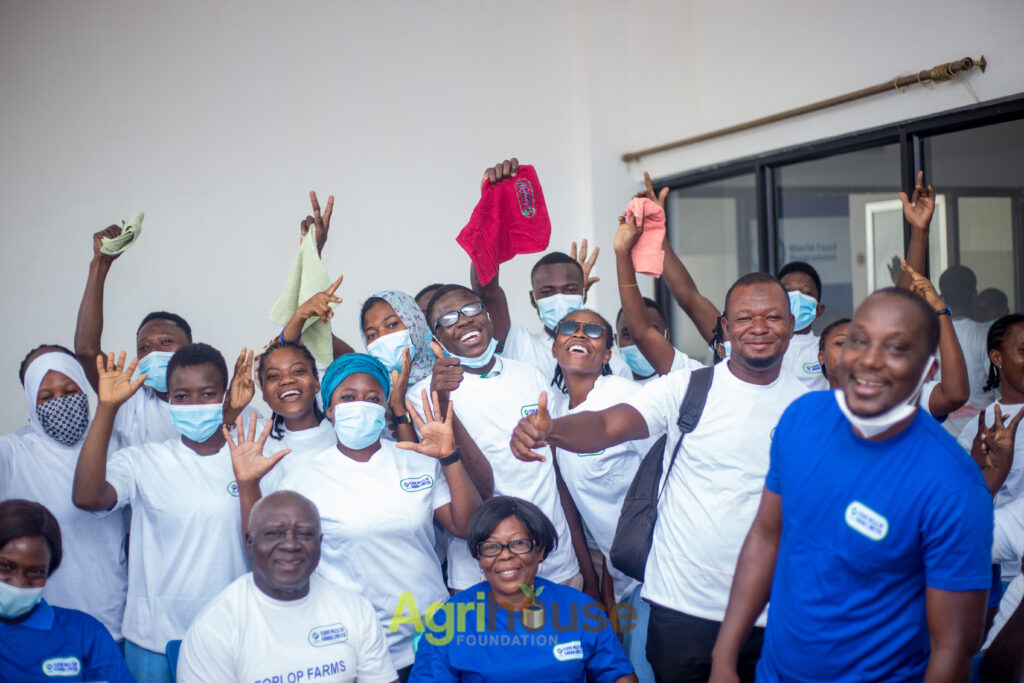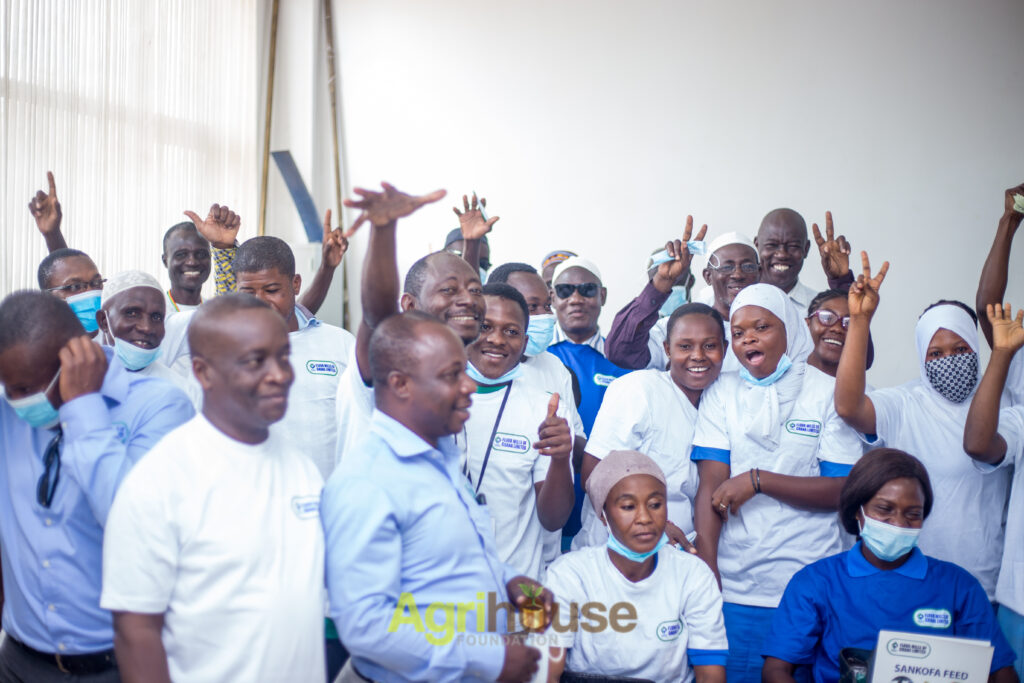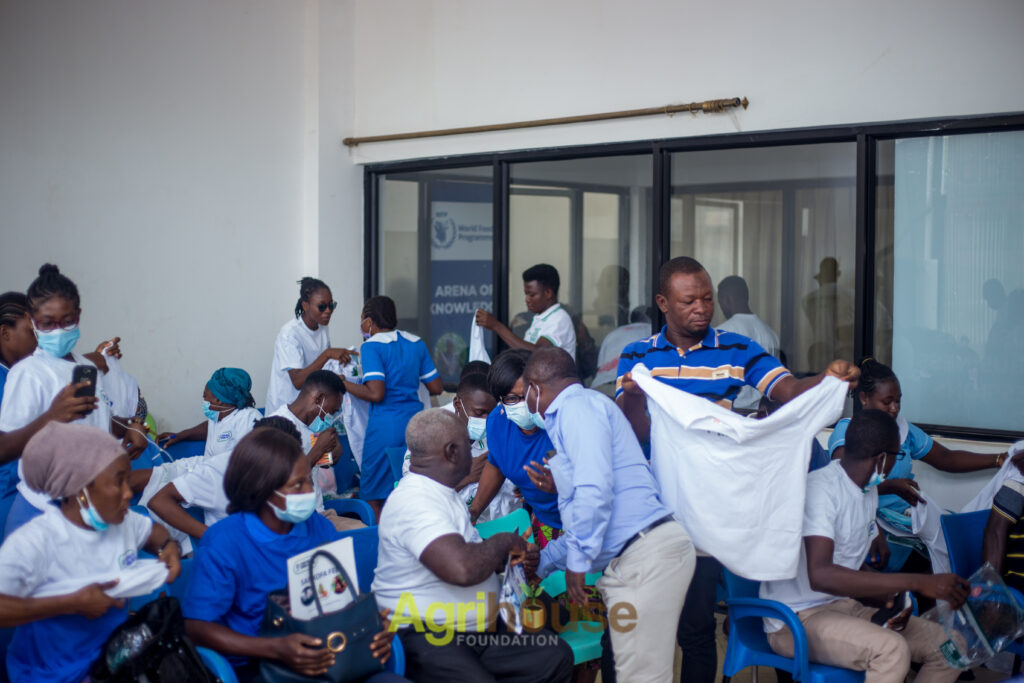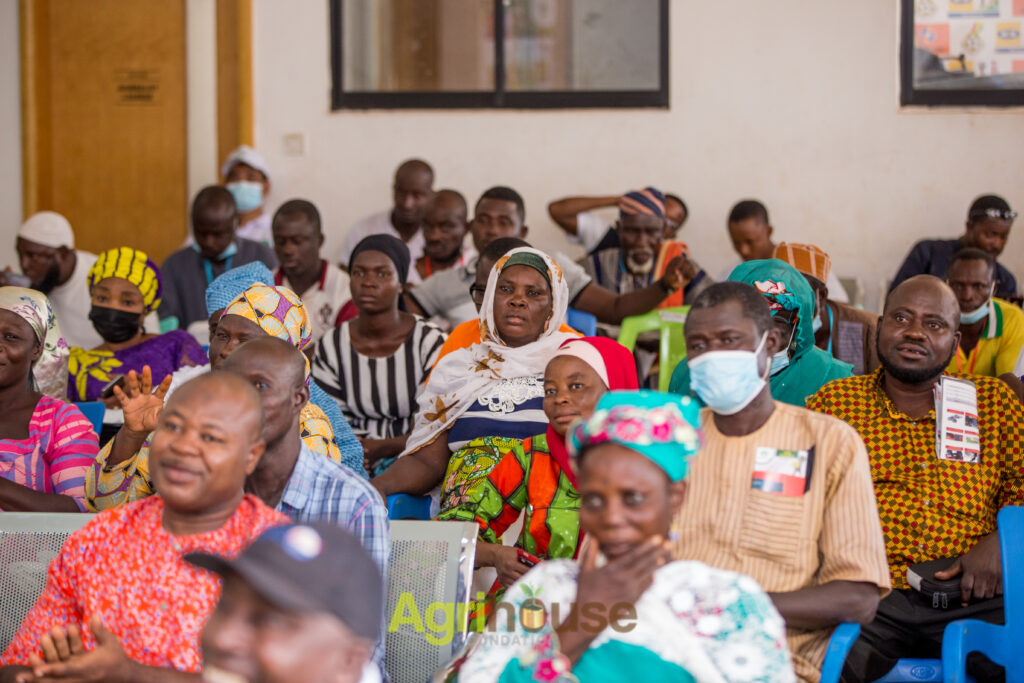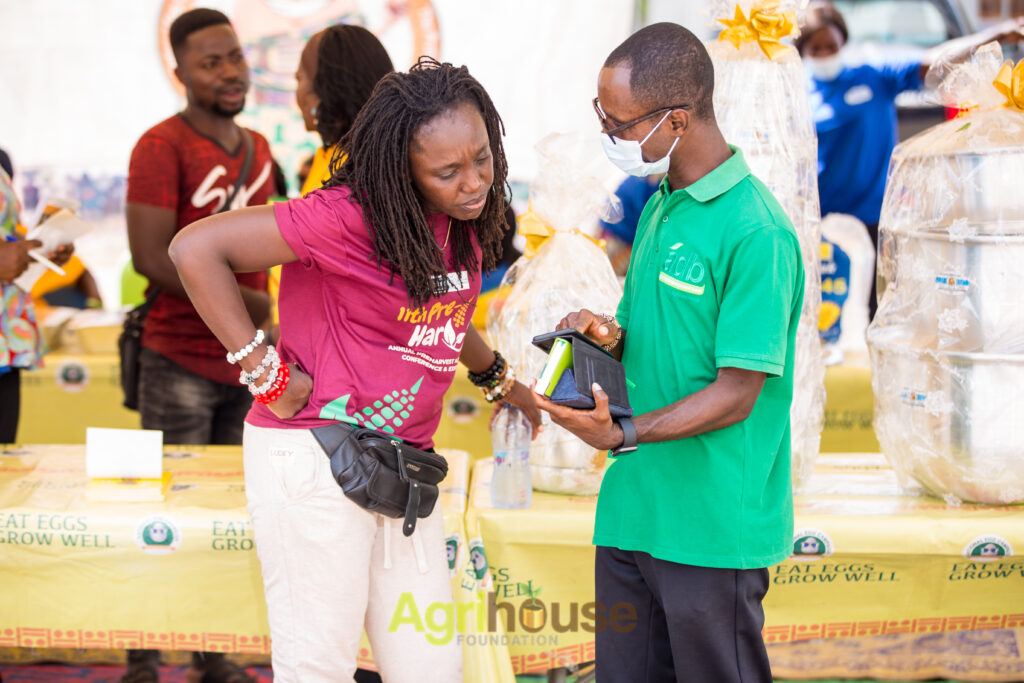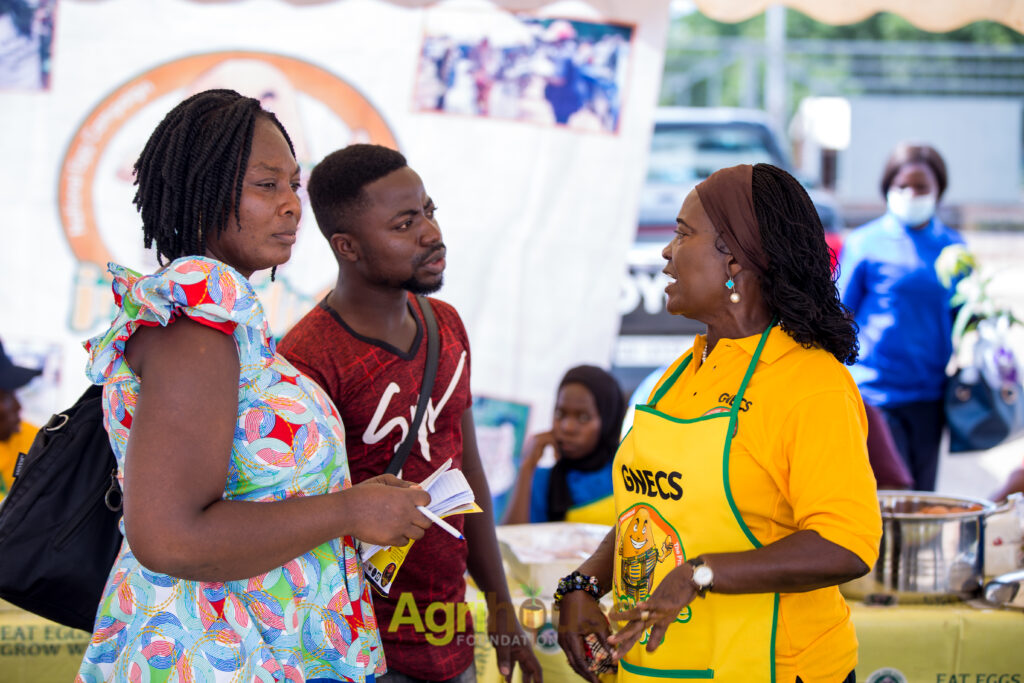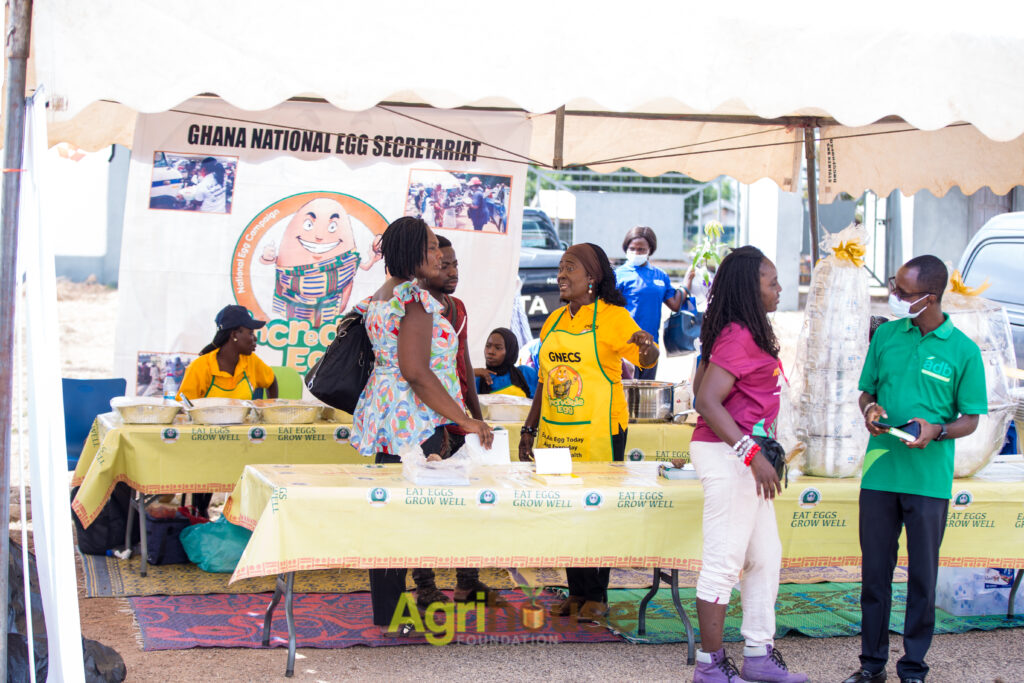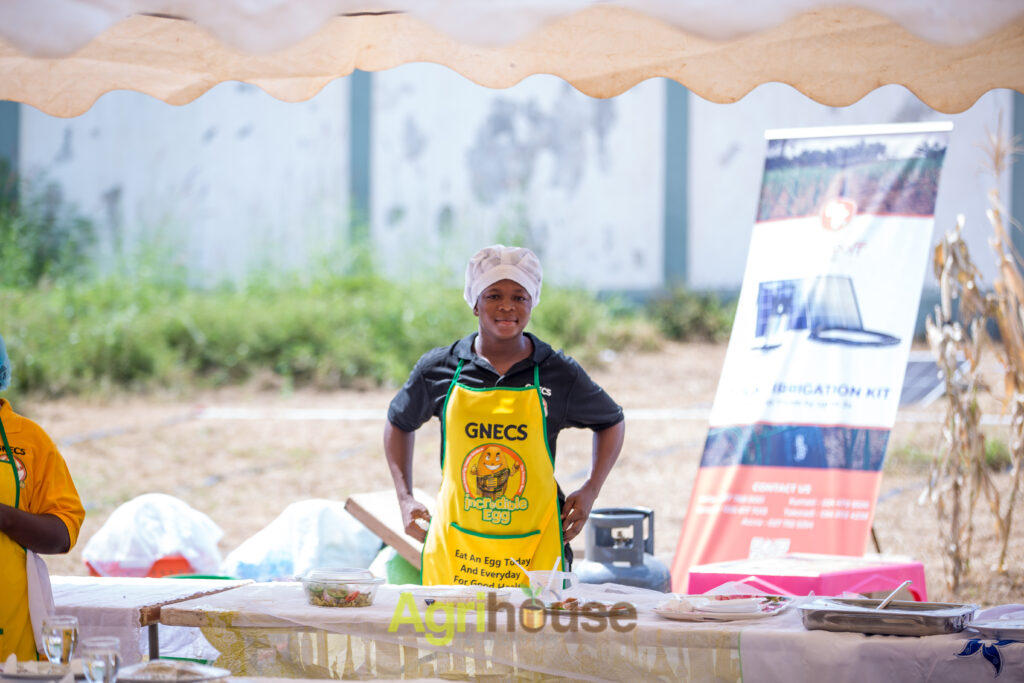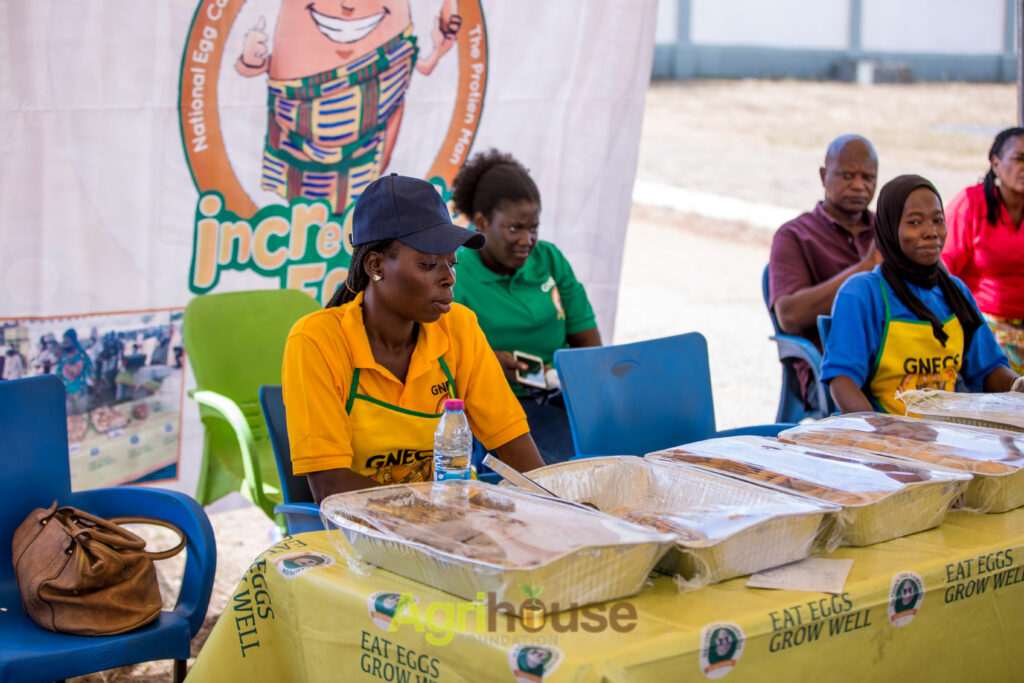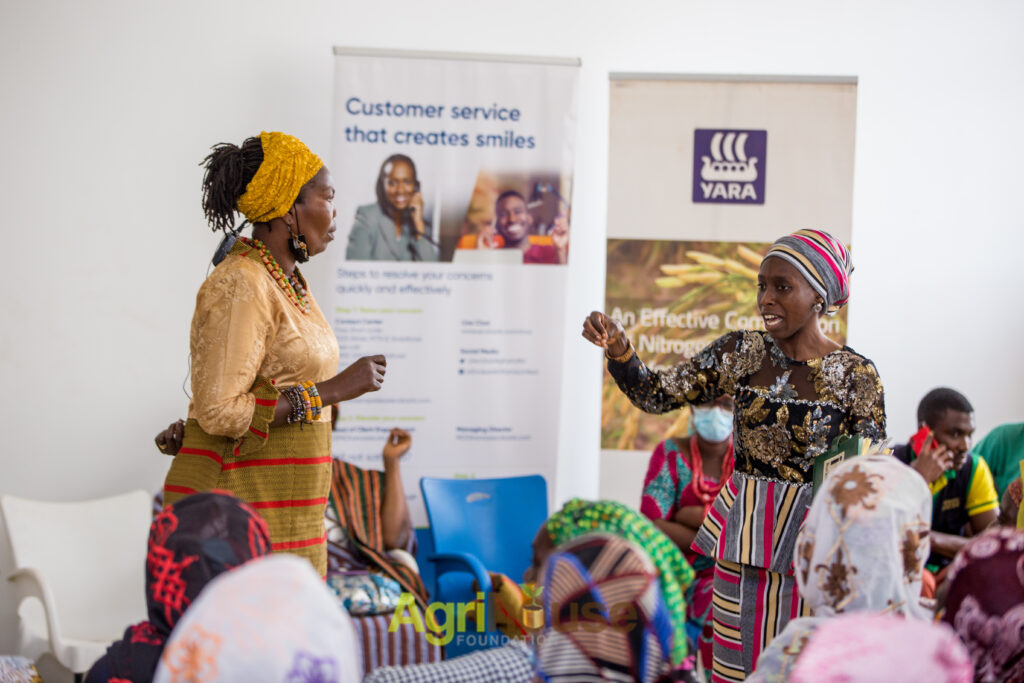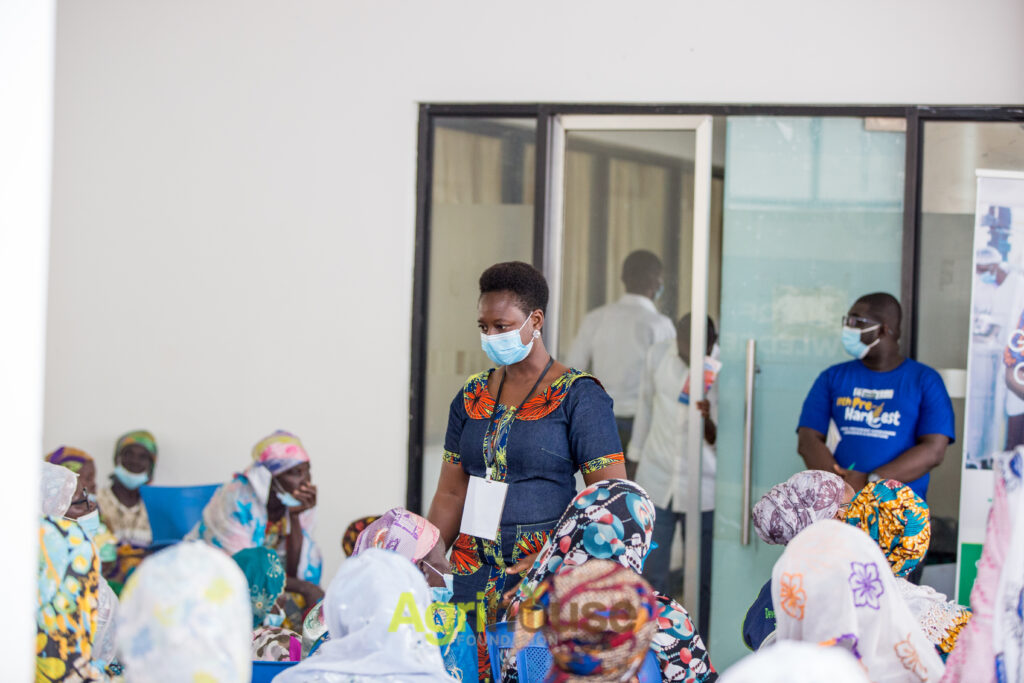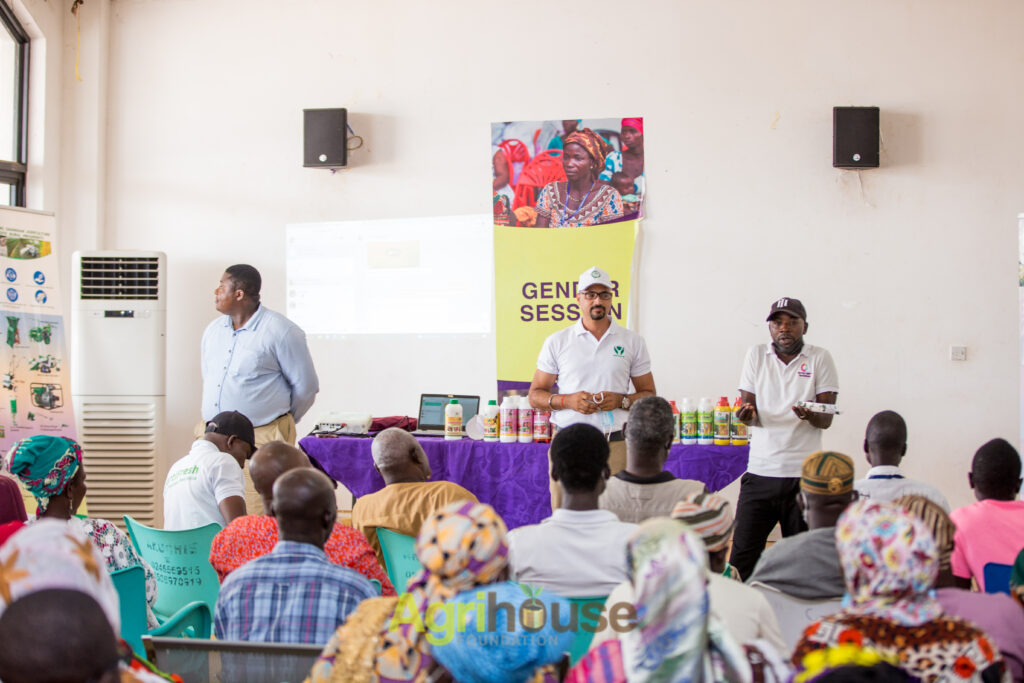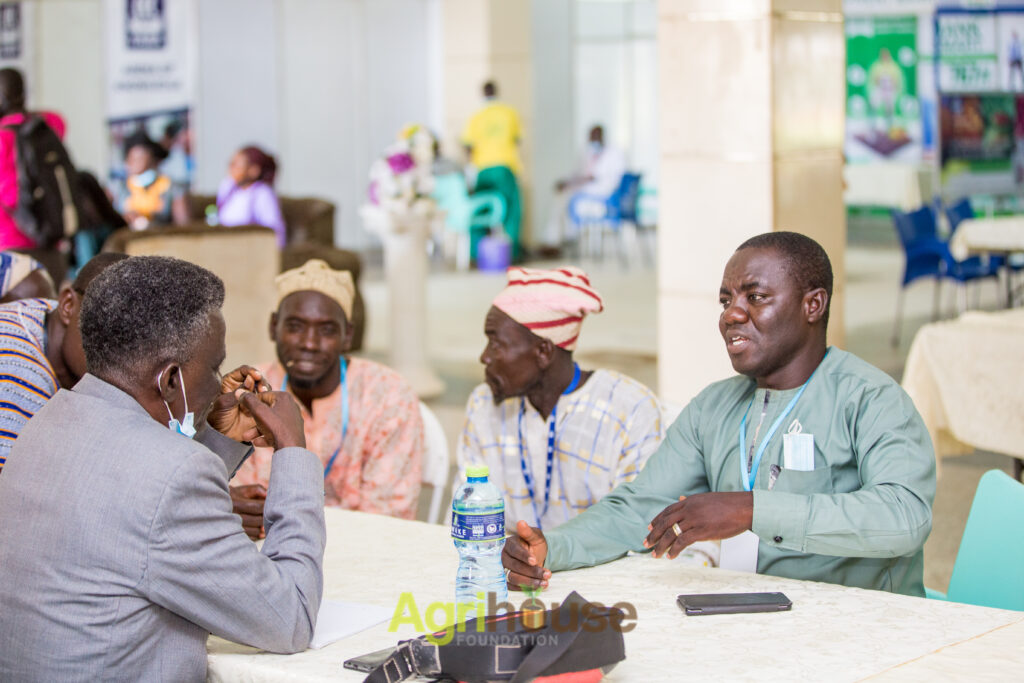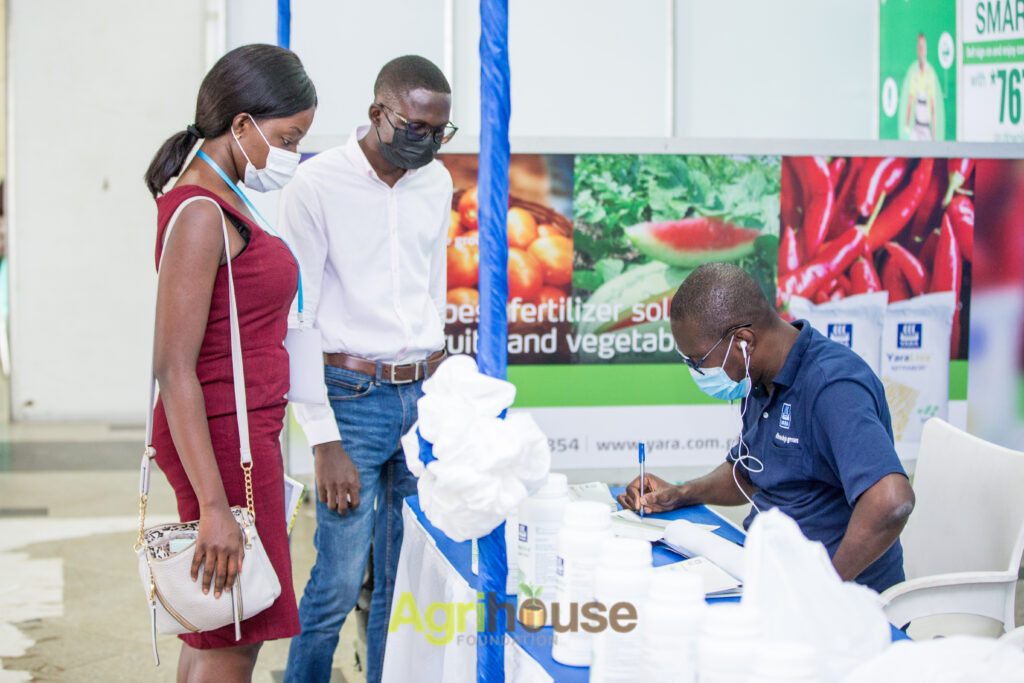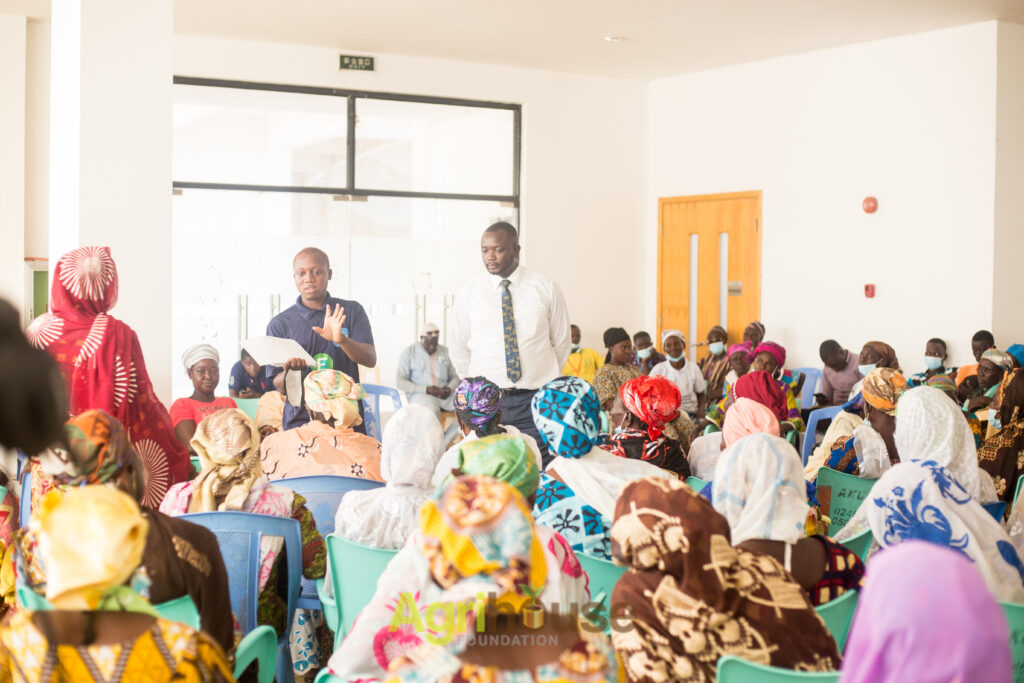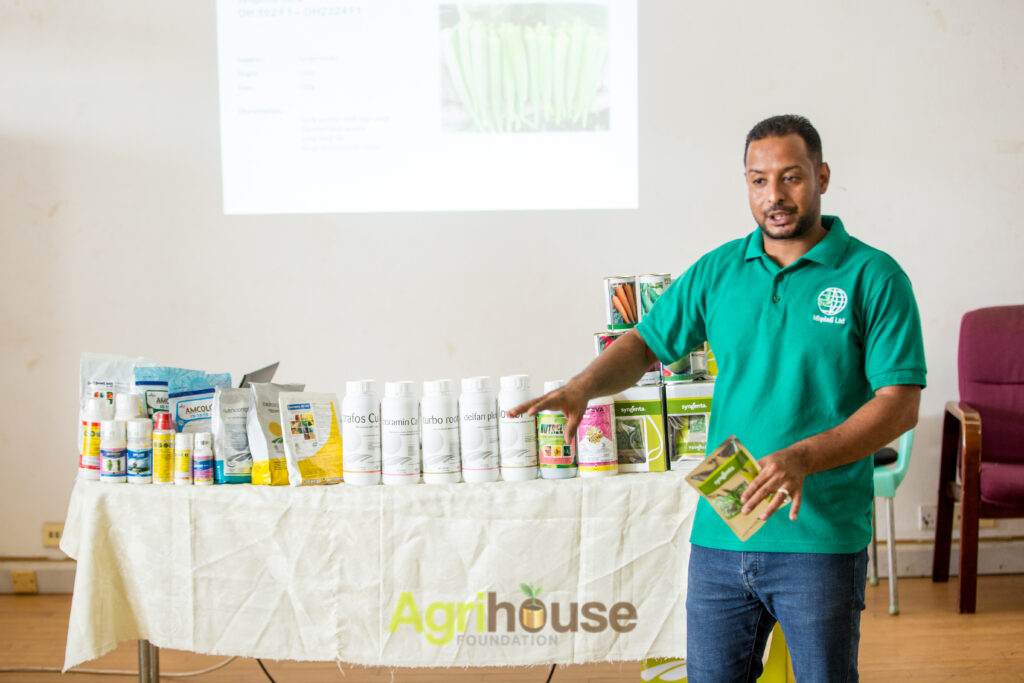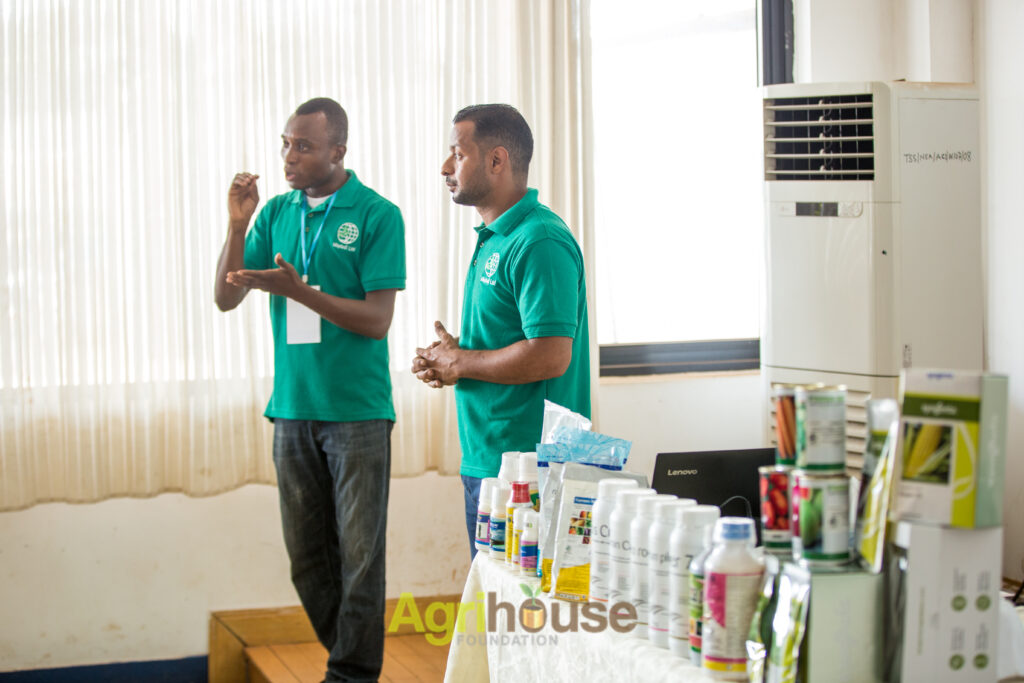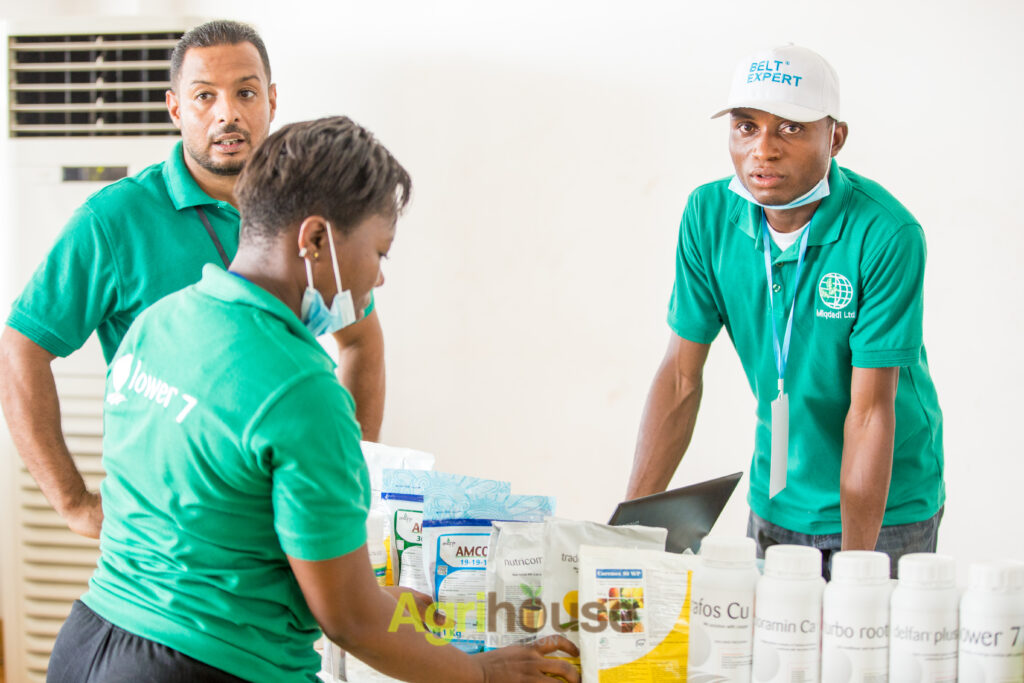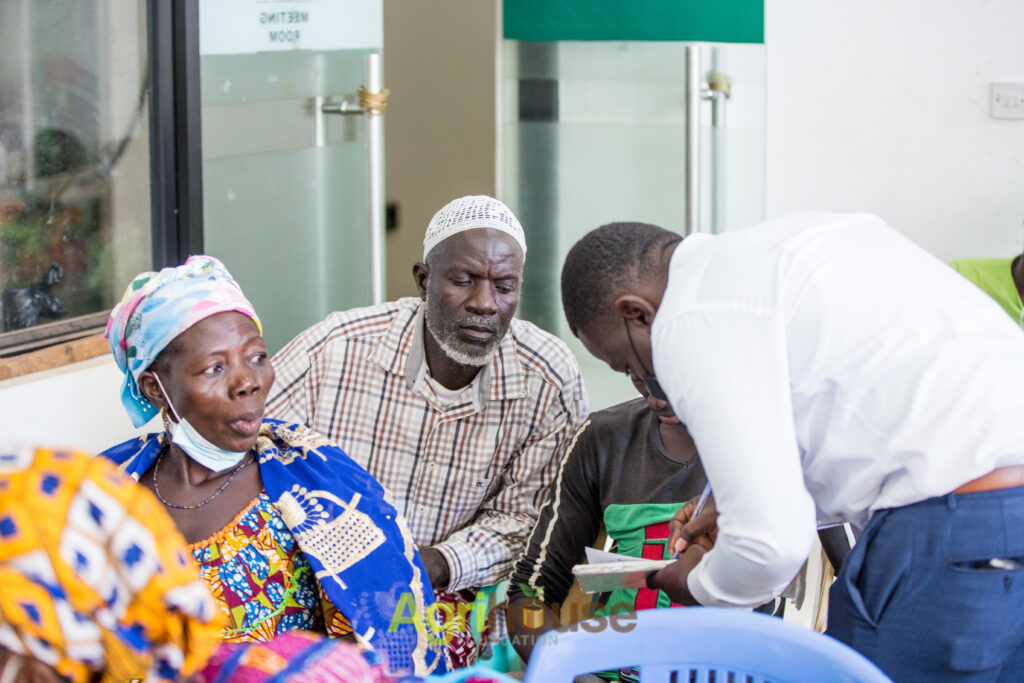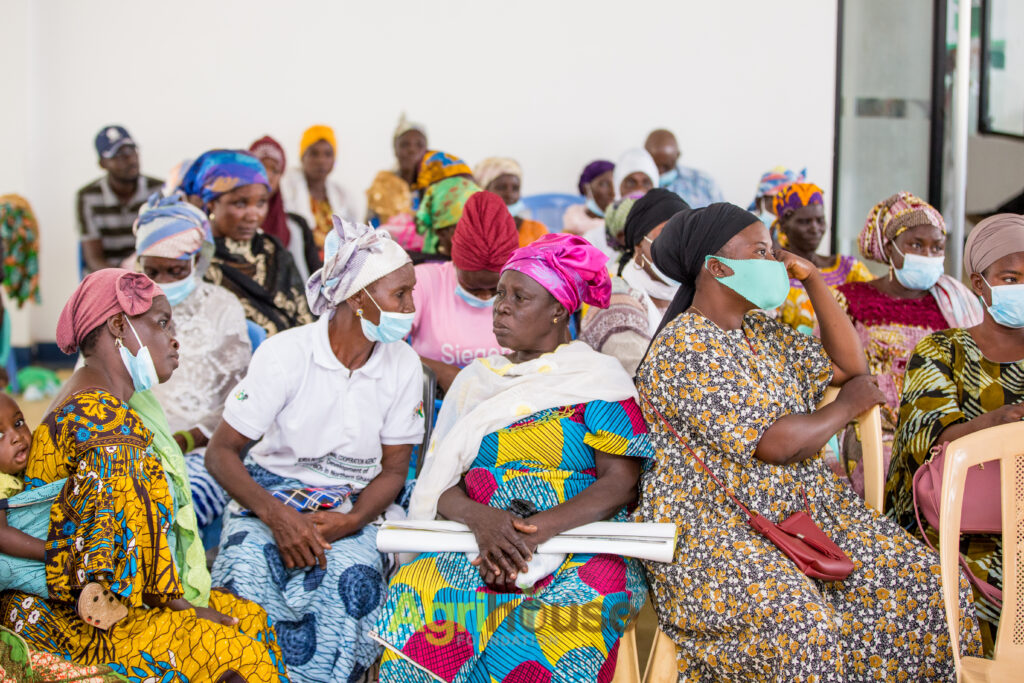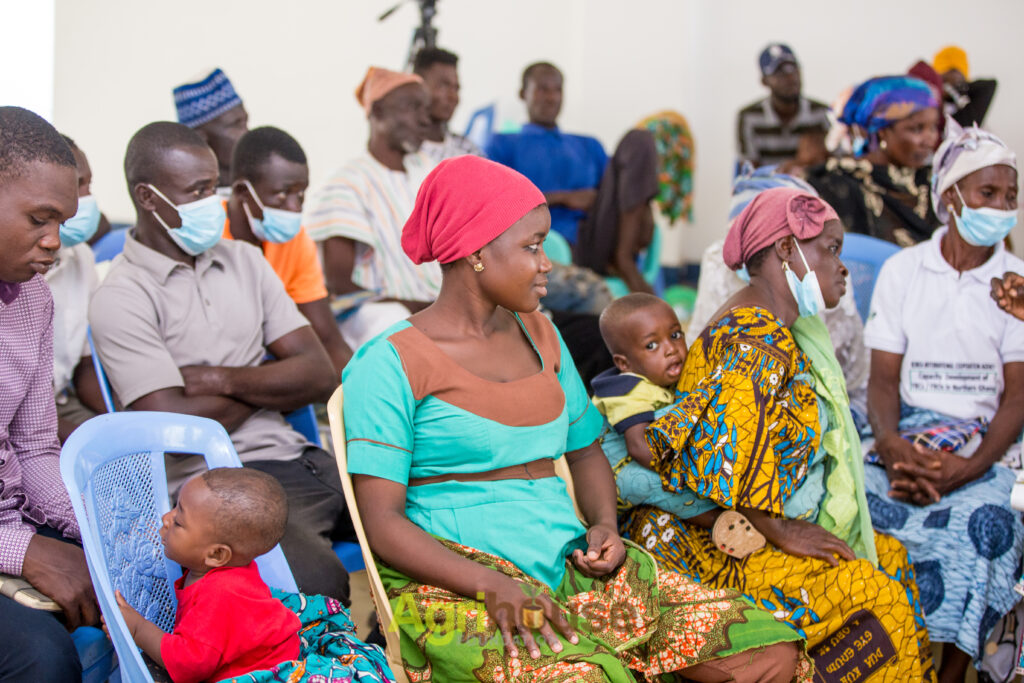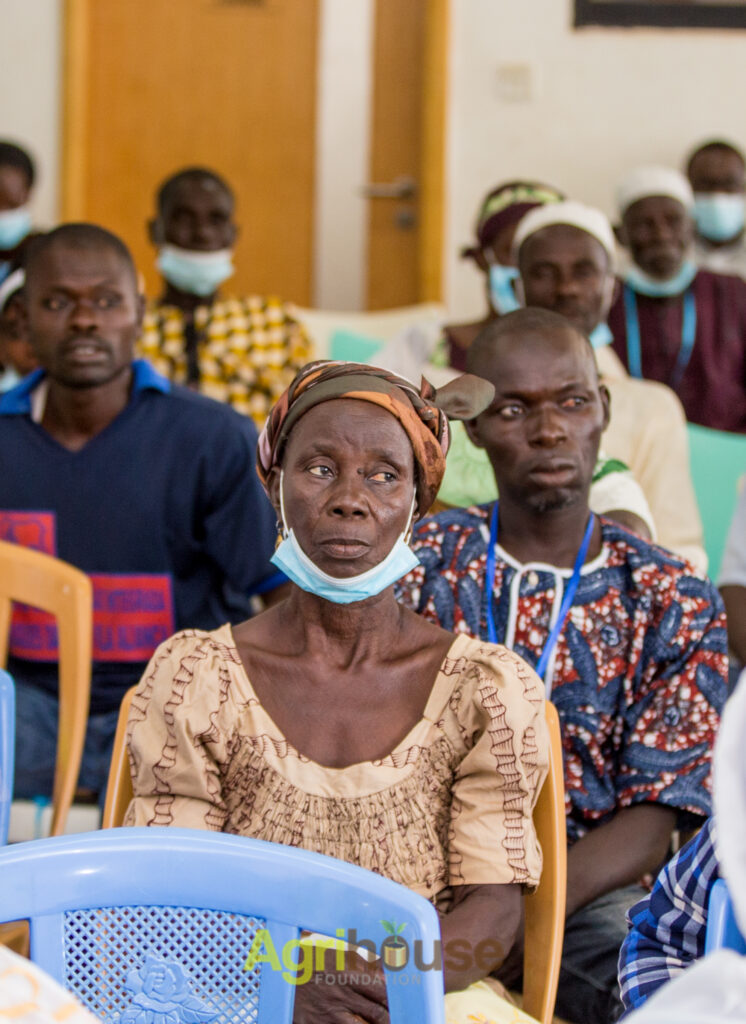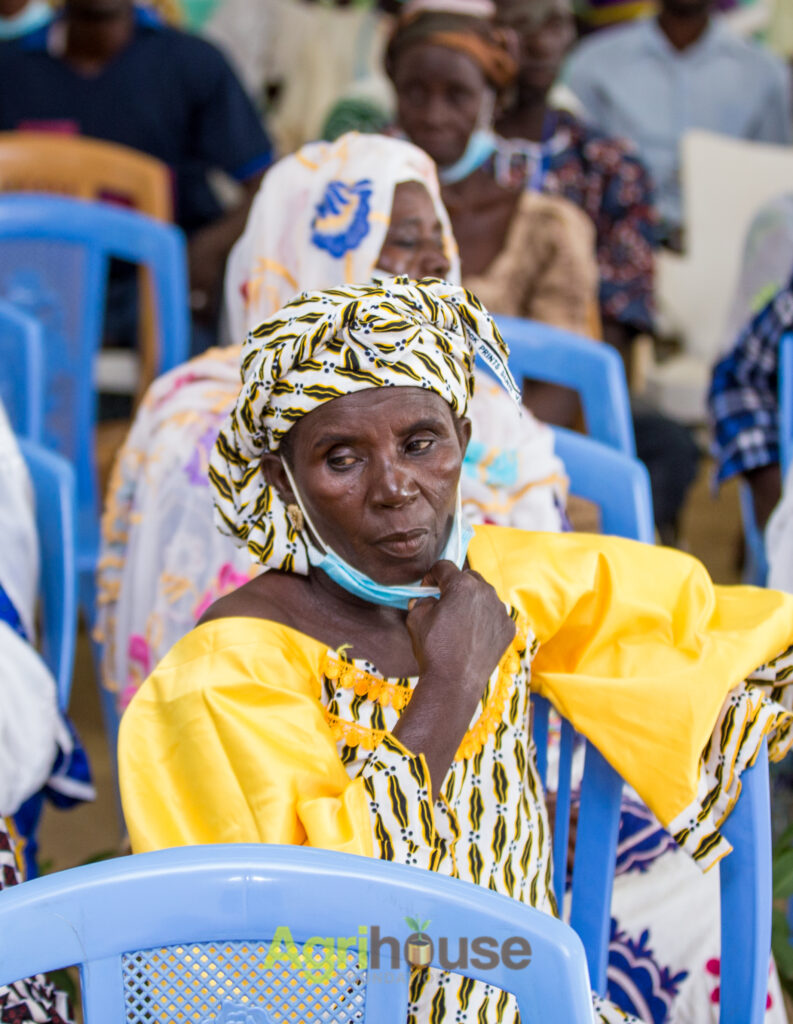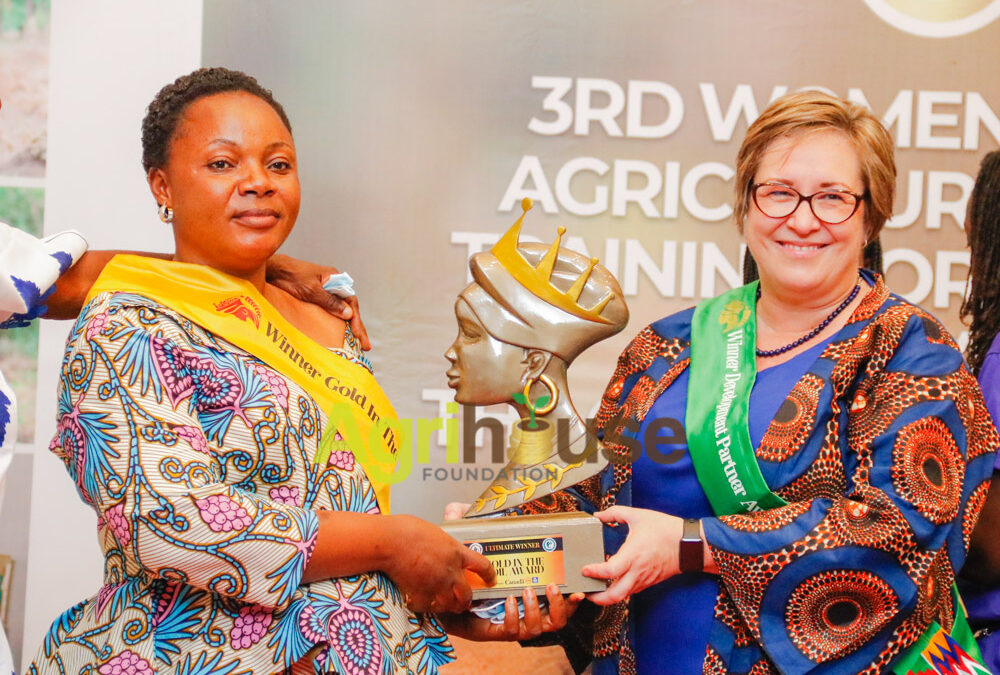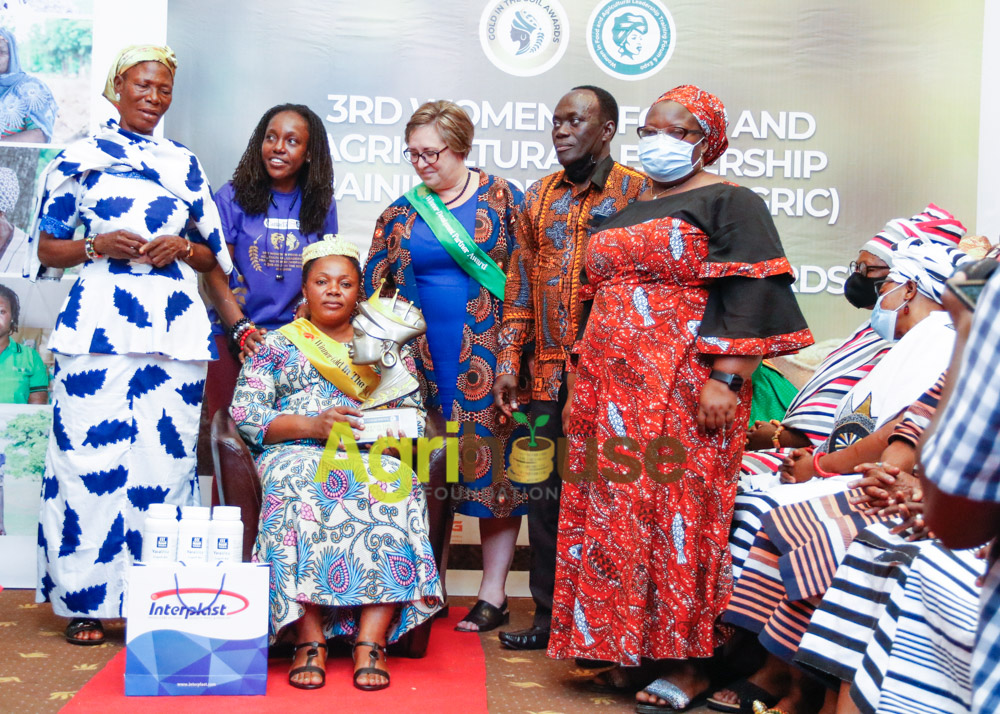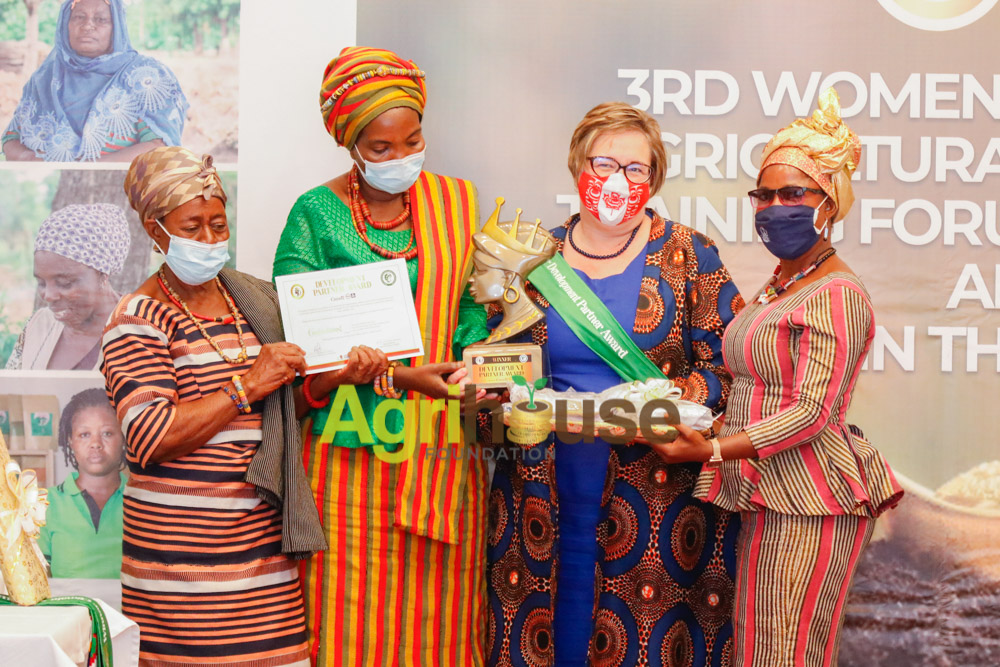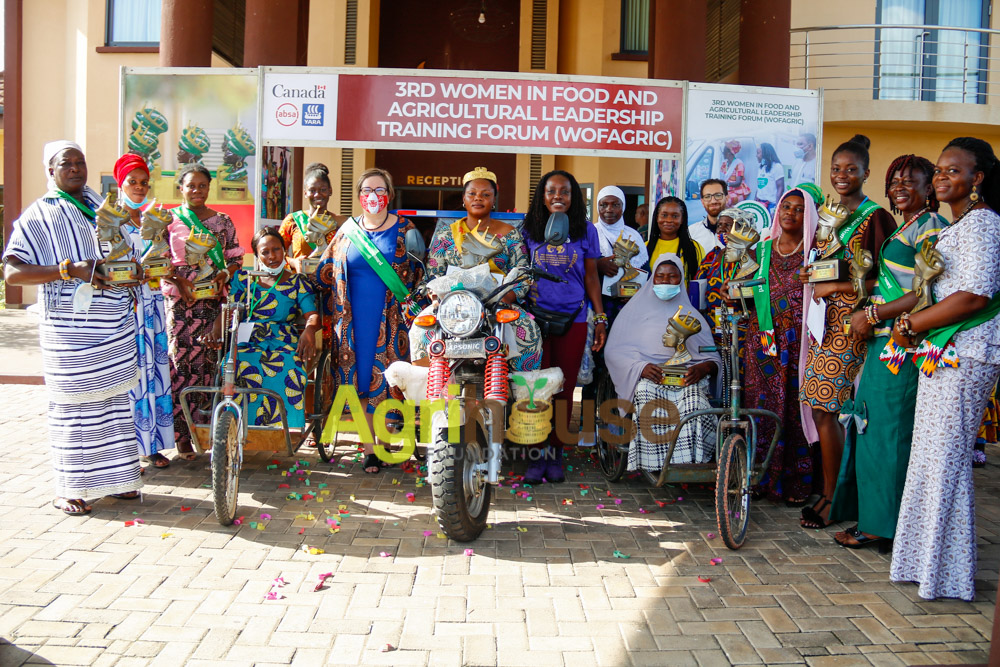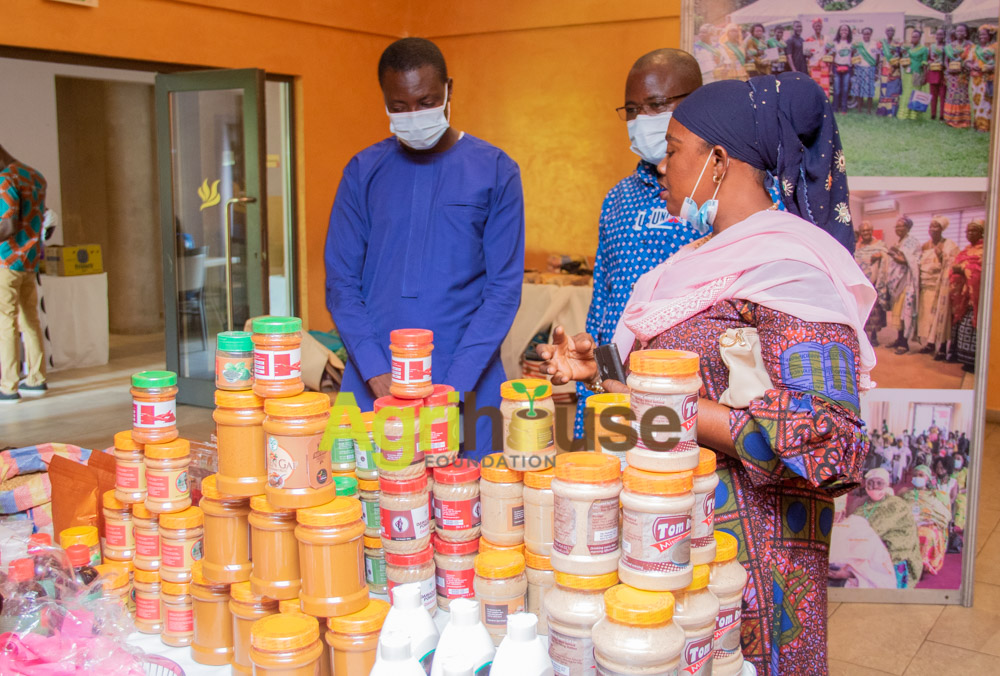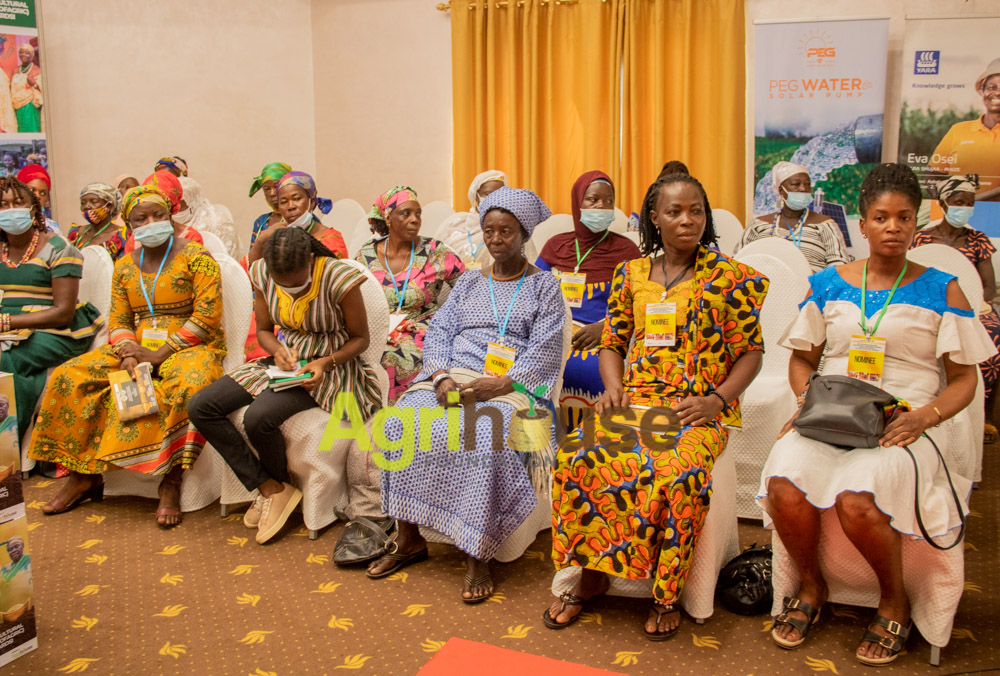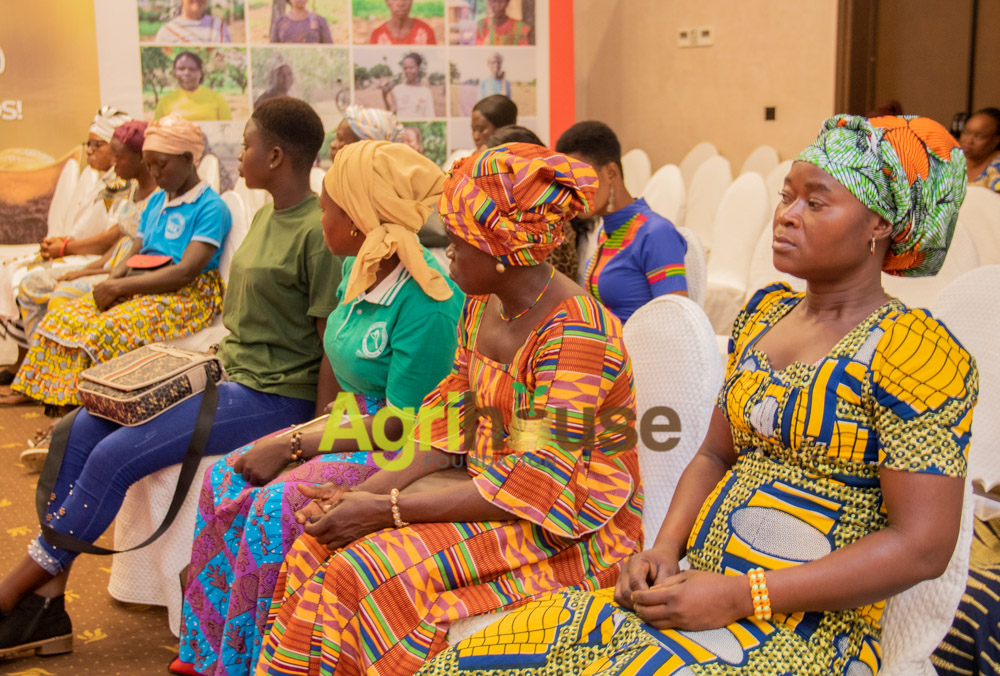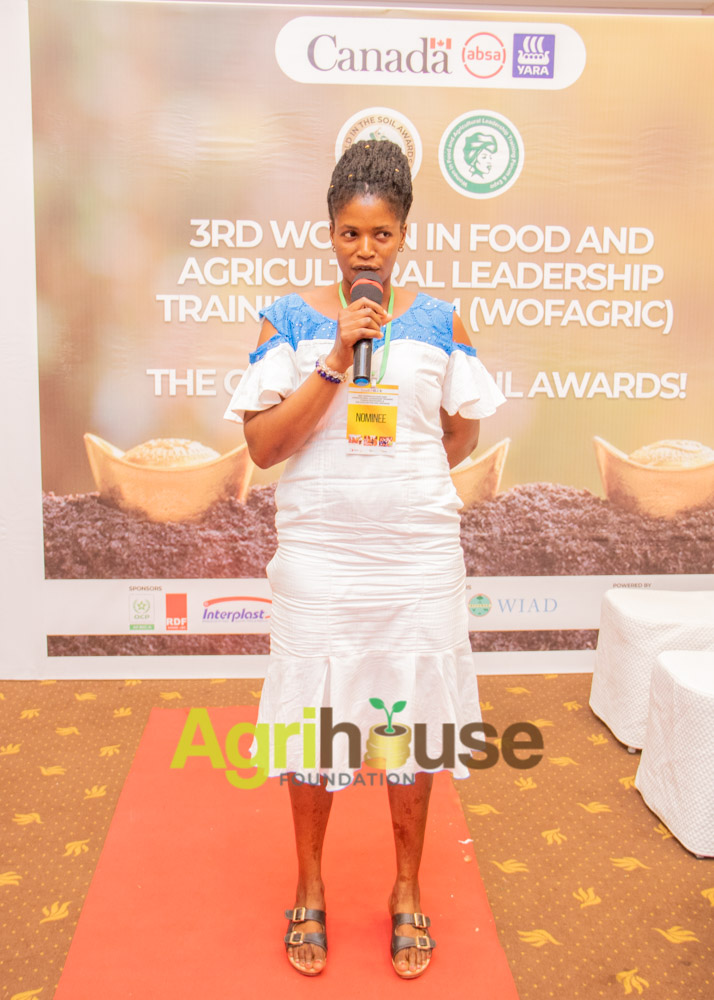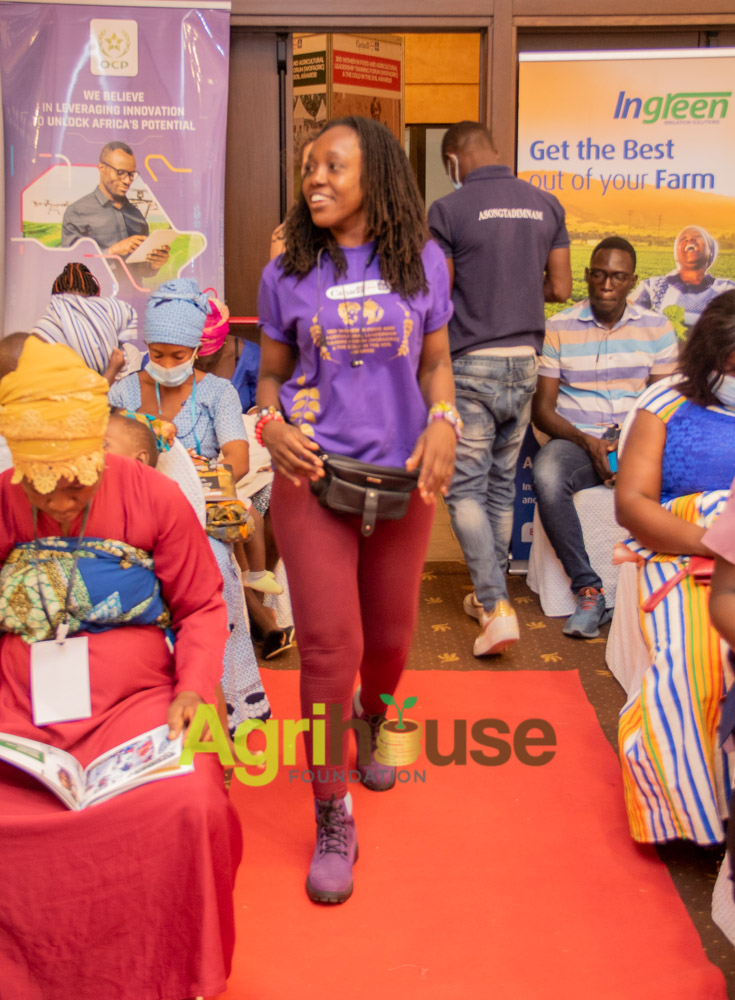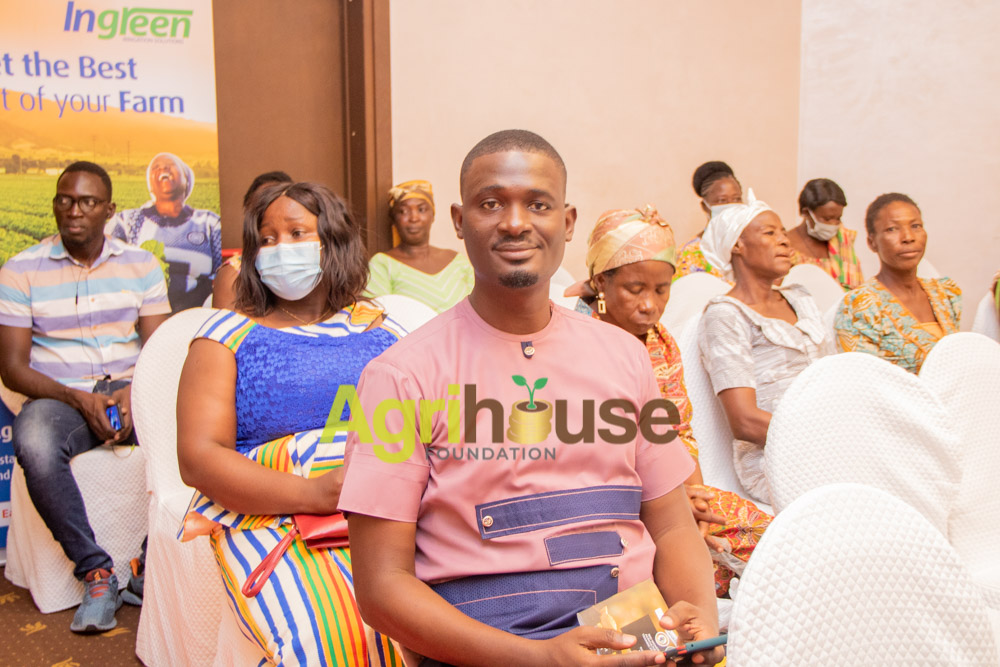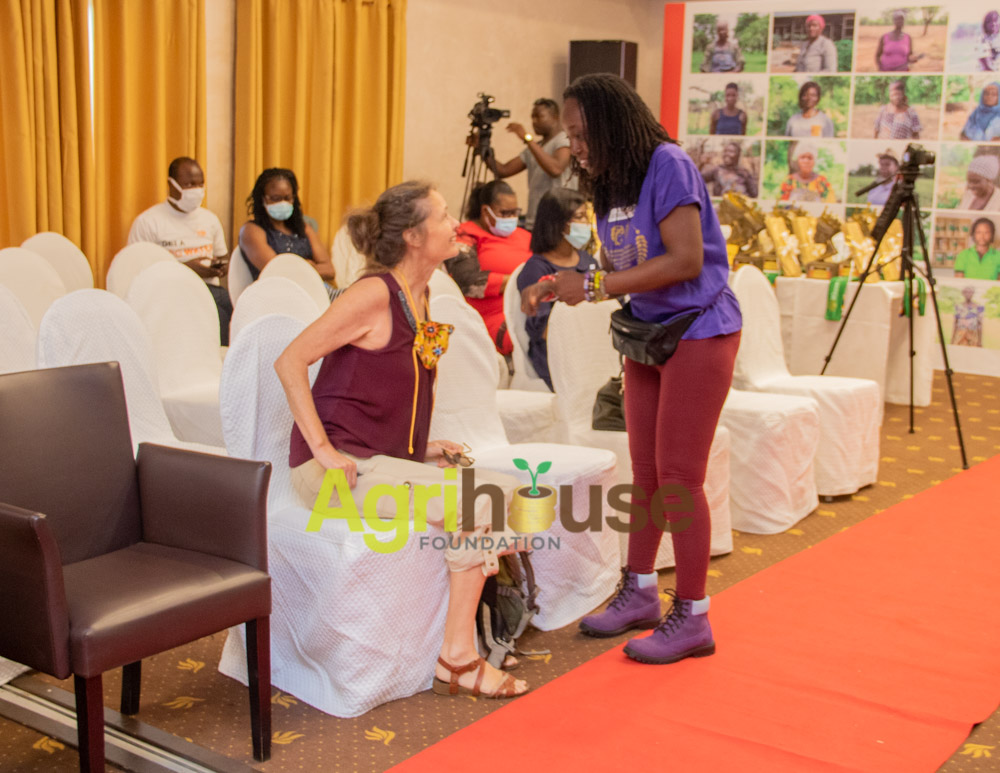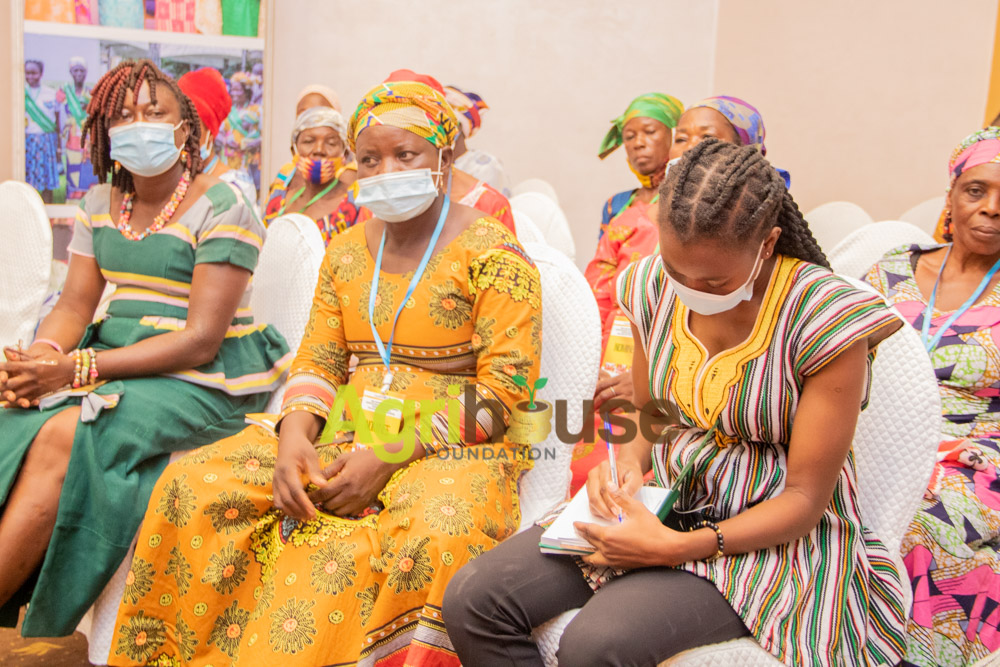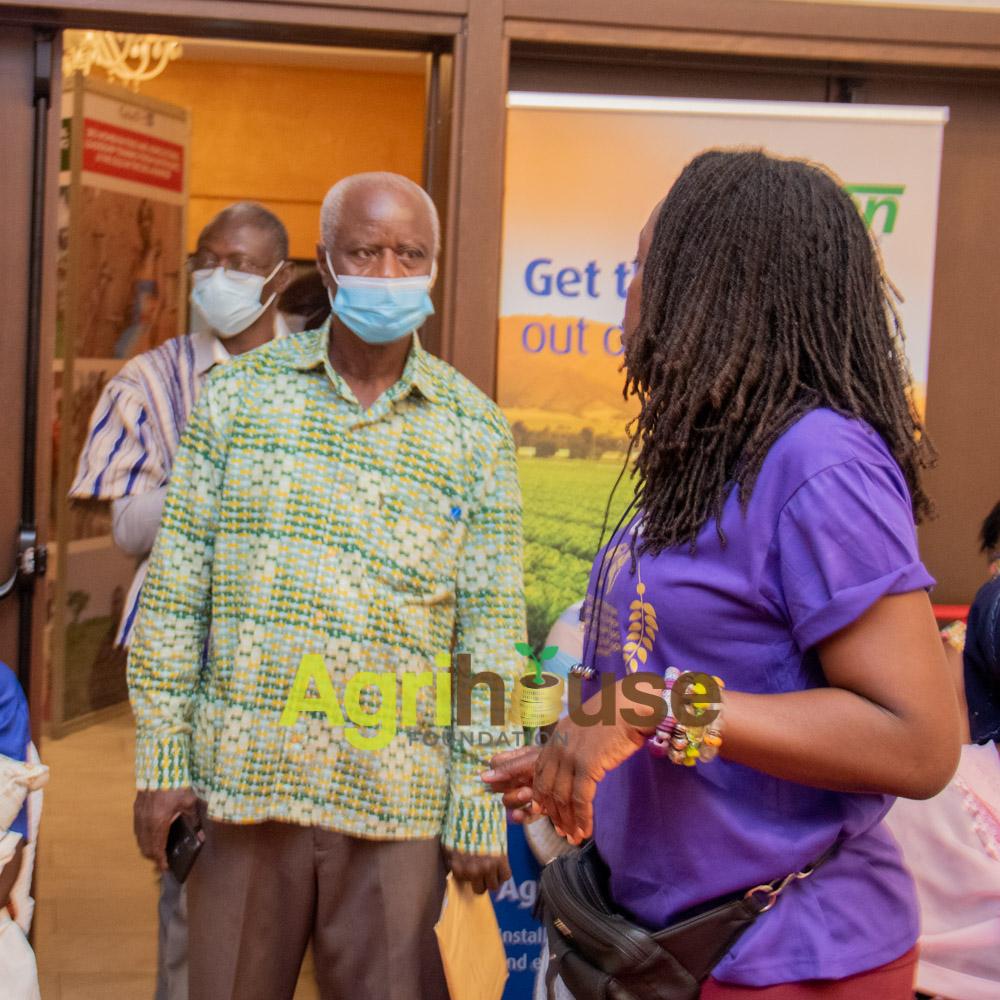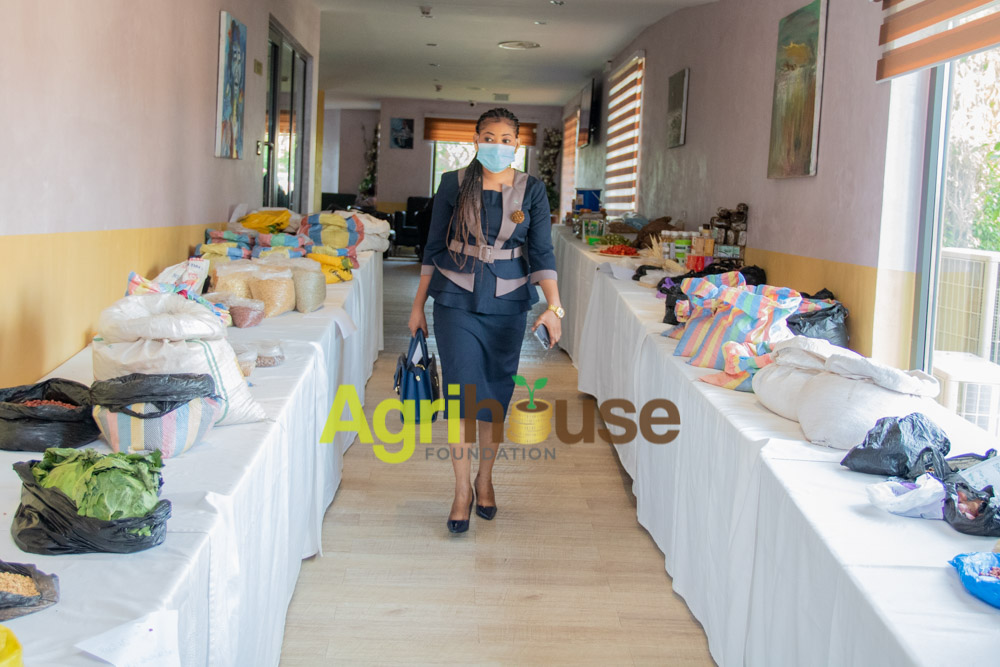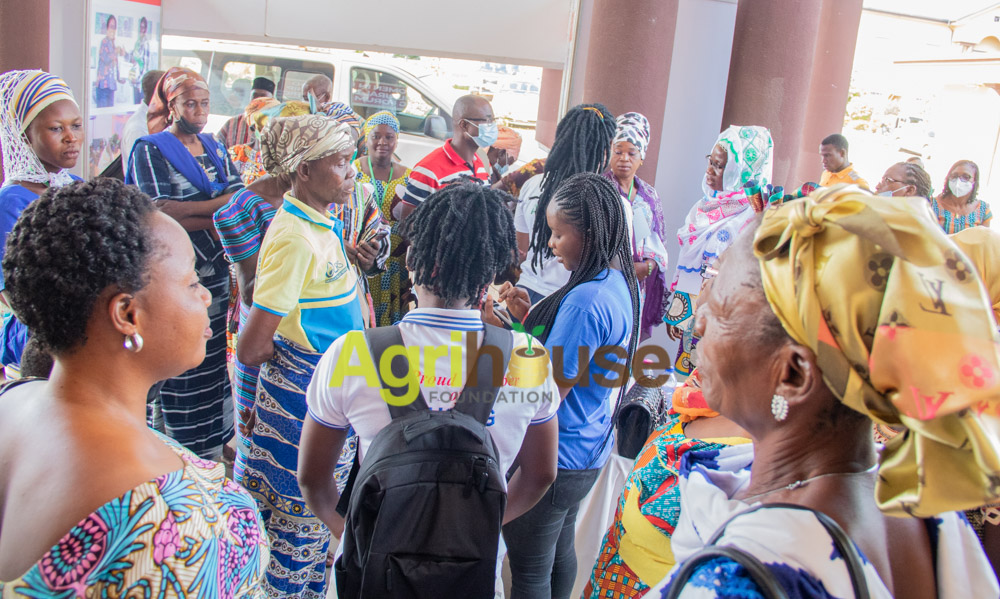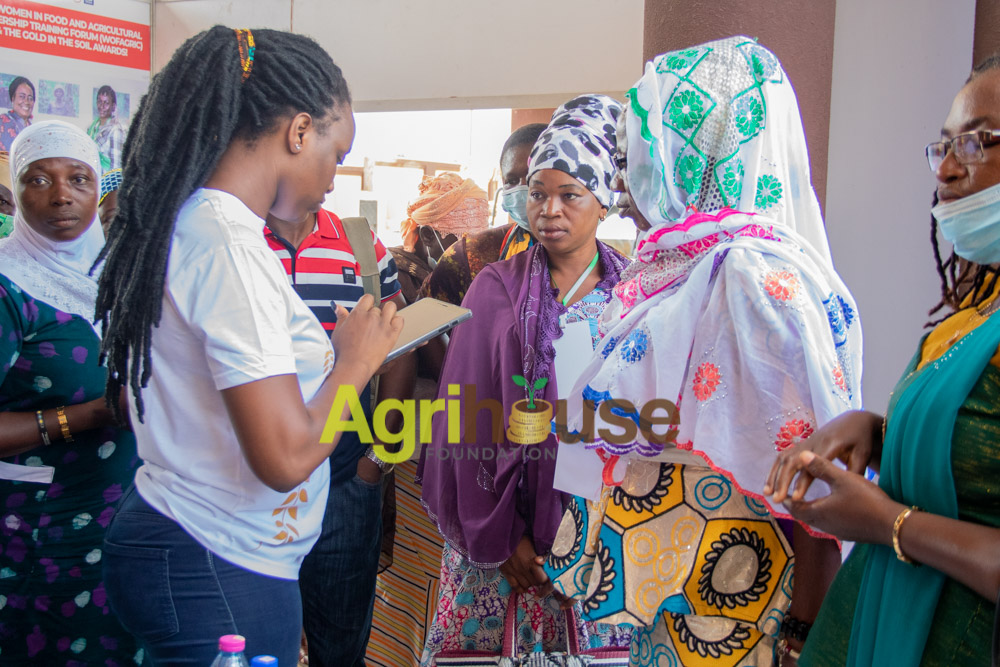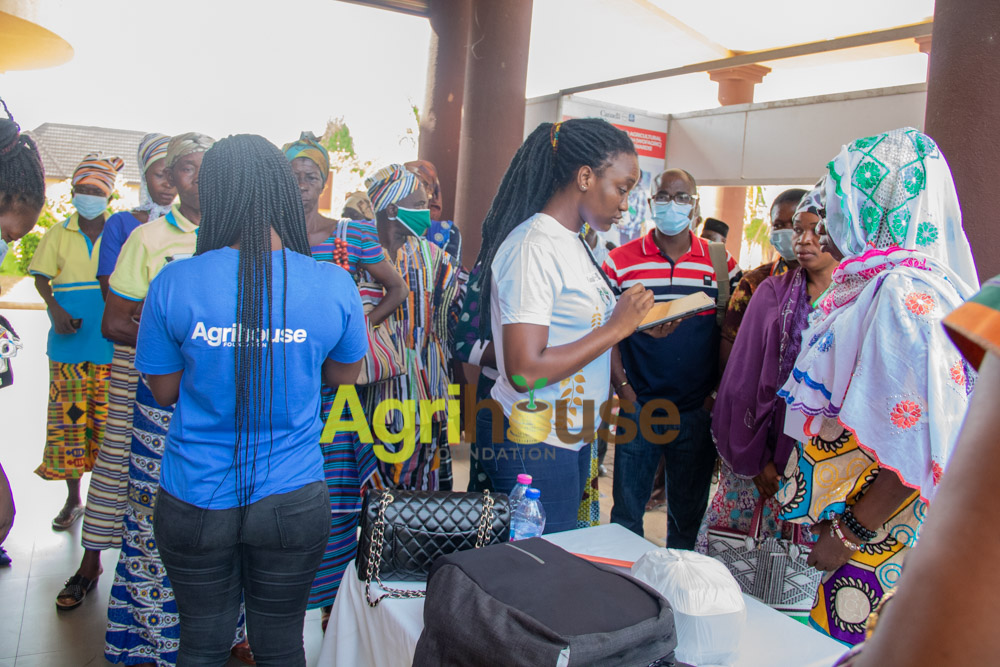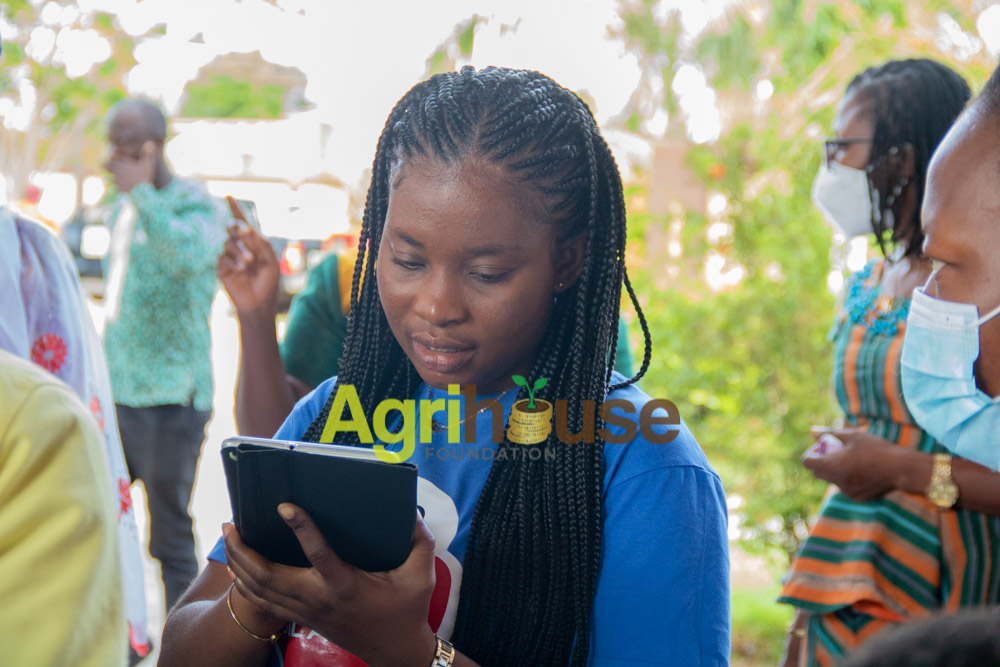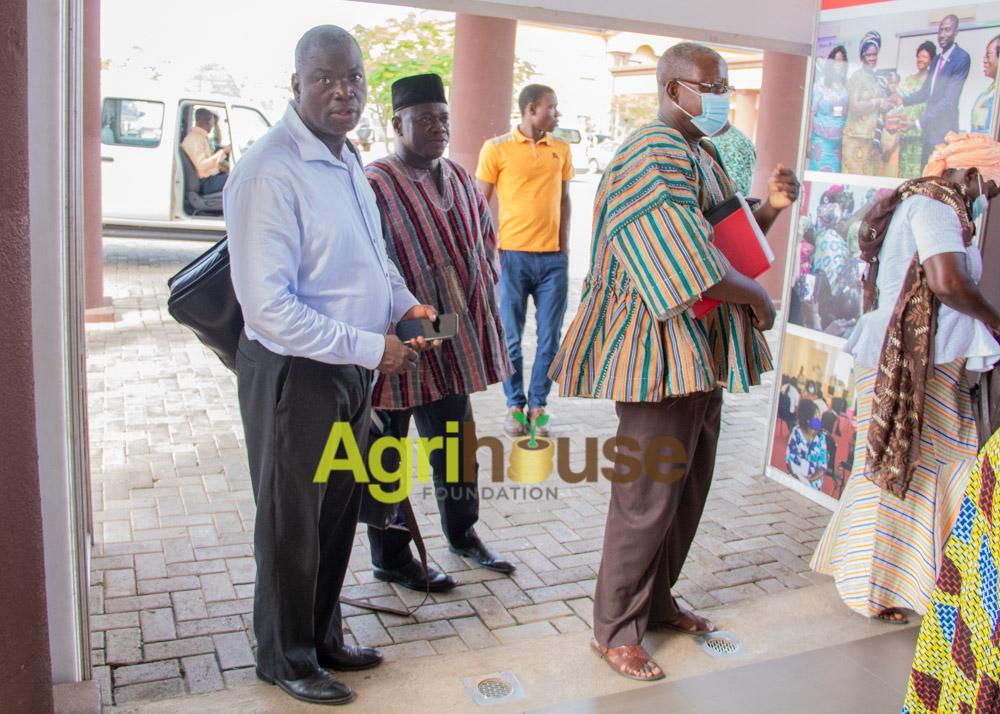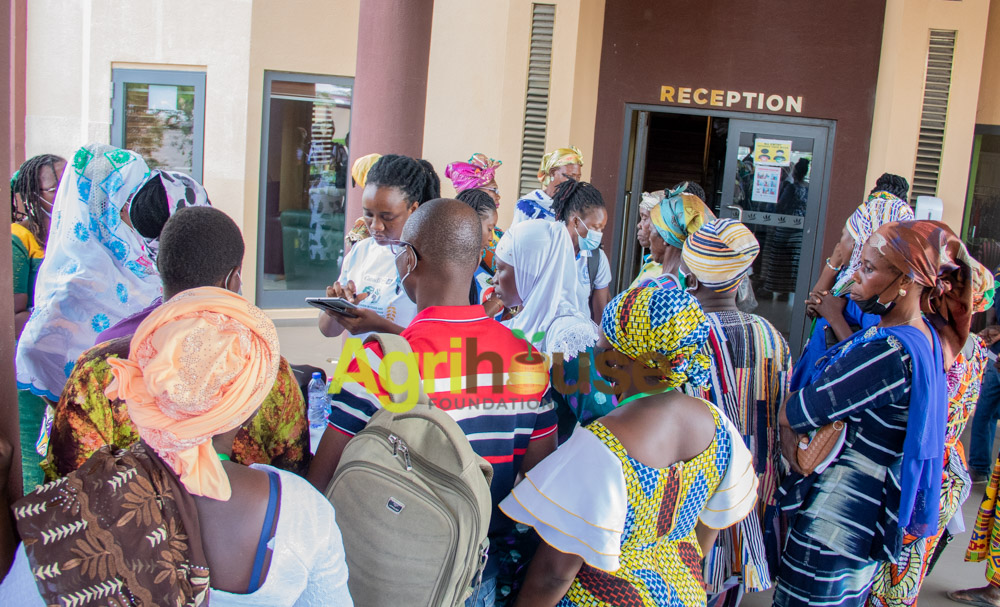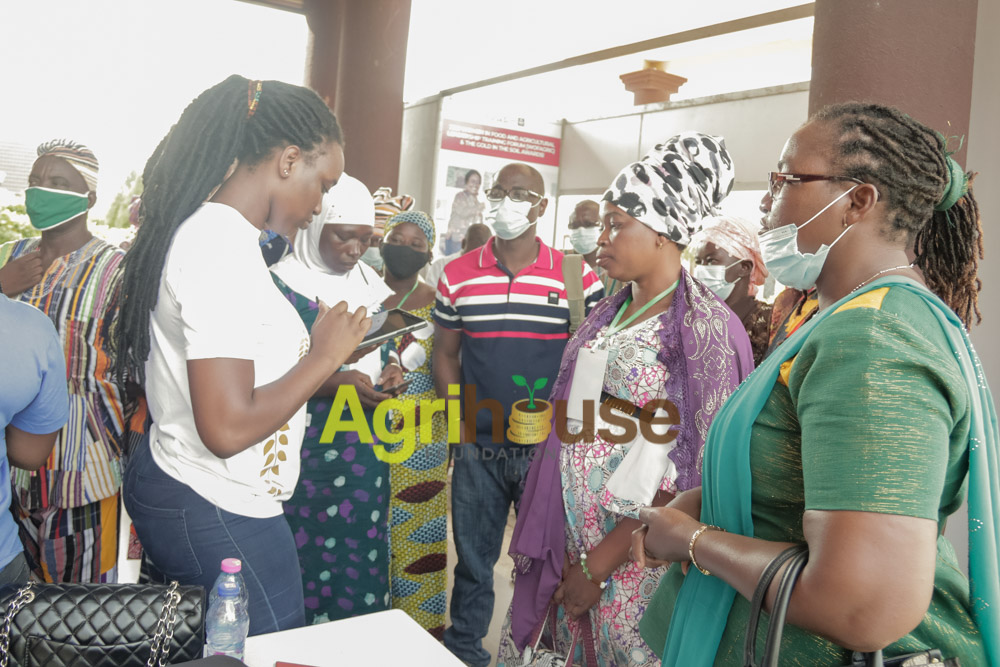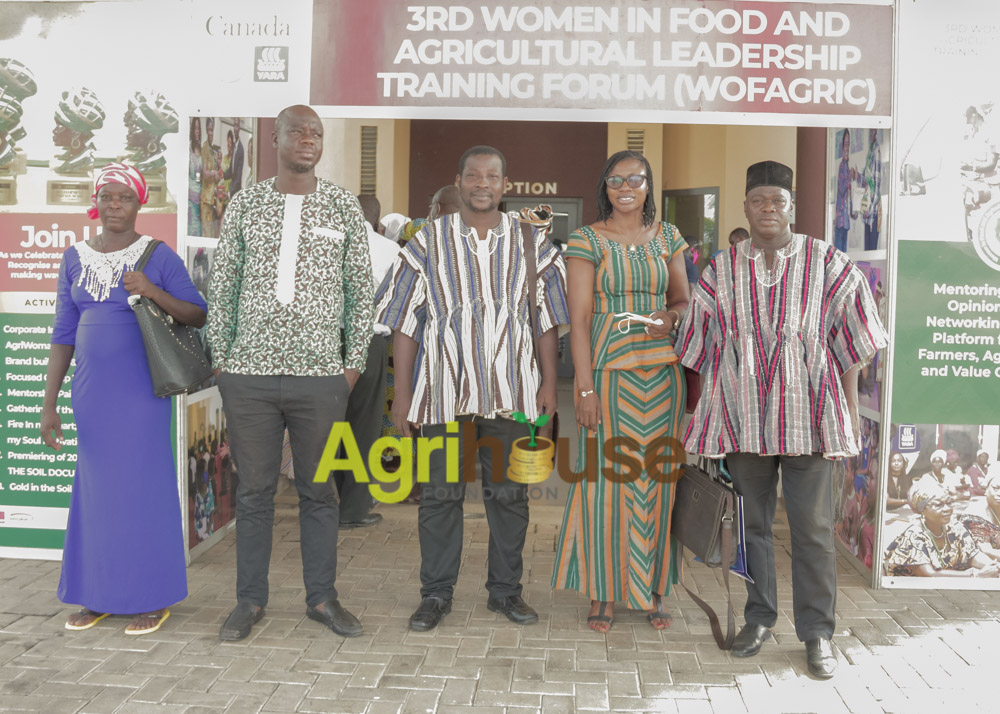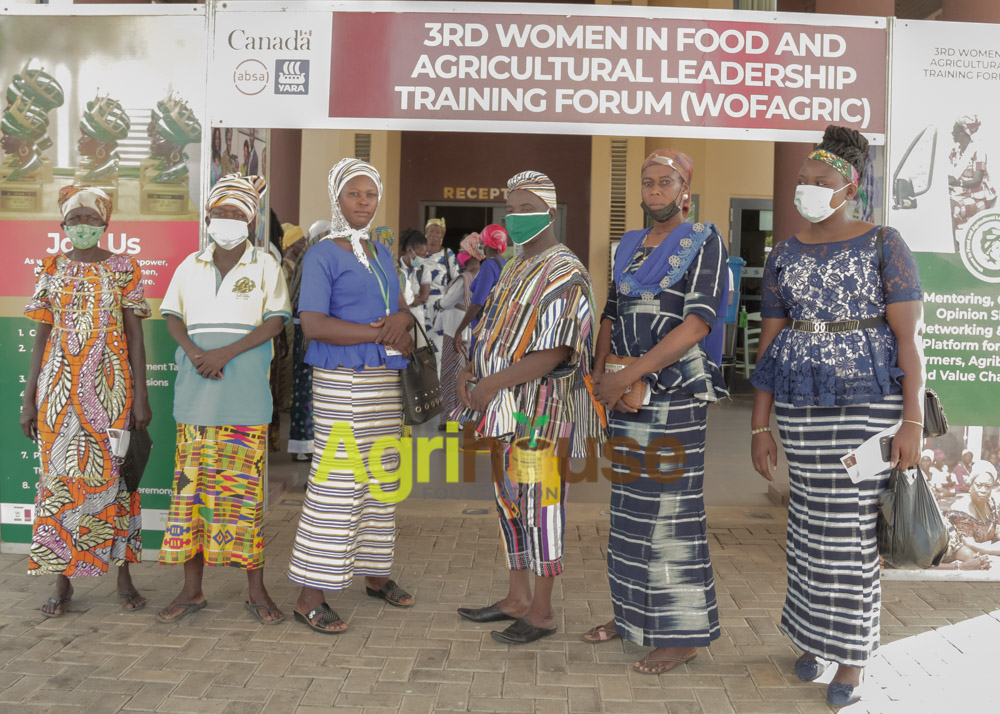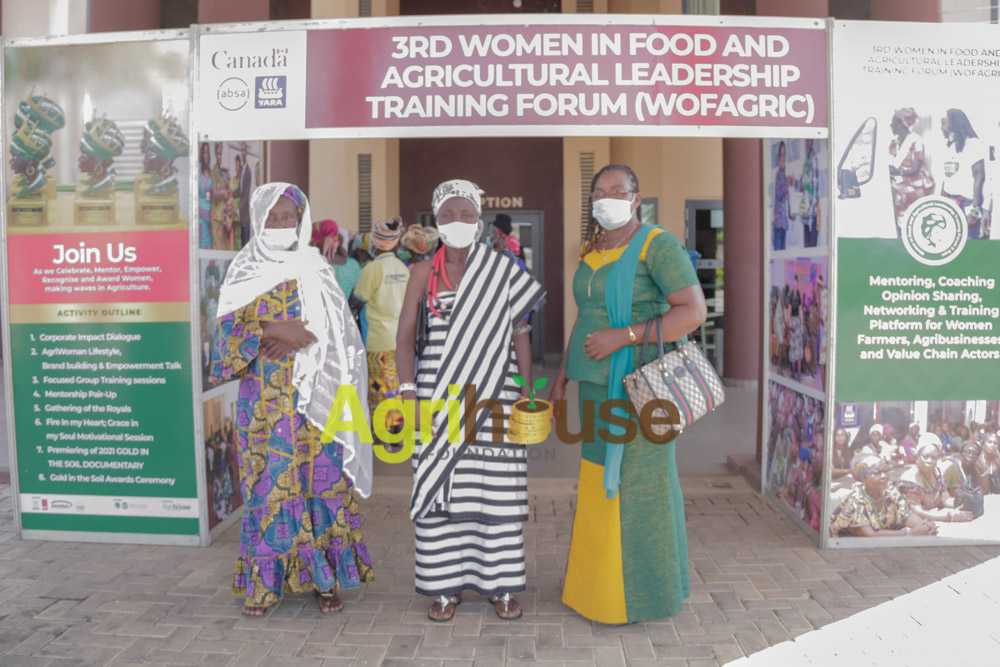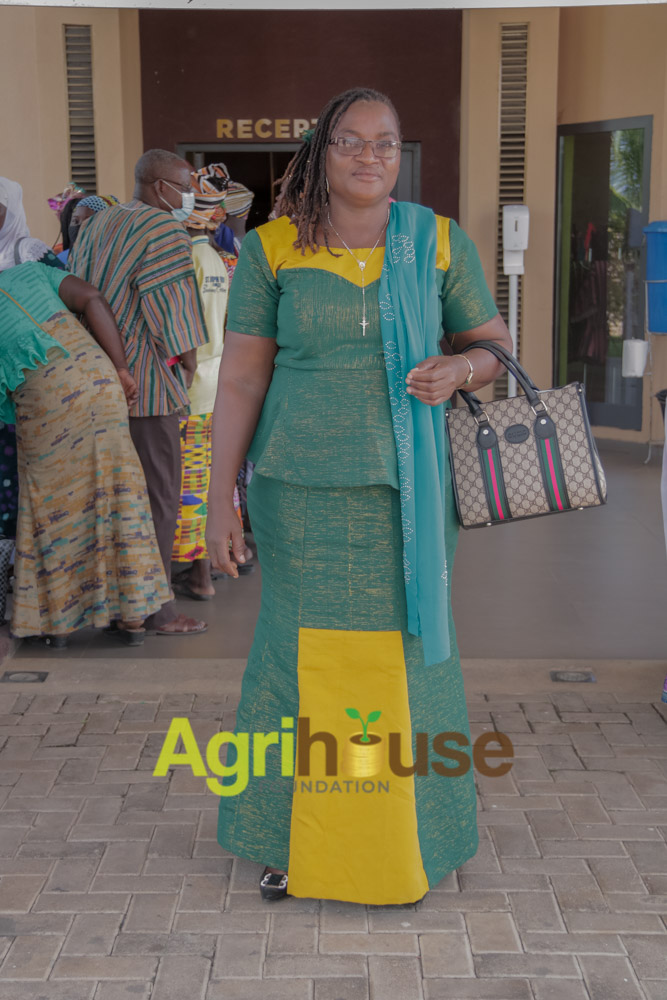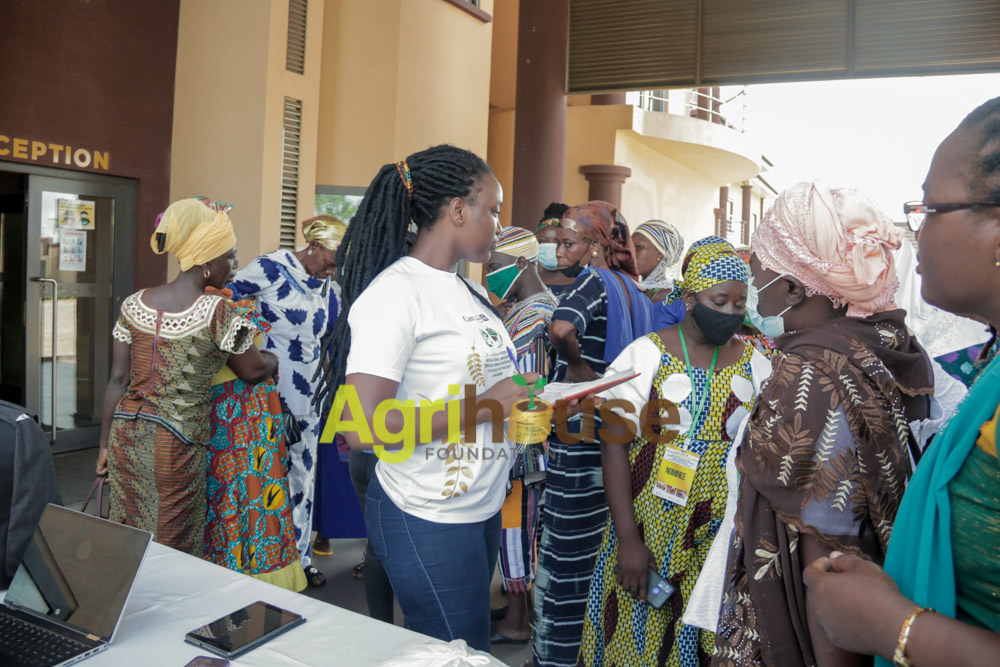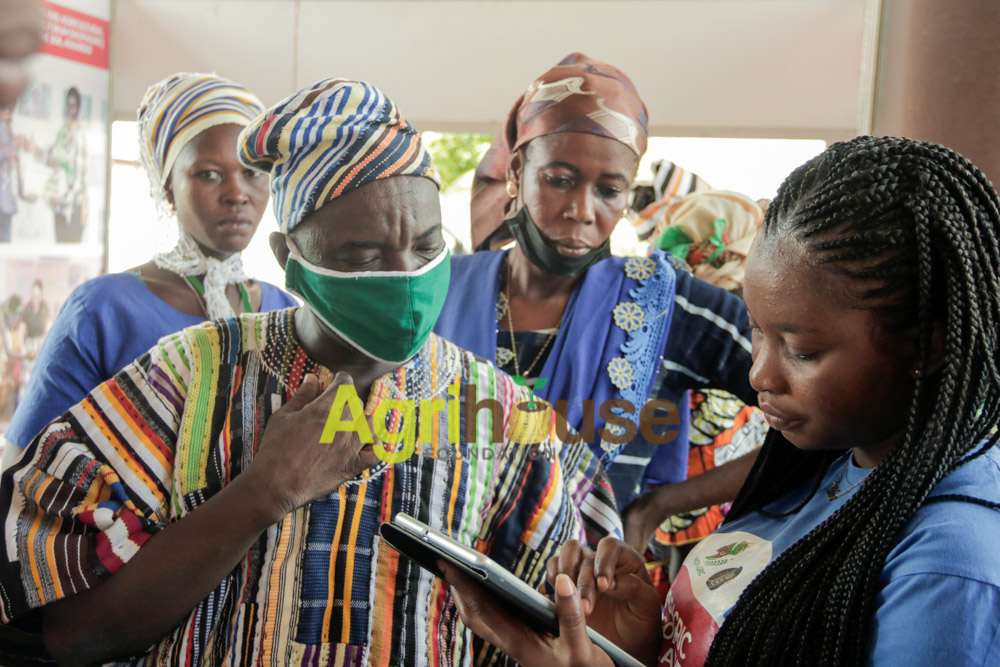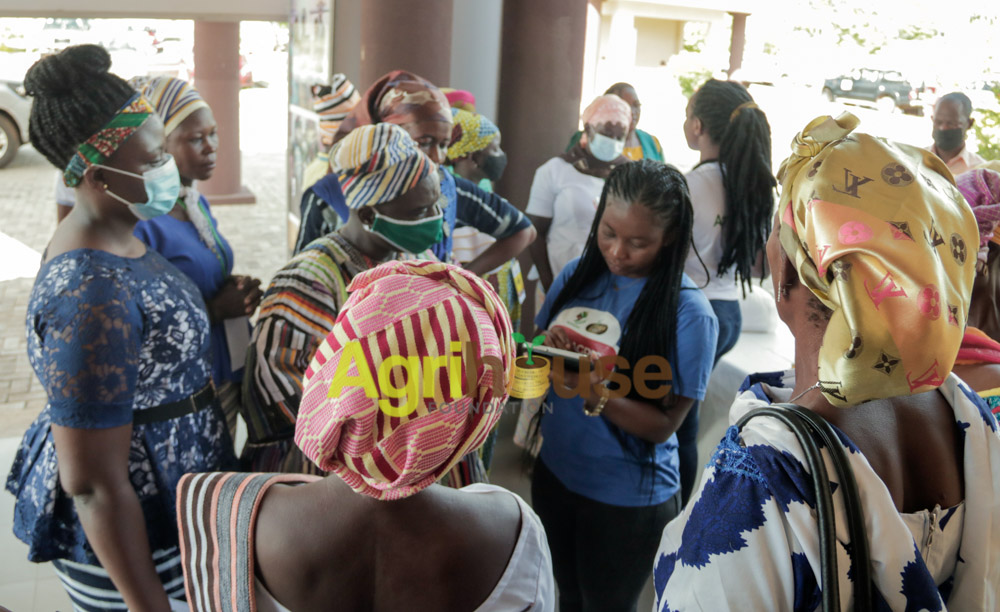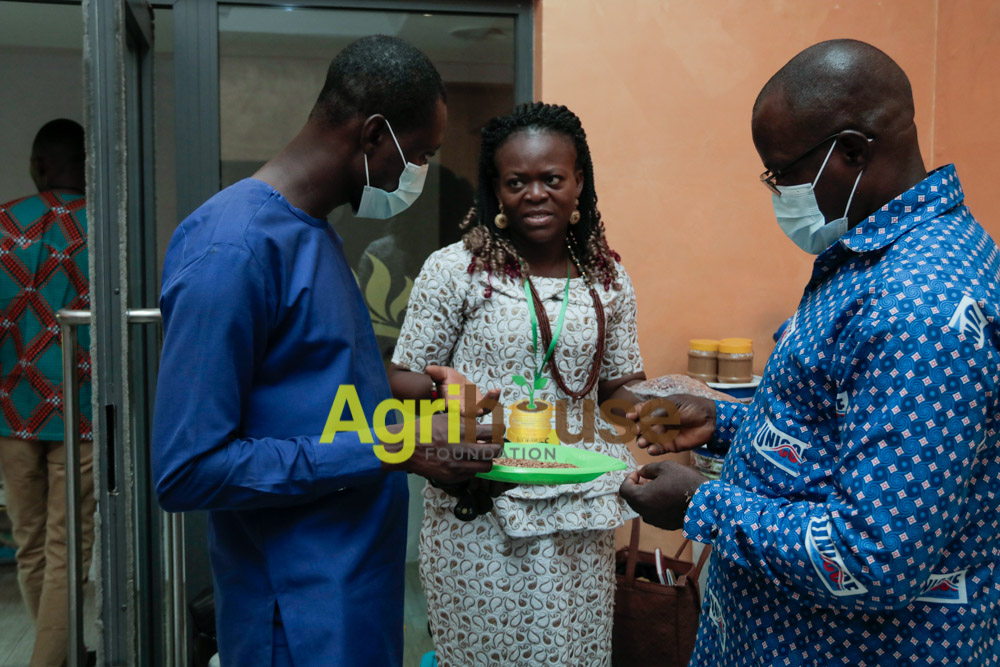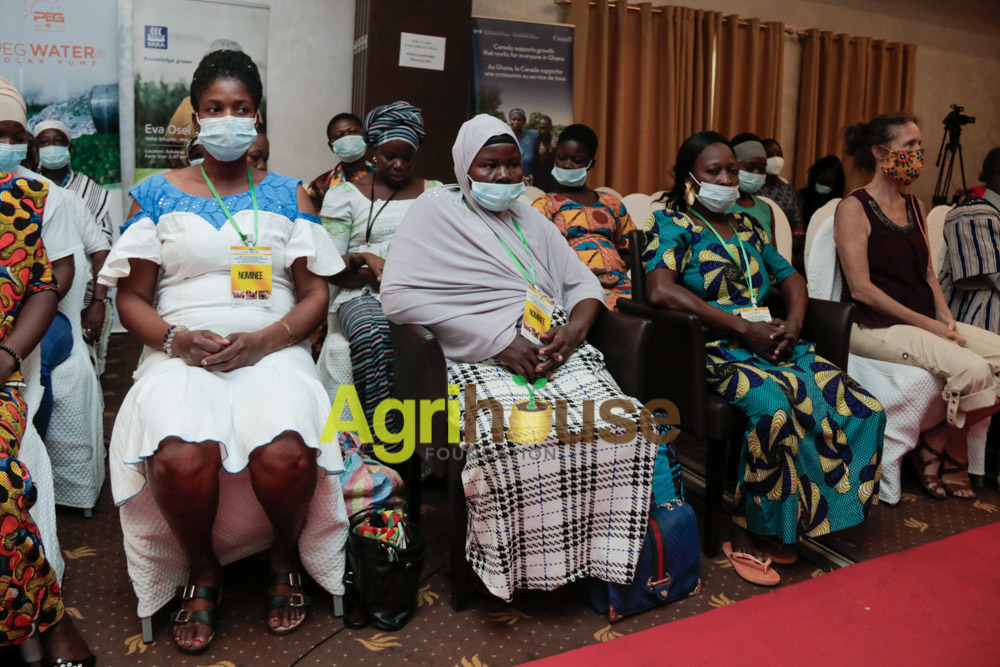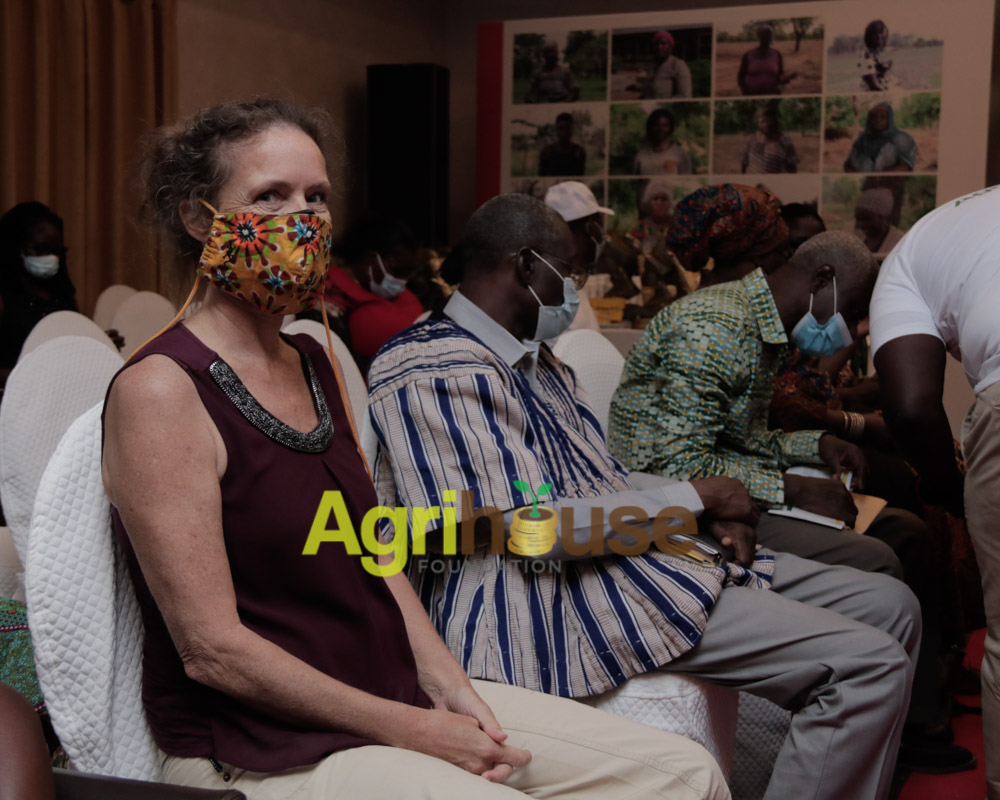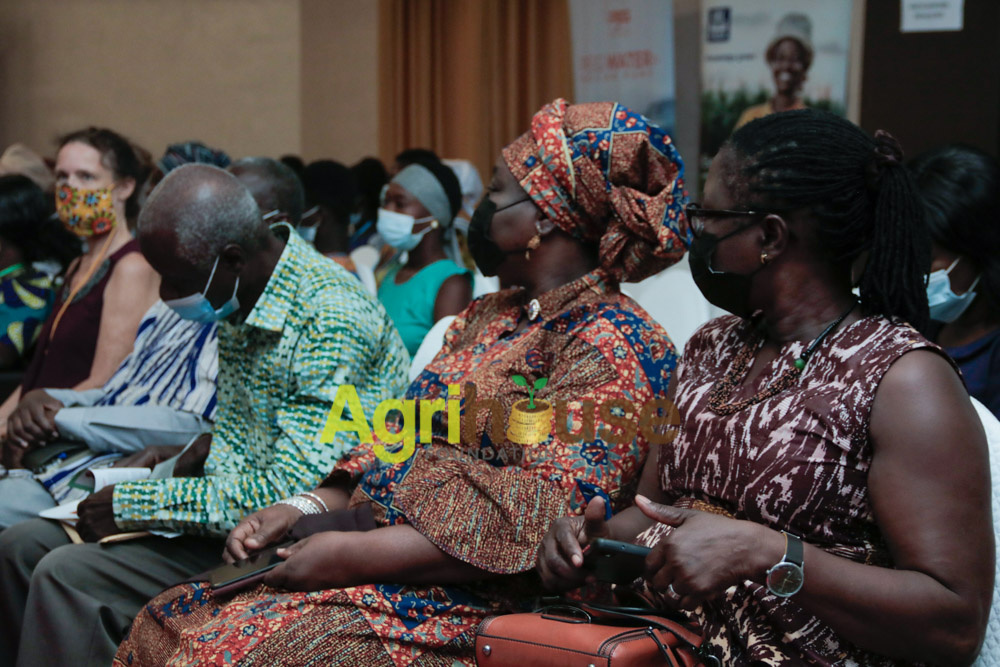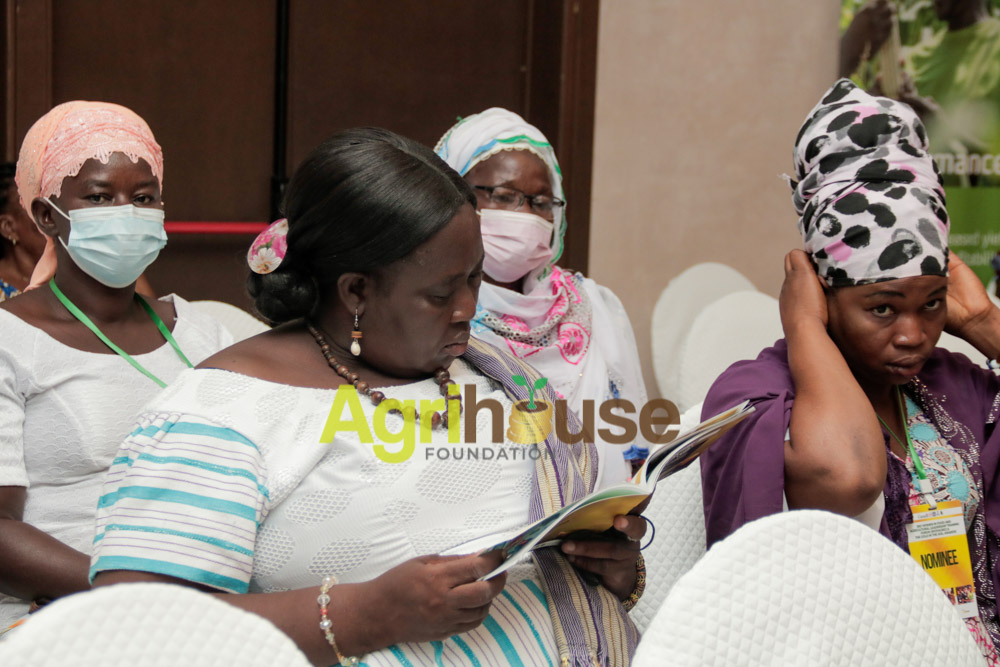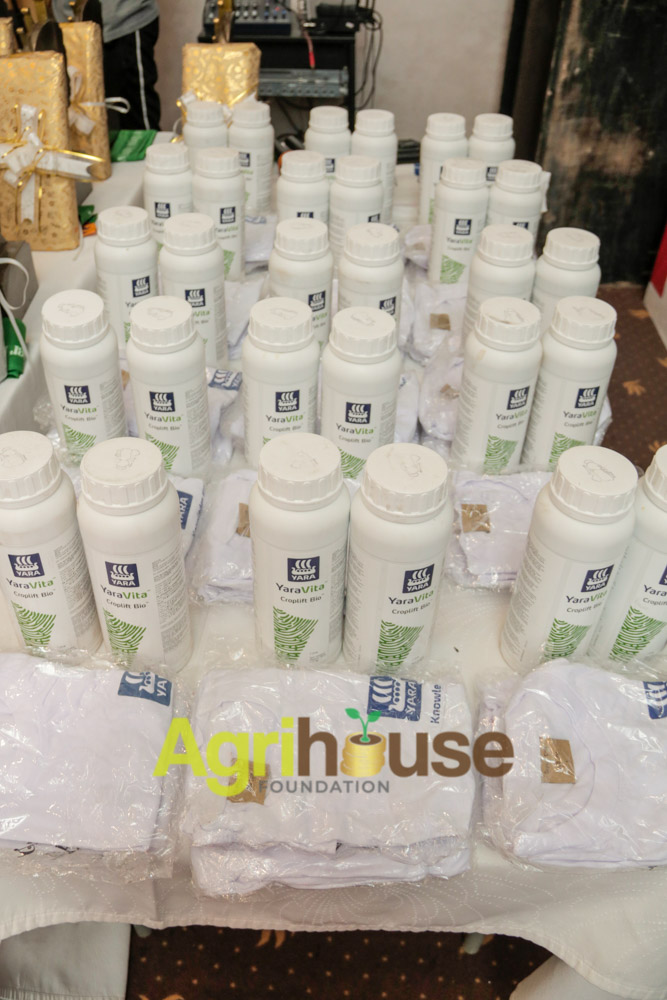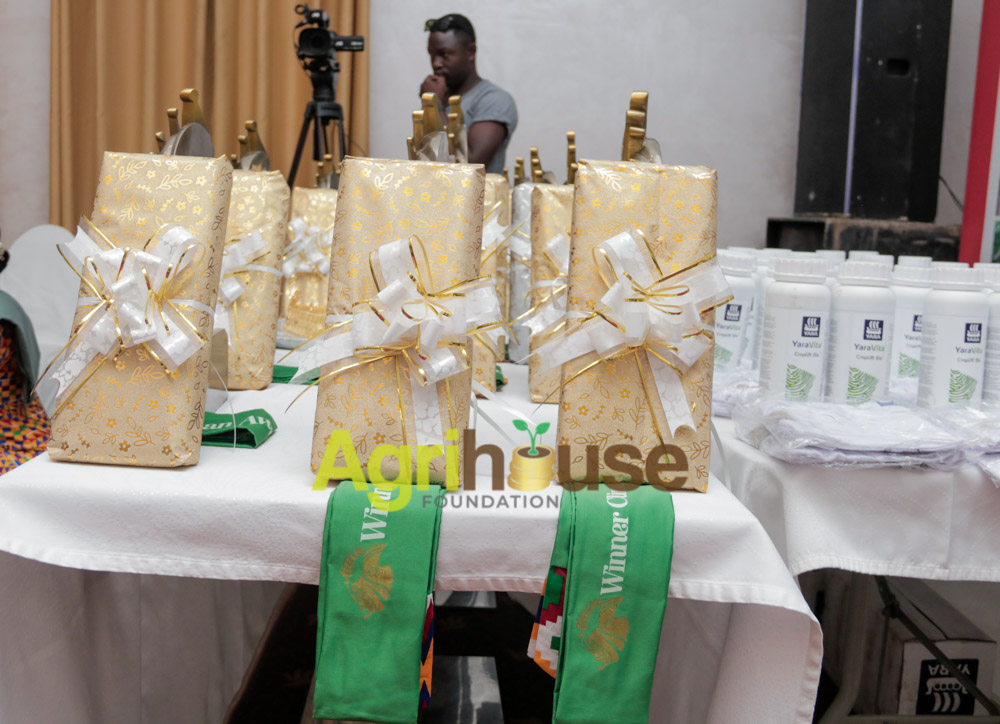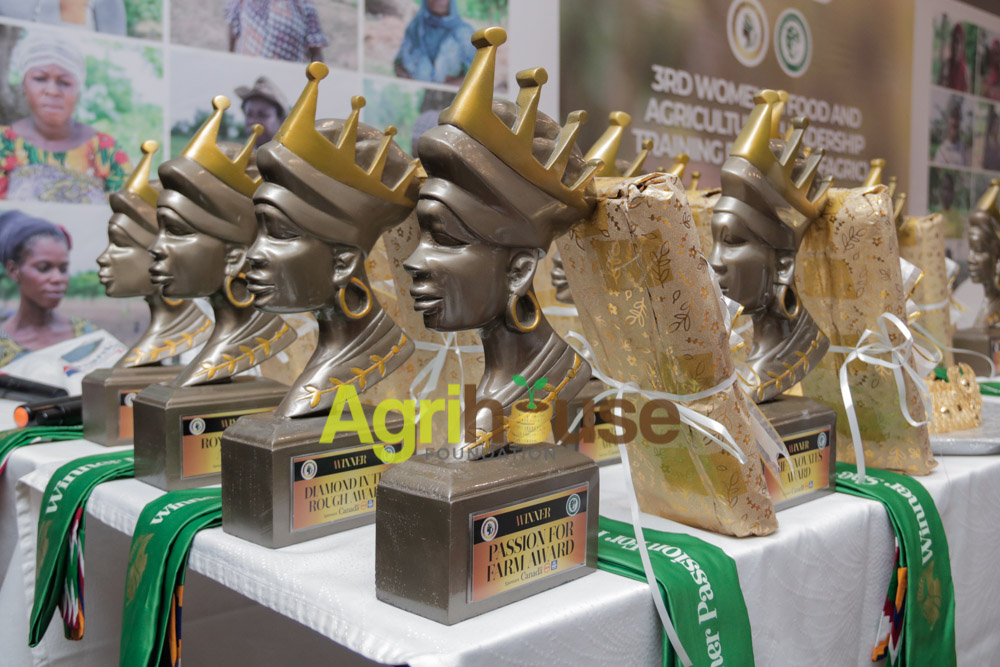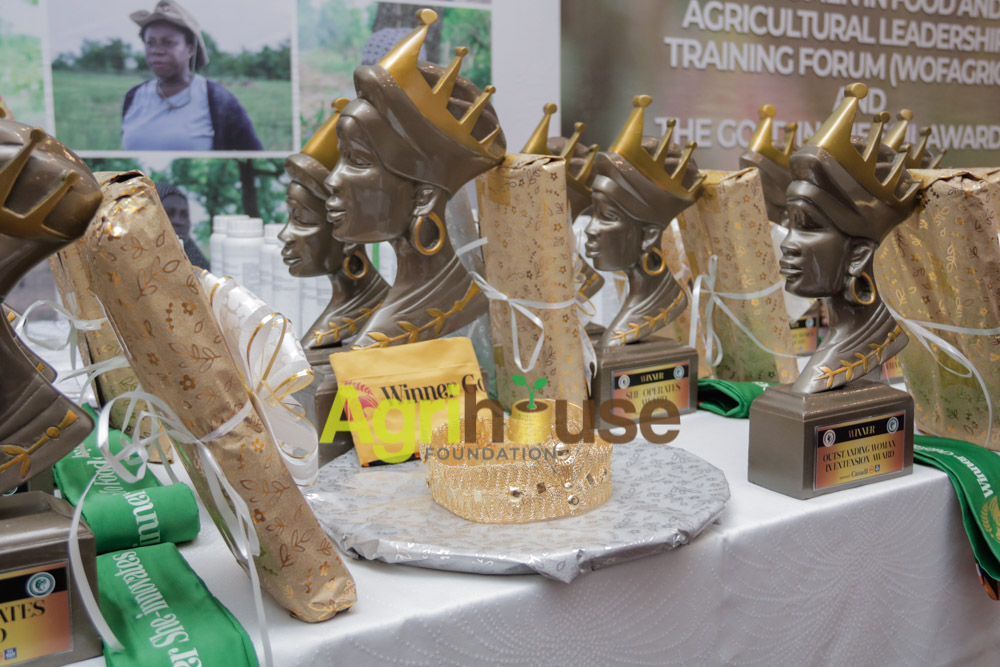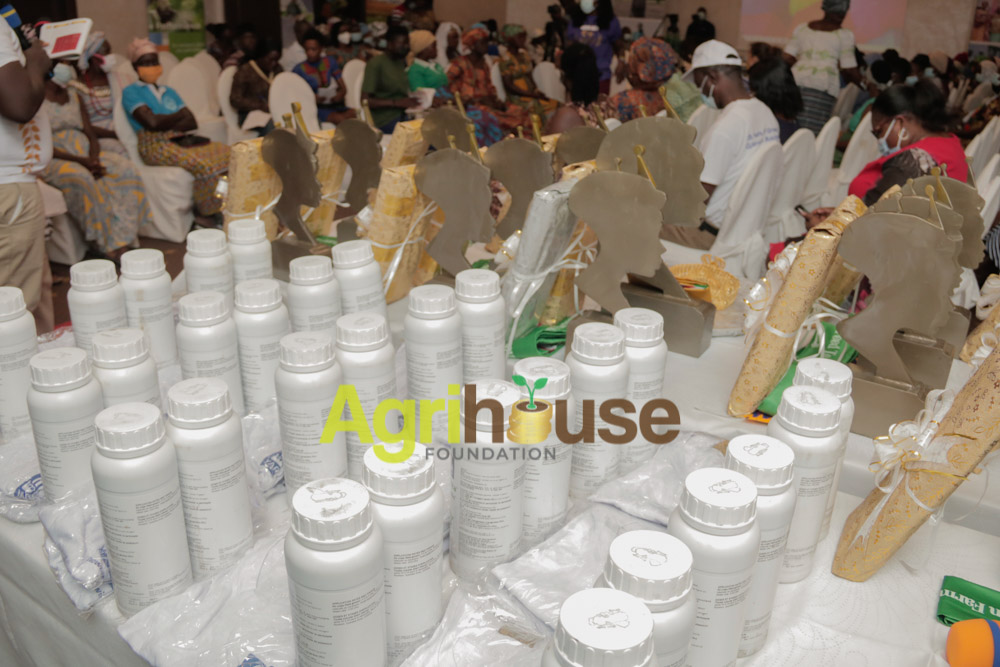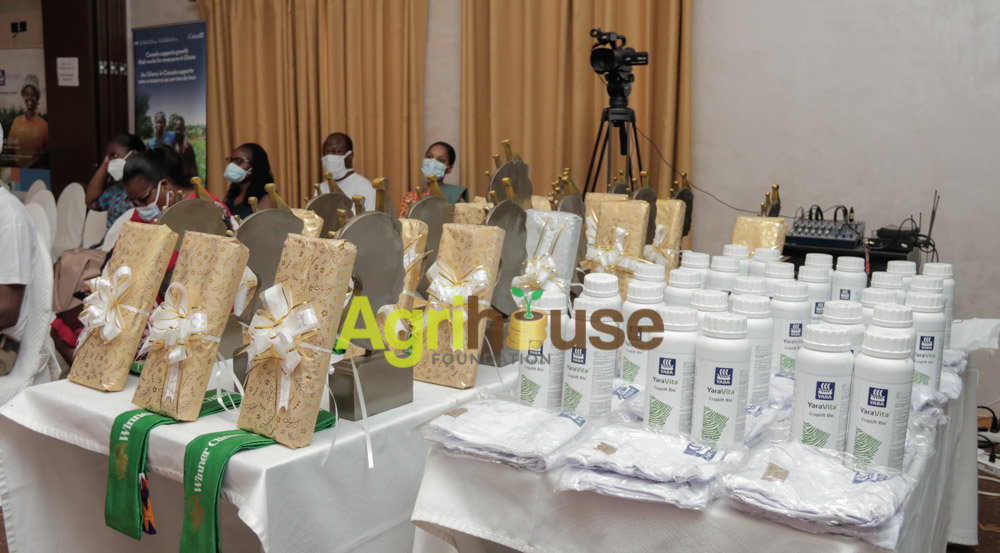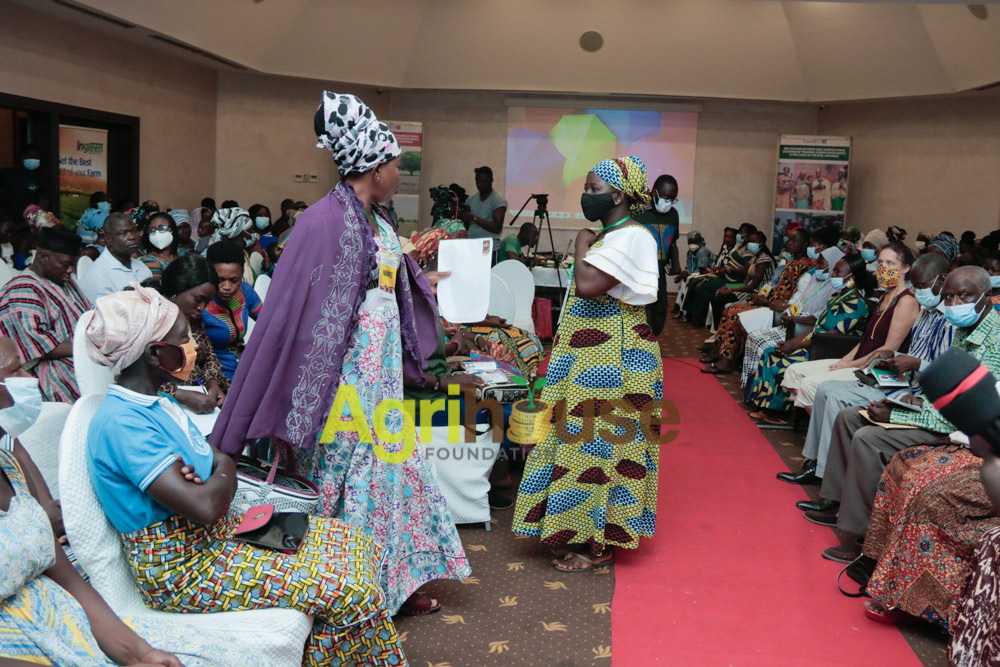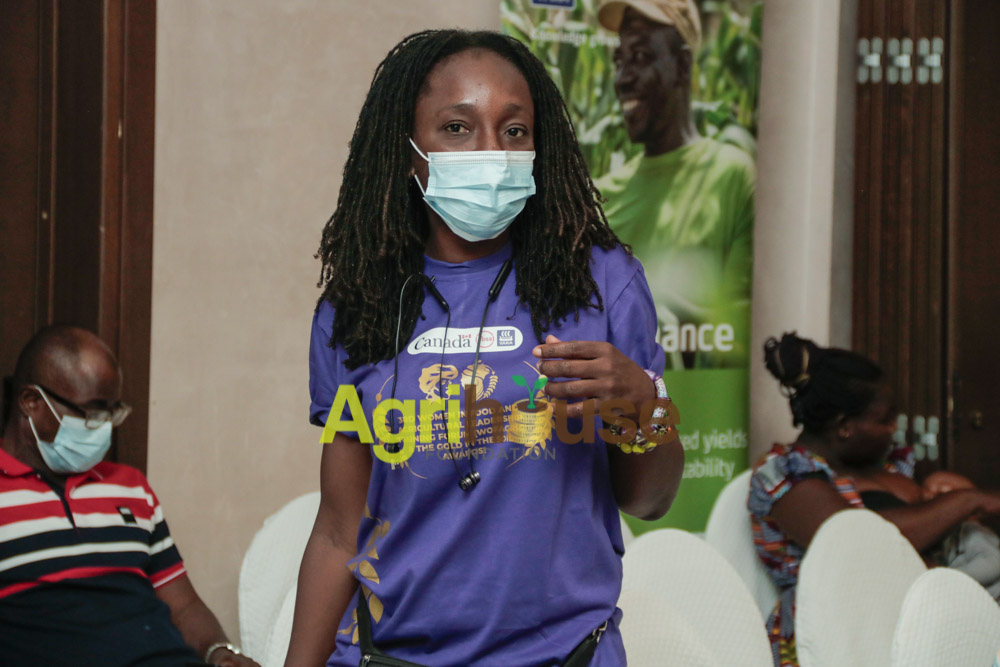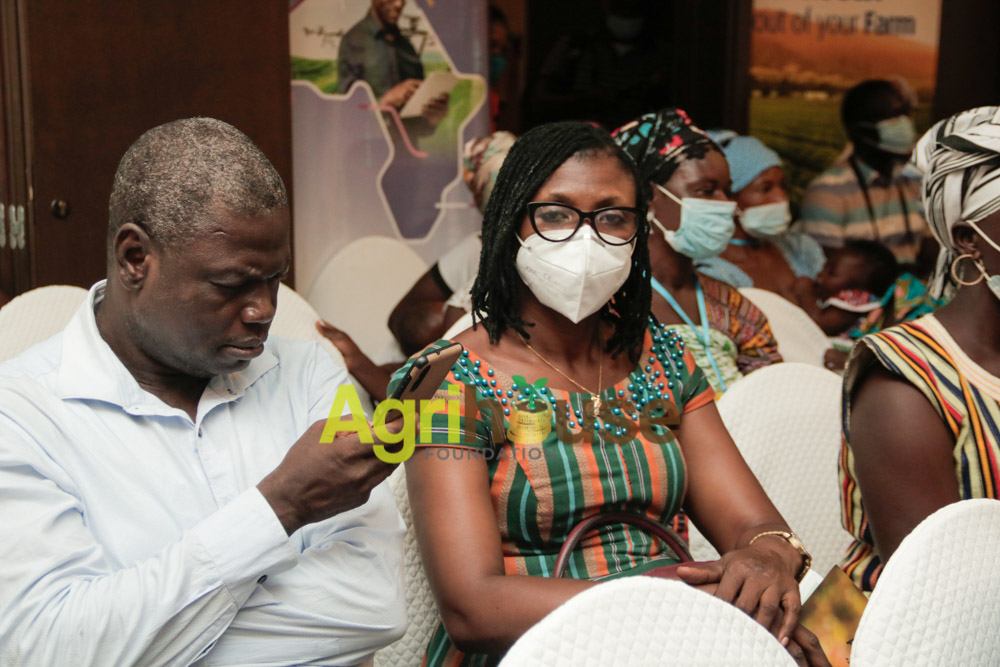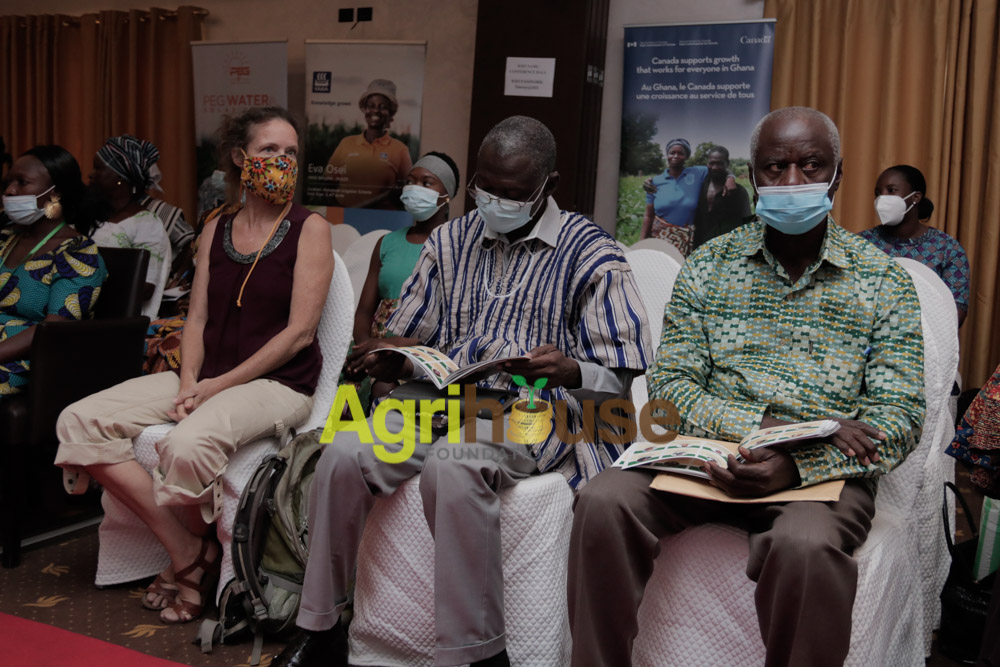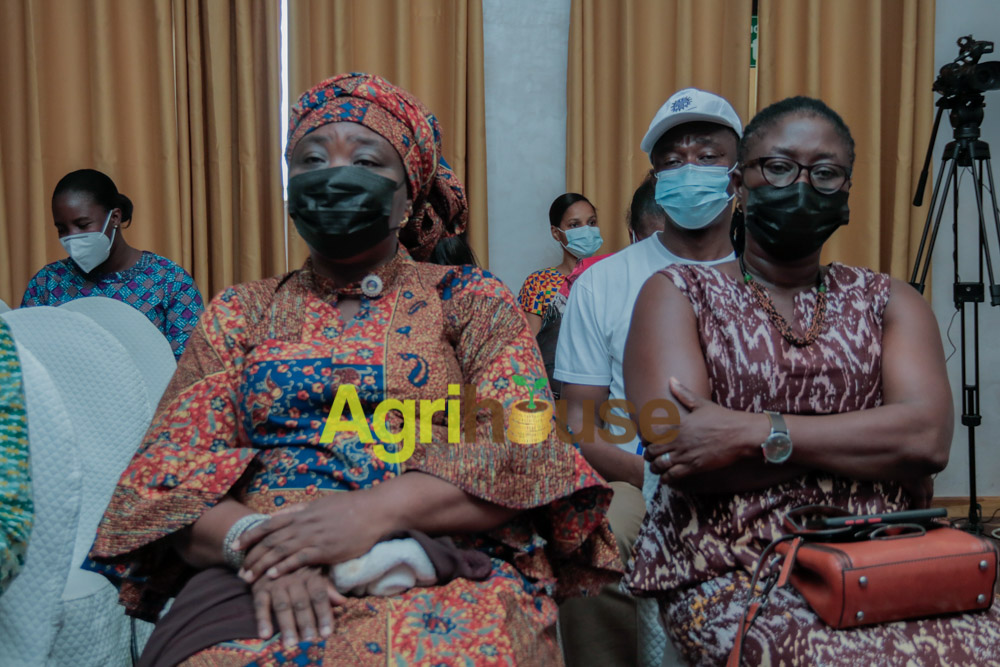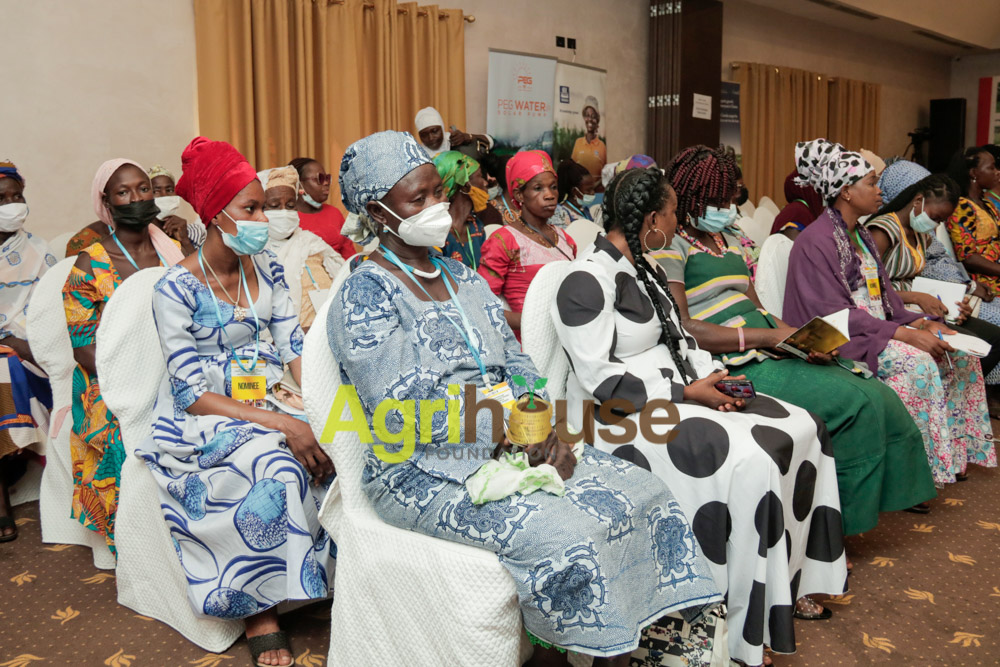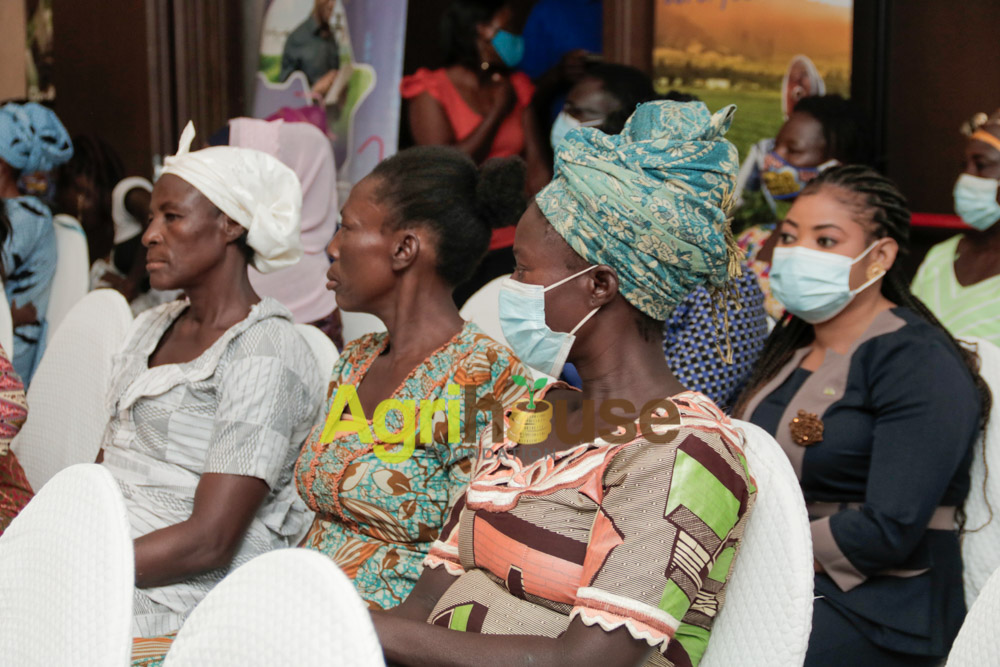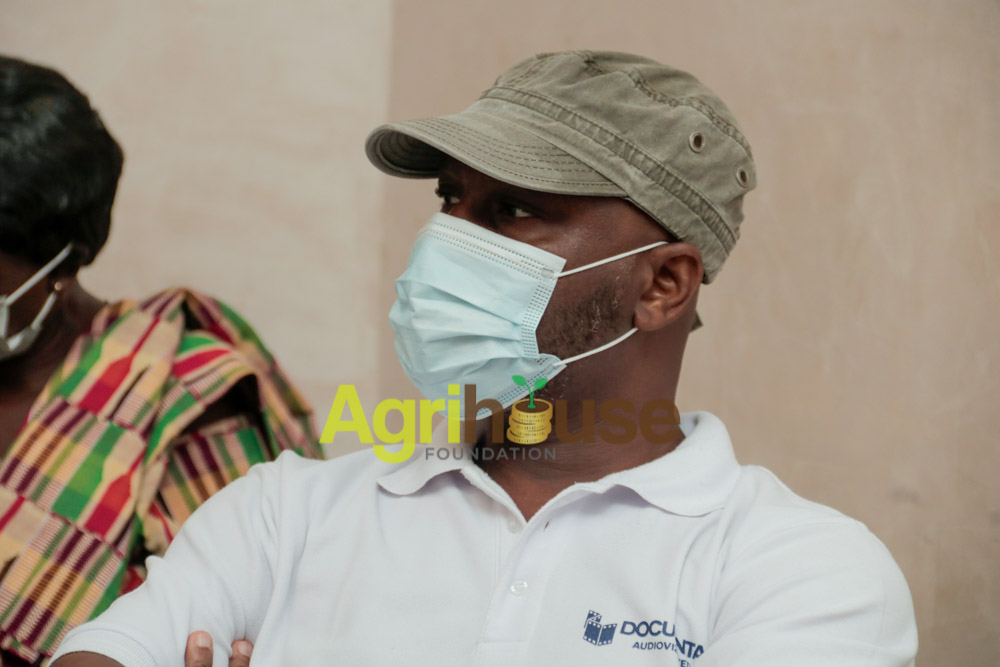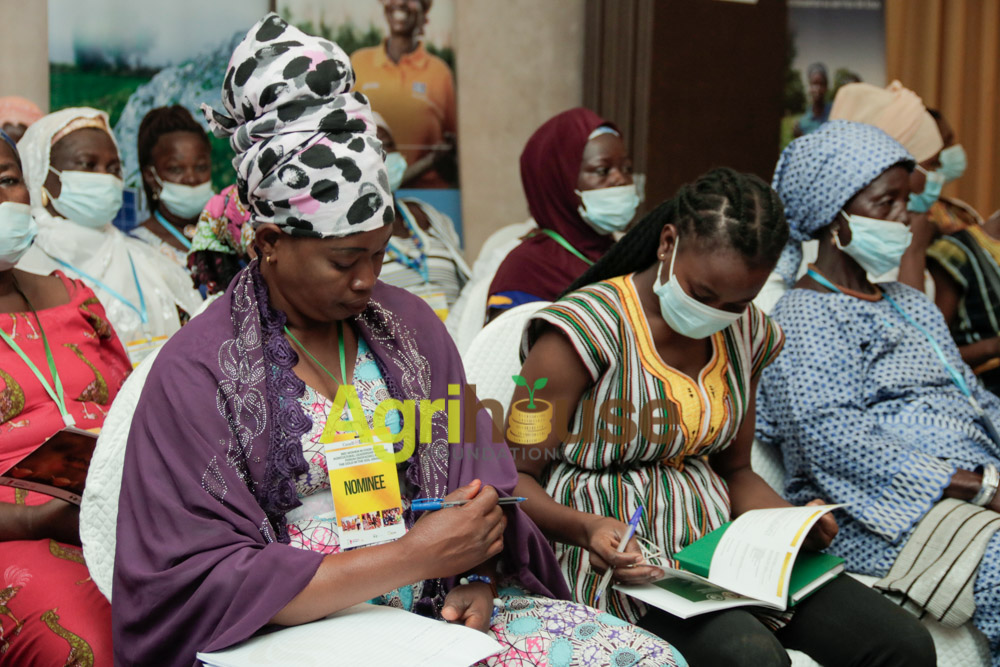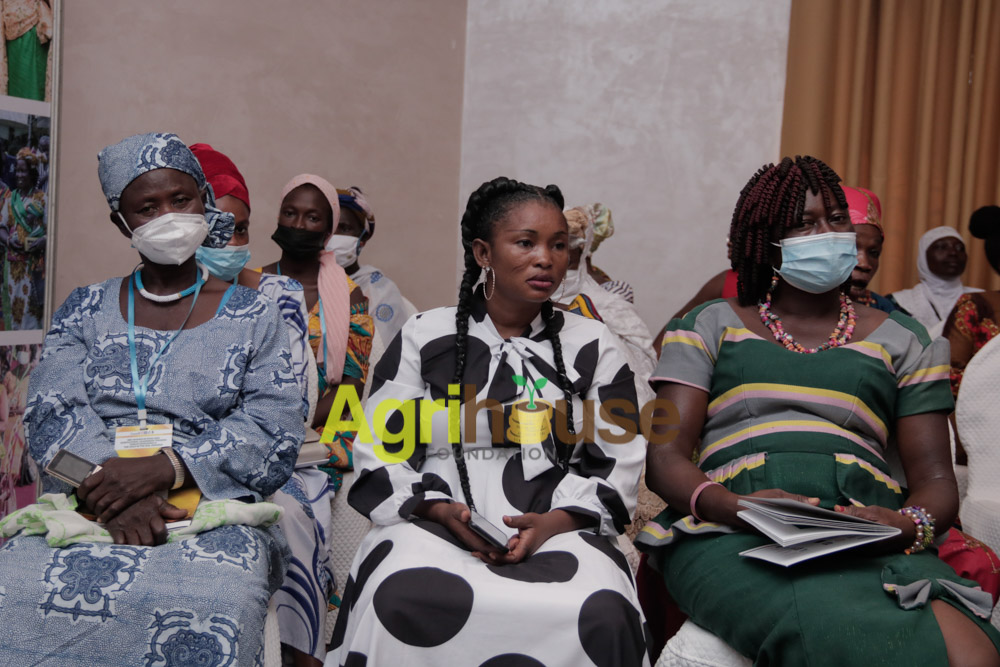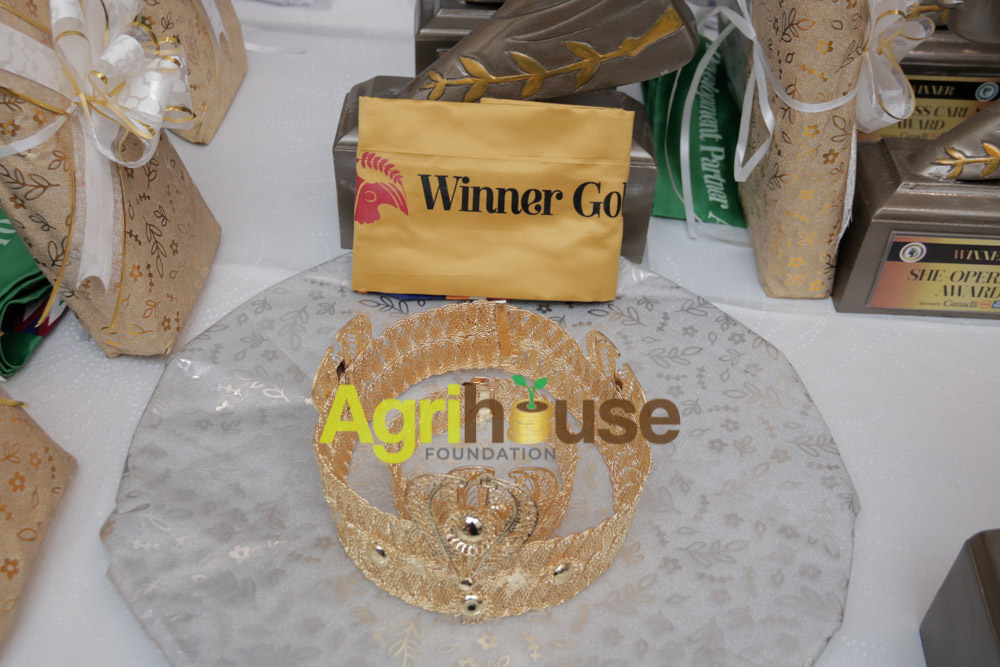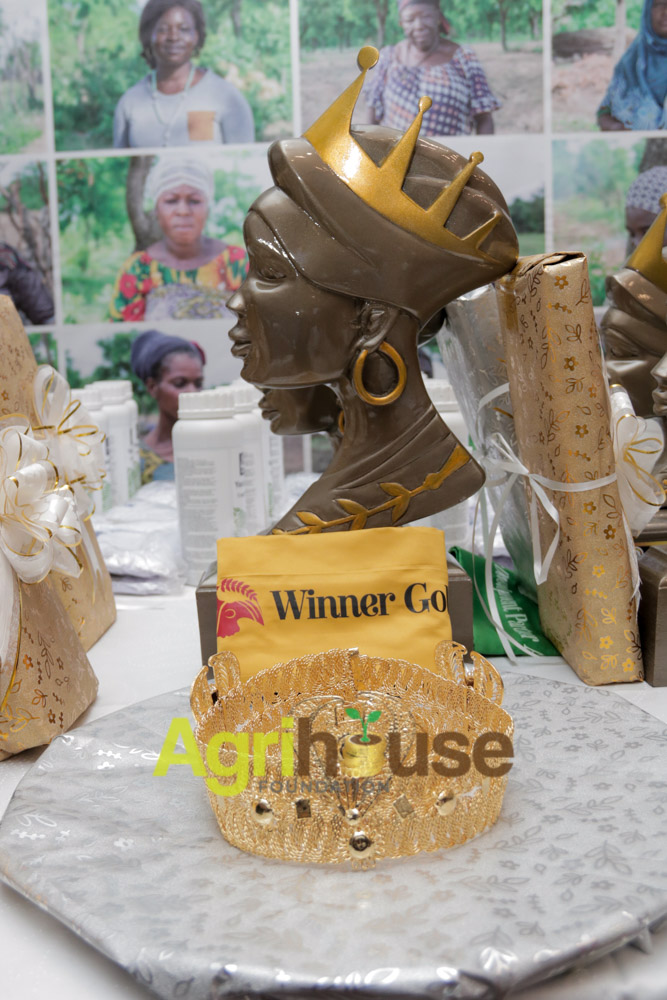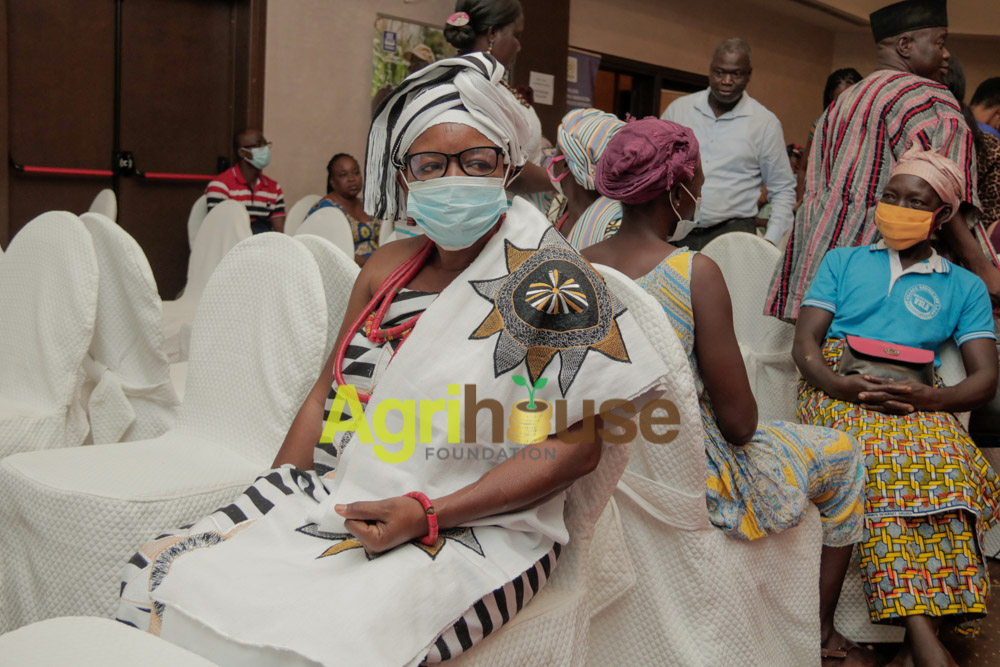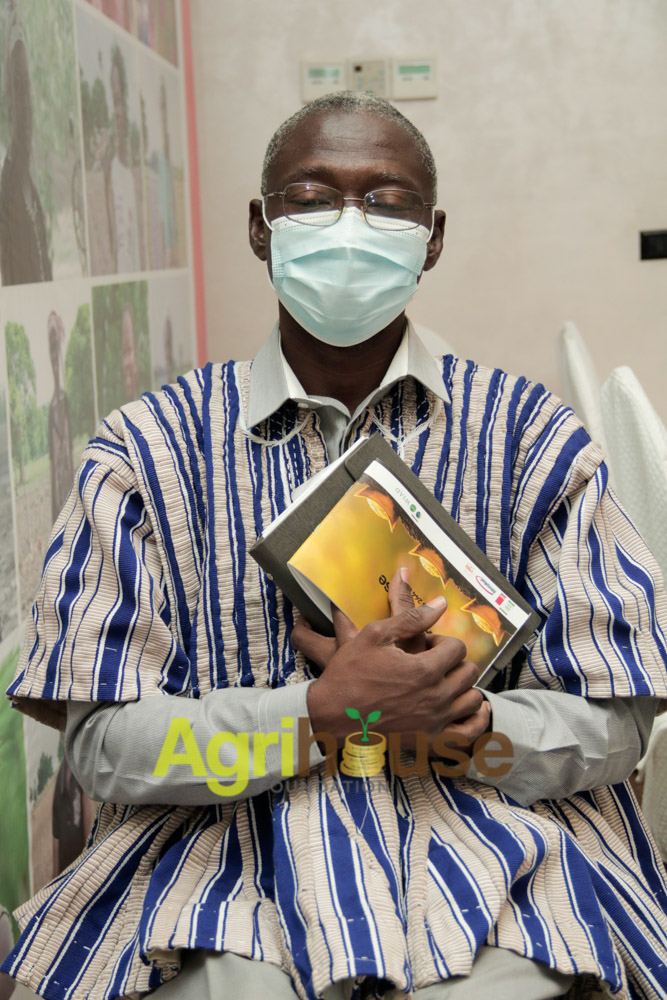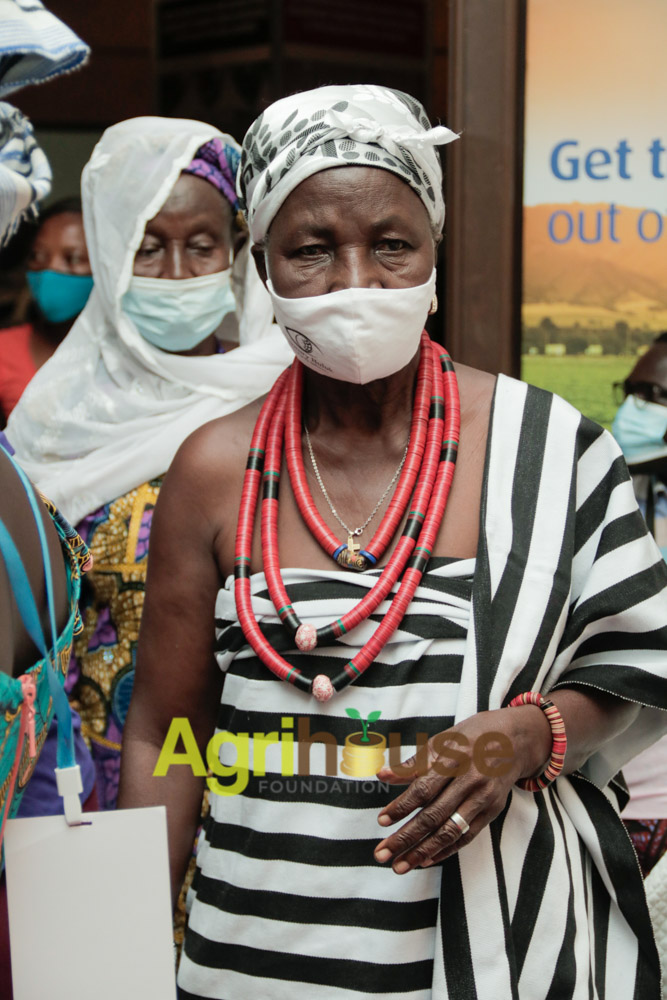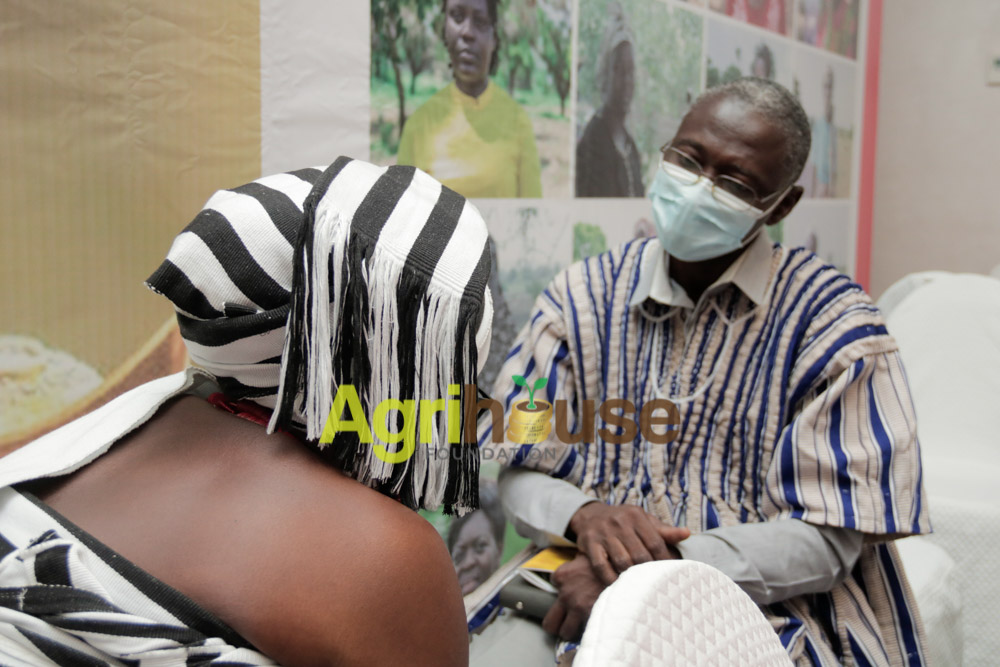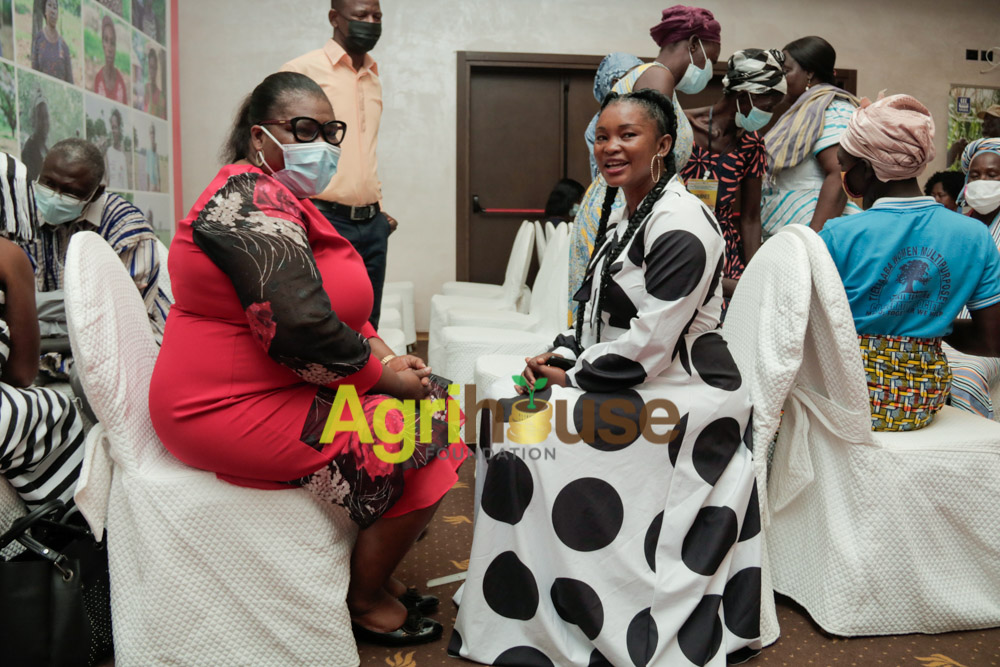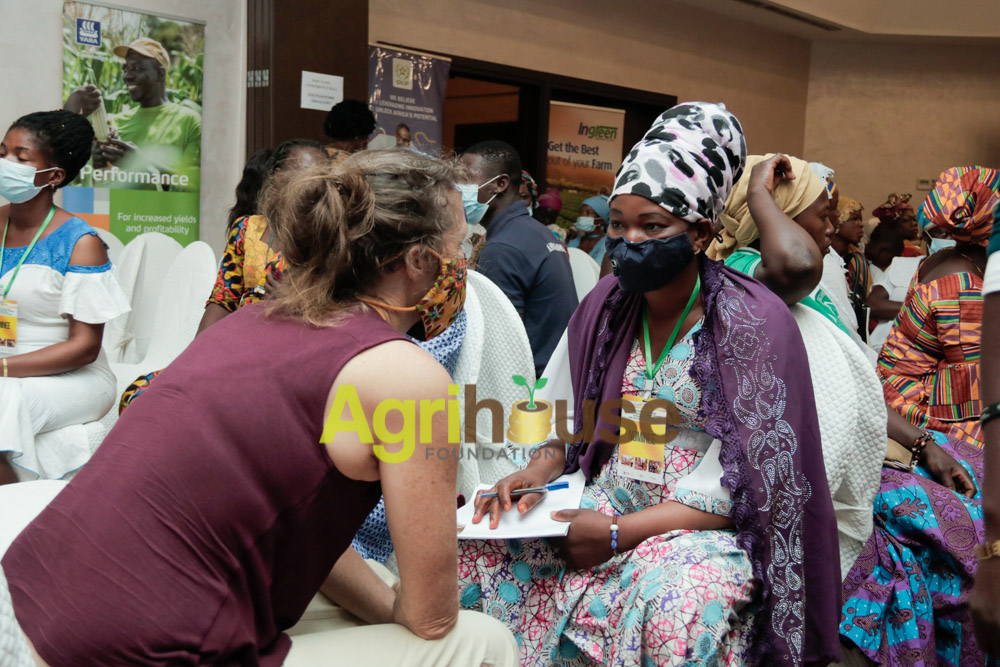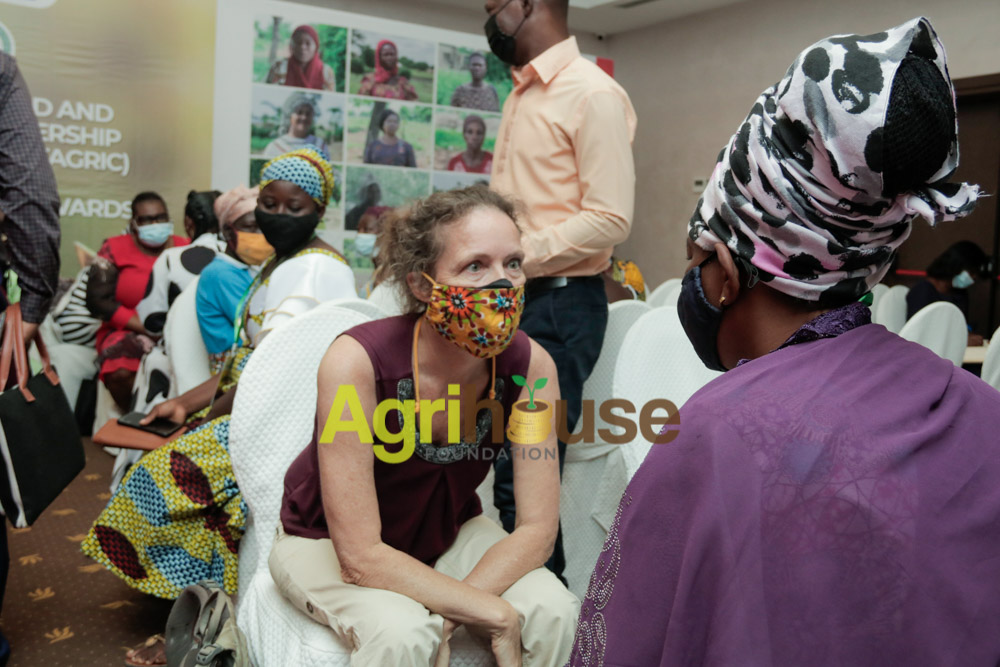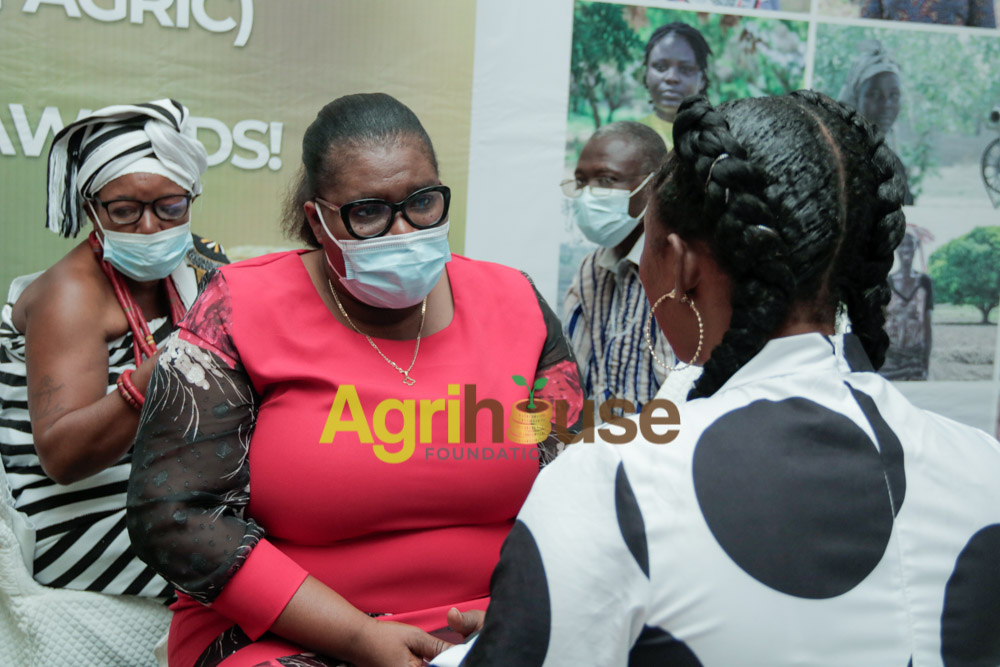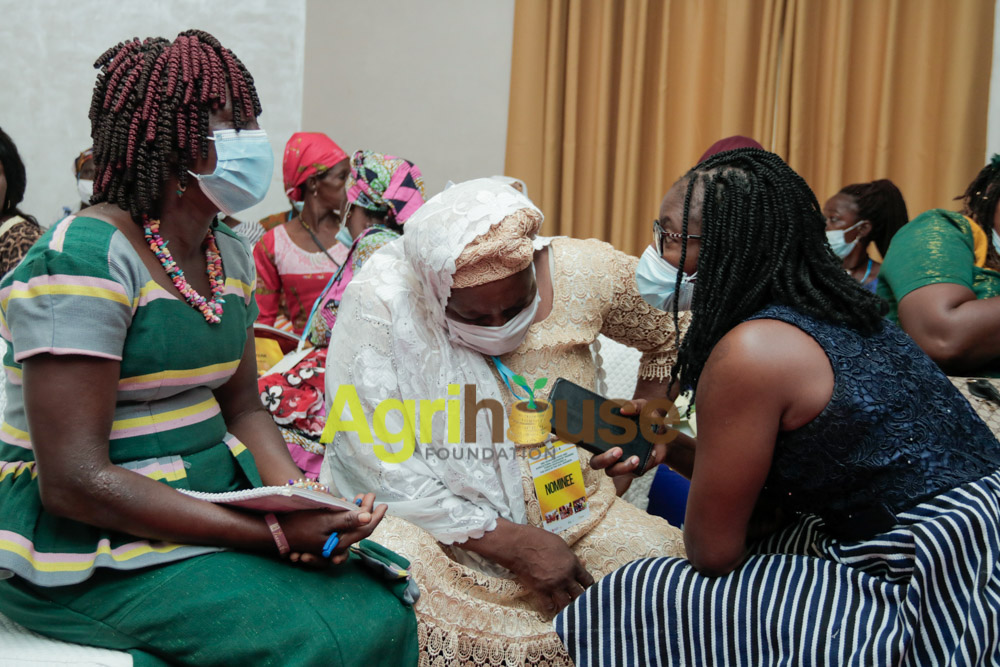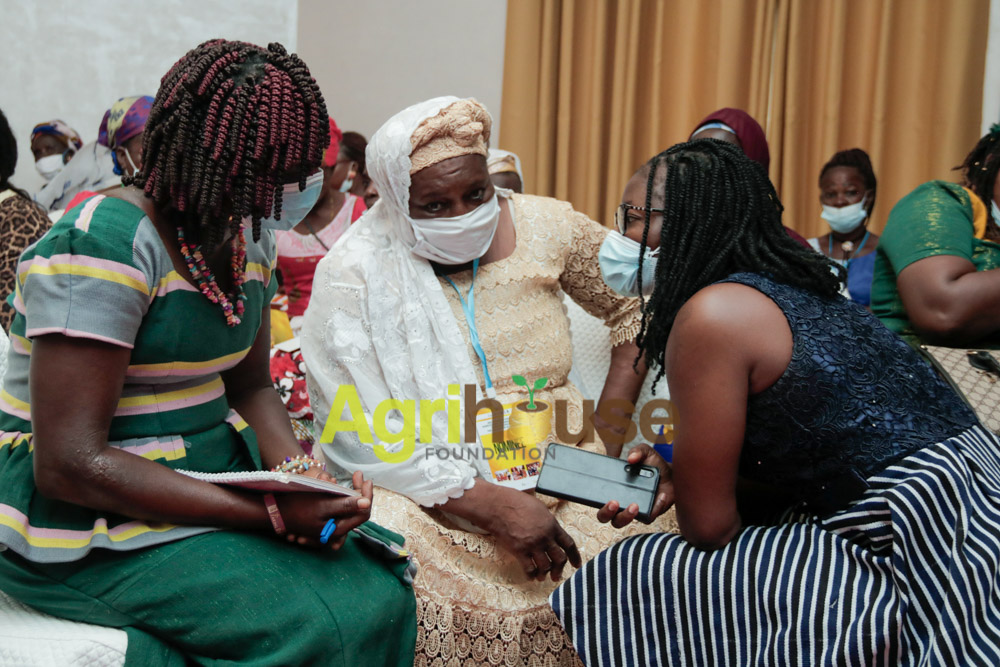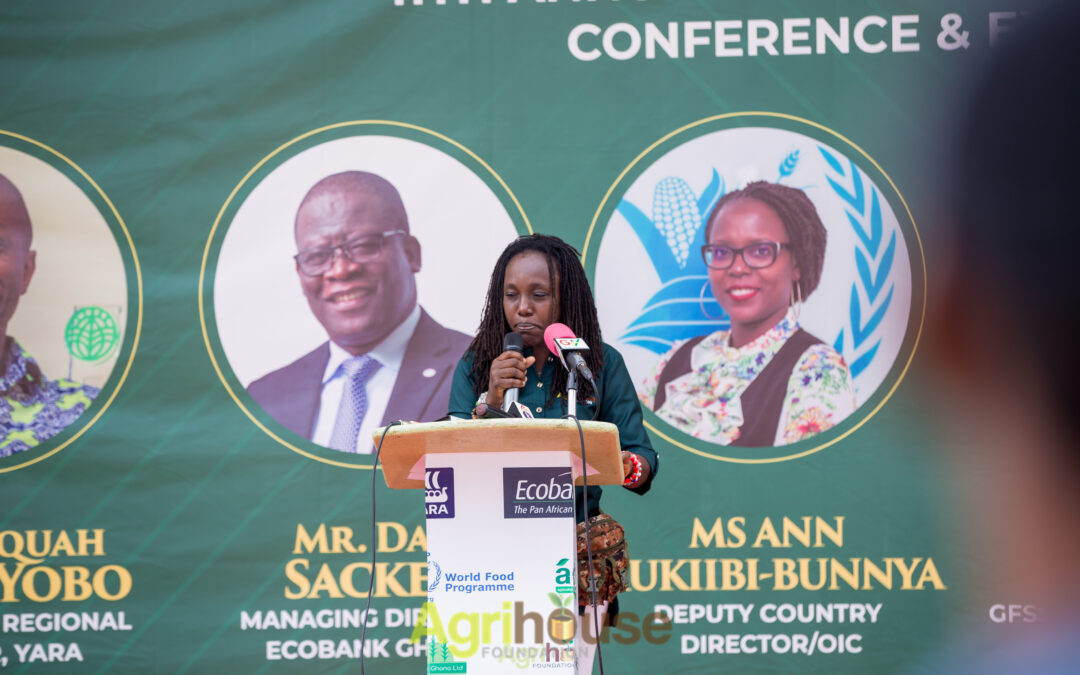
Agrihouse Calls for More Value Chain Collaborations at 11th Pre-harvest

Executive Director of Agrihouse Foundation, Alberta Nana Akyaa Akosa has reiterated the need for improved agri-financing, knowledge sharing, and building resilience within the country’s agric sector.
She said, such efforts, when invested in and scaled up would enable the creation and sustainability of an effective agri-foods market, that will serve the country efficiently, beyond the pandemic.
In light of this year’s theme for the 3-days event, “Working Together to Improve Market Channels for Agri-foods Beyond the Pandemic,” she has urged government and private stockholders within the sector to invest in value chain partnerships that would propel sustained development within the value chain.
“The pandemic has taught us the need for preparedness. And now is the time for all us to work together, both private and public stakeholders, to scale-up value chain initiatives like this one— the Pre-harvest Agribusiness Conference and Exhibitions, as a modern module for the continuous growth and transformation of market systems for Agri-foods,” she said.
She further called for more support for the establishment of the ‘Agrihouse Agri-Village,’ which she said, would be a home for hundreds of agribusinesses in the country, whiles supporting to fully commercializing the sector.
The venue, she explained, would house different type of farm sites; Demonstration Centers Conference and Workshop halls, Restrooms, Exhibition stores for Agric Companies, Training and Recreational Centers, Storage and Processing Centers, Production rooms, and Laboratories and Research Centers.
“We are committed to this vision at Agrihouse Foundation, and I will therefore use this opportunity to call on our sponsors, corporate bodies, government and collaborating agencies, financial institutions, media partners, and development partners to stand boldly with us in these times, to commit and invest in this vision a reality,” she said.
Ms. Akosa made these comments at the recent 3-days 11th Pre-harvest Agribusiness Conference and Exhibitions, organized by Agrihouse Foundation, in Tamale, in the Northern from Tuesday, 19 October to Thursday, 21 October.
This year’s event was in collaboration with the Northern Regional Coordinating Council – NRCC, and the Ministry of Food and Agriculture (MOFA).
Sponsors of the event were YARA, Ecobank Ghana PLC, World Food Programme, ADB-Agricultural Development Bank, GIZ MOAP, Demeter Ghana Limited, United Fertilizers Company Limited (UFCL), and HD PLUS.
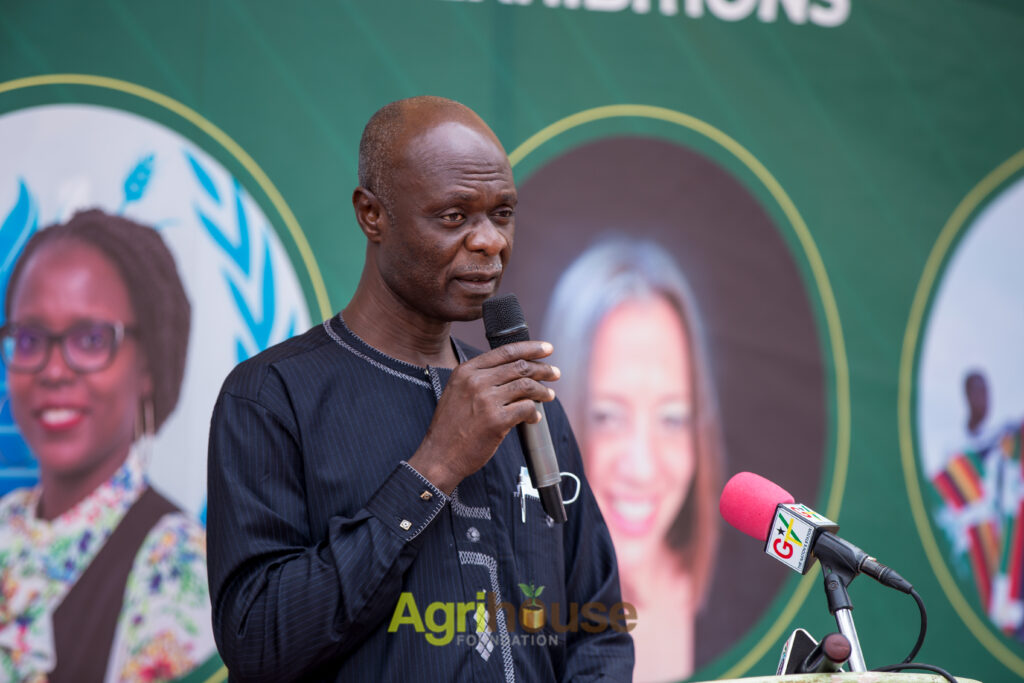
For his part, the Northern Regional Minister, hon. Alhaji Shani Alhassan Shaibu, noted that although agriculture accounts for over 74% of northern Ghana’s employment, the rich and diverse agricultural potential of the region was largely untapped.
“It is against this background that, we here in the north, appreciating the measurable gains we are seeing in our region here in the north since the advent of the Pre-Harvest event” he underscored.
He said the platform has over the years, become an avenue that pulls together the largest number of agricultural value chain actors and agribusinesses in Ghana; consequently, helping farmers and agribusinesses to access new market opportunities, increase their knowledge and improved their higher yields annually.
“Distinguished Ladies and Gentlemen, I should say that it has become rightly imperative that we all Work together to support the Preharvest event platform. That is the only practical way of ensuring that, ultimately, the desired growth and transformation of Ghana’s Northern Regions’ agricultural sector would be achieved,” he noted.
The West African Regional Director of YARA, Mr. Danquah Addo Yobo, for his part reiterated YARA’s commitment to the country’s agric sector, especially, to agricultural activities and farmers in the Northern regions of the country.
He revealed YARA has launched a new Mobile App, called “Farm Go,” to help farmers predict weather conditions accurately; which will enable them plan their farming activities, maximize their time to ensure more productivity.
“When we launched it this year, we were expecting that we will have about 2,500 downloads to end the year and then build up from there; today we have about 10, 000 farmers that have downloaded the app. We are very encouraged and it is our show of support,” he said.
He said YARA has in this year, also launched the ‘Sustainable Soya beans Production in Northern Ghana,’ Project, which underscores the importance of soya production in the Northern region; how it influences food security and the regions poultry sector.
“It is a four year project being supported by NORAD, a Norwegian fund. We expect that in the four years, we will reach at least a 100, 000 soya farmers. It is a value chain approach, so we are working with aggregators, processors, and the poultry industry. Just as we have been able to build the pre-harvest project we Agrihouse, we want to build the project that will create sustainability after the four years,” he said.
In a speech read on his behalf, the Managing Director of Ecobank Ghana, Mr. Dan Sarkey, noted that even in the face of the COVID-19 Pandemic, the country’s agricultural sector has proven very resilient, by demonstrating a historic highest cocoa production last year.
He said Ecobank recognizes the importance of agriculture to the country’s economy, and that is why, “we continue to strengthen and grow our agribusiness portfolio as a means to positively impact our communities in job creation and increased agricultural productivity,” he stressed.
In light of this, he said Ecobank has setup the agribusiness desk under the commercial banking division of the bank. He said Ecobank has further financed the Wenchi and Tain Maize Farmers Federation (WTMFF), a farmer-based organization made up of 61 FBO’s with membership of 1,800 out of which 45 percent are women, to cultivate 1970 acres of maize to meet supply contract of the Yedent Group of Companies.
“Ecobank’s financing also directly impacted input suppliers of weedicides, pesticides, fertilizers, tractors and all the needed agricultural implements for farming,” he added.
He urged farmers and all other value chain stakeholders at the opening ceremony of the 11th Pre-harvest Agribusiness Conference and Exhibitions, to embrace Ecobank’s digital products such as Ecobank Mobile, Ecobank Paywith, Ecobank online, and Ecobank OmniLite, which are available for collections, transfers and payments, which constitute the frequently used banking activities of farmers.
A representative of Agricultural Development Bank, Mr. Fredrick Yaw Opoku, noted that ADB’s commitment to the agricultural sector remains unmatched, especially, since 2017 when a new board and management team was put in place with the mandate to refocus the core direction of agricultural financing.
“We launched the Broiler Value Chain Programme in 2020 with an estimated amount of 500 million Ghana cedis, seeking to revitalize the broiler subsector and to put an end to the huge foreign exchange spent on yearly basis to import poultry into the country,” he revealed.
He said the bank continues to increase its lending to the agricultural sector, with the aim of meeting the strategic objective of increasing the share of agricultural loans to at least 50 percent of the total loan portfolio.
The Chief of Bamvim Traditional Area, Bamvim-Lana, Alhaji Mahama Abdulai ll, for his part noted that, o ver the last ten years, the Pre-harvest Agribusiness Exhibition and Conference has become one of the key events that has supported the growth and development of Agriculture in Northern Ghana.
He said the platform has been very consistent annually, growing strong and linking farmers to Agro Input dealers, Agricultural machinery and equipment dealers, Aggregators and farm produce buyers.
“I can confidently and unequivocally state that the Pre-Harvest Conference and Exhibition is one of the leading if not the leading agricultural conferences and market platforms in Ghana,” he said.
For her part, the Northern Regional Director of Agriculture, Hajia Hawa Musah, described this year’s theme as time and appropriate, considering the negative impacts the COVID-19 Pandemic has had on all sectors of the national economy, the agric sector included.
“However I want to assure you that there is no cause for alarm. We pray for more showers of rain to record a bumper harvest,” she added.
She said even though the region has inadequate machinery and equipment for timely harvesting, now is the time for government and private stakeholders in the agric sector to invest in machinery to help reduces effects like post-harvest losses.
11th Pre-harvest Exhibitions and Conference Activities
The 3-days leading market linkage event opened on Tuesday, October 19th, and run until Thursday, October 21. The edition, which was on theme “Working Together to Improve Market Channels for Agri-foods Beyond the Pandemic,” took place at the Aliu Mahama Sports Stadium, in Tamale in the Northern region.
The leading agribusiness market linkage conference and exhibitions event, featured major training and capacity session, such as, commodity breakout session, farmer-buyer matchmaking dialogues, showcasing successful agribusiness modules, exhibitions, agri-youth forum, gender workshop, development partner panel conversation, and practical field demonstrations exercises.
The event further highlighted and addressed the challenges the COVID-19 pandemic has intensified within the sector, the effects it has posed on marketing Agri-foods, while exploring existing market channels to address these challenges.
A key highlight of the 3-day event was the Field demonstrations, where farmers and actors got to practically learn, appreciate and adopt best practices in Farm Management. This took place at the Agrihouse Foundation AGRI-VILLAGE, a Ten (10) acre land, donated by the Bamvim Lana (Chief of Bamvim.
In the short to long term, the Agrihouse Foundation Agri-village is expected to house different type of demonstrations farms (including seeds and Livestock Farms), Demonstration Centres, Conference / Workshop halls, Restrooms, Exhibition stores for Agric Companies, Training and Recreational Centres, Storage space, Processing Centres, Production room, Laboratories and Research Centres.
Impacts of Pre-harvest Over the Years
Pre-harvest has created and continues to connect, through exhibitions, and training sessions, companies that are into fertilizers, seeds, Irrigation, machinery and equipment, Finance, Transportation, ICT, Processors, Packagers, Marketers, Government Institutions, Development Partners, among others. Over 90% of companies and participants have been linked to markets through the Exhibitions.
Pre-harvest has become a leading event on the Ghanaian agricultural calendar and has served as a stimulating platform for training, and for creating increased stakeholder linkages, exhibitions and expanded opportunities. It operates from a facilitative dimension by presenting a highly engaging and coordinated platform that ensures that smallholder farmers are connected to markets, finance, inputs, equipment, and information.
These activities are geared towards capturing the marketing challenges faced by the actors especially in the pandemic and how other modernized marketing platforms can serve as a solution to maximize the output of the actors along the value chain. Farmers, actors along the value chain and participants will be equipped with the necessary knowledge and skills to observe Good Agricultural Practices.
This year’s 3-days event (2021 11th edition) recorded 118 Exhibitors including farmers, traders, commodity brokers, input companies, machinery and equipment providers, transporters, financial institutions, ICT, Innovations, Poultry and Livestock companies, packaging and processing companies, development practitioners and government agencies, among others. It made room for 3200 Participants; 32 FBO’s from different regions and districts who represented over 300, 000 farmers of rice, maize, soyabeans, sorghum, millet, groundnut, vegetables, yam and tubers, etc. A total of 46 buyers negotiated and signed deals with farmers.
In 2020, (10th edition) the event recorded a total of 3,122 participants and 122 exhibitors including farmers, traders, commodity brokers, input companies, machinery and equipment providers, transporters, financial institutions, ICT, Innovations, Poultry and Livestock companies, packaging and processing companies, development practitioners and government agencies, among others.
Report on the 2019 event showed that about 70 business deals were made during the Exhibition. More than GHS232, 420, 745 of agri products and equipment were sold and bought. The event has improved the livelihoods of the players along the value chain by boosting their confidence i.e. created a stimulus platform for collaborating with other actors for business deals/increased stakeholders linkages.
It has given agro-processors a strong drive to access their raw materials locally, agribusiness development, grown the local economy through the expansion of agribusiness opportunities and has become a platform of growth for agribusiness entrepreneurs. The event will remain one of the leading events in the country, where farmers, businesses, government and ideas meet to network, build capacity, learn and explore business opportunities, sign deals and close contracts.
In 2018, the event won the Agribusiness event of the Year, for helping to promotes business partnerships among value chain actors, especially farmers, buyers, processors, transporters, input dealers, equipment dealers, financial institutions, telecom companies and policy makers. Over the years, through continuous improvement, it has accelerated the transformation of agribusiness in Northern Ghana, alongside Government’s initiatives.

